post-truth
description: disappearance of shared objective standards for truth
89 results
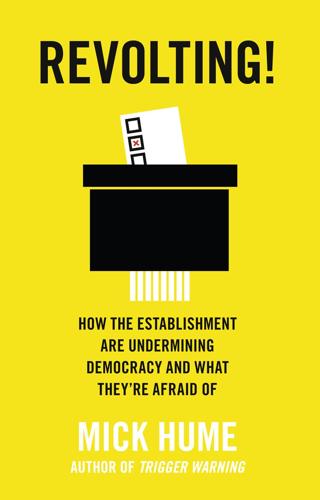
Revolting!: How the Establishment Are Undermining Democracy and What They're Afraid Of
by
Mick Hume
Published 23 Feb 2017
The first theme is that the votes were a result of ignorance and disinformation in the age of ‘post-truth politics’. The second is that the voters must have been motivated by bigotry, racism and hatred. And the third is that, given the above, allowing the votes of the demos to determine important issues is a threat to … democracy. Let’s look at these excuses in turn. ‘Post-truth’ politics for ‘unqualified simpletons’ It has been widely argued and accepted that those voting for Brexit in the UK or Trump in the US must have been uninformed, ‘low-information’ people, emotionally gullible and easy prey to the lies of demagogues – now renamed ‘post-truth politics’. As leading Labour politician Chuka Umunna summed it up, ‘Both Donald Trump and the Vote Leave camp epitomised “post-truth politics”’.31 This notion updates the prejudice expressed by ancient Greek philosophers that democracy entrusts too much influence to the ignorant, over-emotional and easily misled many at the expense of the wise and enlightened few.
…
It seems that ‘System Two’ voters are naturally more equal than others.36 Would the professor prefer to see the re-introduction of special university seats in the UK parliament, which gave graduates of Oxbridge and other top universities an extra vote until they were abolished by the ghastly Labour government after the Second World War? The emphasis of many critics was on the ‘Brexit lies’ of the Leave campaign and how they had led gullible voters astray. This was apparently proof that we live in the age of ‘post-truth politics’. Indeed not long after the referendum and the election of Trump, Oxford Dictionaries announced that ‘post-truth’ was its international word of the year for 2016. The Oxford English Dictionary defines this award-winning expression to mean ‘relating to or denoting circumstances in which objective facts are less influential in shaping public opinion than appeals to emotion and personal belief’.
…
Contrary to what the doom-mongers claim about ‘post-truth’ politics, it is perfectly reasonable to decide that the possibility of a fall in the value of the pound could be a price worth paying for an increase in democracy and sovereignty. Just as it was perfectly rational for others to vote Remain because they judged it to be in their best material interests. Even before the US presidential election, many American critics were already following the lead of the Remain campaign and complaining about the influence of ‘low-information’ (code for low-intelligence) voters and the emotive ‘post-truth politics’ allegedly being practised by the Trump campaign.
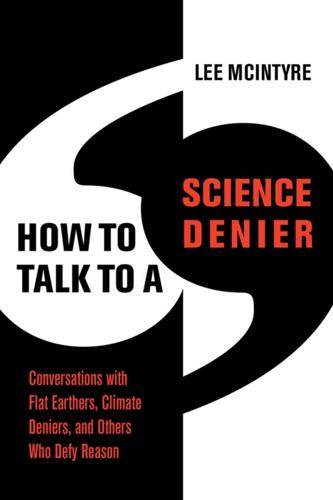
How to Talk to a Science Denier: Conversations With Flat Earthers, Climate Deniers, and Others Who Defy Reason
by
Lee McIntyre
Published 14 Sep 2021
But I hope to have offered a bit more insight and experience about the most effective approach and tools to fight back against the remaining science deniers.65 The Cure for Post-Truth In my book Post-Truth, I made the case that today’s “political subordination of reality” has strong roots in sixty years of largely unchecked science denial, which started with the tobacco companies that manufactured doubt over the link between cigarettes and lung cancer, right up through global warming. But something incredible has happened in the last few years, which is that political polarization has made the problem of science denial even worse. Post-truth and science denial now seem locked in a self-stoking feedback loop.
…
Asheley Landrum, Alex Olshansky, and Othello Richards, “Differential Suspectibililty to Misleading Flat Earth Arguments on YouTube,” Media Psychology, September 29, 2019, https://www.tandfonline.com/doi/full/10.1080/15213269.2019.1669461. 32. John Ingold, “We Went to a Flat-Earth Convention and Found a Lesson about the Future of Post-Truth Life,” Colorado Sun, November 20, 2018, https://coloradosun.com/2018/11/20/flat-earth-convention-denver-post-truth/. 33. For an excellent psychological study of some of the motivations and causal influences in conversion to Flat Eartherism, see Alex Olshansky, Robert M. Peaslee, and Ashley Landrum, “Flat-Smacked! Converting to Flat-Eartherism,” Journal of Media and Religion, July 2, 2020, https://www.tandfonline.com/doi/full/10.1080/15348423.2020.1774257?
…
Whether this is right or not, it seems clear to me, based on both my personal experience and study of the literature, that most science deniers embrace a heady stream of resentment and anger at “elites” or “experts” who purport to tell them the truth. Some of this is related to Tom Nichols’s earlier-cited work, The Death of Expertise, where he explores the kind of populist grievance that has led to so much of our post-truth culture. This goes wider than science denial. Indeed, even though I believe that science denial was one of the roots of post-truth,55 this has now doubled back on itself in support of an entire denier culture, involving everything from climate change to vaccinations to wearing masks during a pandemic, that has made science denial worse. As familiar battle lines are redrawn—sometimes along partisan lines—it becomes easier to feel alienated.
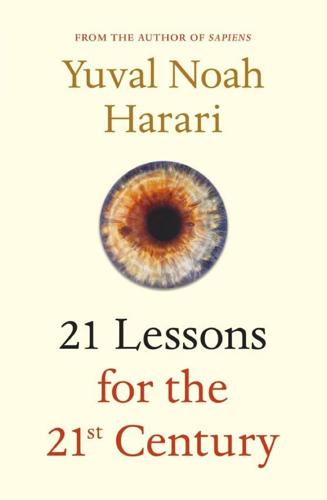
21 Lessons for the 21st Century
by
Yuval Noah Harari
Published 29 Aug 2018
Neither Americans, Chinese, Muslims nor Hindus constitute ‘the global community’ – so their interpretation of reality is hardly trustworthy. Should we call it quits, then, and declare that the human quest to understand the truth and find justice has failed? Have we officially entered the Post-Truth Era? 17 POST-TRUTH Some fake news lasts for ever We are repeatedly told these days that we are living in a new and frightening era of ‘post-truth’, and that lies and fictions are all around us. Examples are not hard to come by. Thus in late February 2014 Russian special units bearing no army insignia invaded Ukraine and occupied key installations in Crimea. The Russian government and President Putin in person repeatedly denied that these were Russian troops, and described them as spontaneous ‘self-defence groups’ that may have acquired Russian-looking equipment from local shops.1 As they voiced this rather preposterous claim, Putin and his aides knew perfectly well that they were lying.
…
Rather, these fake countries are the ‘Luhansk People’s Republic’ and the ‘Donetsk People’s Republic’ that Russia has set up to mask its unprovoked invasion of Ukraine.2 Whichever side you support, it seems that we are indeed living in a terrifying era of post-truth, when not just particular military incidents, but entire histories and nations might be faked. But if this is the era of post-truth, when, exactly, was the halcyon age of truth? In the 1980s? The 1950s? The 1930s? And what triggered our transition to the post-truth era – the Internet? Social media? The rise of Putin and Trump? A cursory look at history reveals that propaganda and disinformation are nothing new, and even the habit of denying entire nations and creating fake countries has a long pedigree.
…
For example, in February 2016 MP Anat Berko gave a speech in the Israeli Parliament in which she doubted the reality and history of the Palestinian people. Her proof? The letter ‘p’ does not even exist in Arabic, so how can there be a Palestinian people? (In Arabic, ‘f’ stands for ‘p’, and the Arabic name for Palestine is Falastin.) The post-truth species In fact, humans have always lived in the age of post-truth. Homo sapiens is a post-truth species, whose power depends on creating and believing fictions. Ever since the Stone Age, self-reinforcing myths have served to unite human collectives. Indeed, Homo sapiens conquered this planet thanks above all to the unique human ability to create and spread fictions.
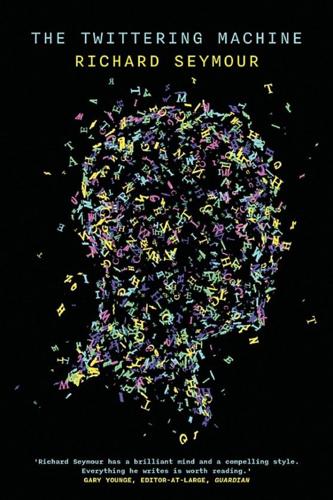
The Twittering Machine
by
Richard Seymour
Published 20 Aug 2019
The theory that postmodernism has promoted . . . Lee McIntyre, Post-Truth, MIT Press: Cambridge, MA, 2018, pp. 200–45; Matthew D’Ancona, Post Truth: The New War on Truth and How to Fight Back, Penguin Random House: London, 2017, pp. 89–110; C. G. Prado, America’s Post-Truth Phenomenon: When Feelings and Opinions Trump Facts and Evidence, Praeger: London, 2018, pp. 5, 9, 21–2 and 110. 38. For example, Kakutani cites without apparent irony a preening comment . . . Alan Jay Levinovitz, ‘It’s Not All Relative’, The Chronicle of Higher Education, 5 March 2017. 39. For British journalist Matthew D’Ancona . . . D’Ancona, Post Truth, p. 91. 40. According to philosopher Lee McIntyre . . .
…
According to the explanation offered by theorists of a ‘post-truth’ society, this is a legacy of postmodernist dogma that also seeps into and informs today’s insurgent right. The argument about ‘fake news’ is thus further limned by a folk history of intellectual decline. According to this view, if false beliefs now gain acceptance, this is because the canons of Western reason have fallen into disuse. This view arises in part because of the new political potency of the uneducated and unqualified. For the philosopher Steve Fuller, one of the red flags signalling the triumph of the post-truth situation was the defeat of Hillary Clinton, ‘perhaps the most qualified person ever to run for the presidency’, by the wildly unqualified Donald Trump.32 Michiko Kakutani, the esteemed journalist, likewise excoriates the Trump administration’s appointment of ‘unqualified judges and agency heads’, as though the problem with the far right was their (often very real) incompetence.33 As though a competent far-right administration would not represent a far more assured doom.
…
The sacked National Security Council officer Rich Higgins blamed ‘cultural Marxism’ for the opposition to Trump.44 It has also appeared in more mainstream quarters. The anti-Trump conservative Australian television news anchor, Chris Uhlmann, has decried the work of ‘neo-Marxists’ using ‘critical theory as a vehicle for. . . the deconstruction of the West’.45 This theory bears some alarming resemblances to the ‘post-truth’ accounts just assayed. The theorists of ‘post-truth’ share with their right-wing opponents a vocabulary, a counter-subversive zeal, a drive to externalize a complex problem, intellectual incuriosity and an authoritarian streak a mile wide. Their ‘postmodernism’ is a straw figure, the bogey-scapegoat of anglophone centrists losing an argument.
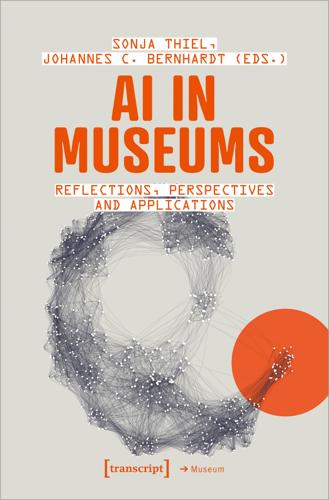
AI in Museums: Reflections, Perspectives and Applications
by
Sonja Thiel
and
Johannes C. Bernhardt
Published 31 Dec 2023
The key elements are that participants in this study were unable to distinguish between AI-generated archives and original archives. We also noticed that biases against artificial intelligence are found when participants are aware of the source of the archive or mistake it for an AI-generated archive. Figure 3: The Selective Memories platform. The Post-Truth Archive The Post-Truth Archive is the output of collaborative work done by participants on the Selective Memories online platform. The red register brings together all 193 194 Part 2: Perspectives the texts that participants decided to archive on the platform. It is surrounded by texts—crumpled and scattered on the ground—that people decided to destroy.
…
Does the fact that some false archives were retained by certain participants give them a special status? Can the value given to this corpus go beyond the question of its veracity? Figure 4: The exhibition Is it true? The Post-truth Archive Factory at The Briggait in Glasgow. Detecting Fake News Artificial intelligence has the paradoxical aspect of being able to be both the evil and a solution, and more and more applications for detecting forgeries are emerging in Marion Carré: Post-Truth art and culture. What we can blame AI for is giving anyone who wants to produce a forgery sophisticated tools. Fakes did not have to wait for artificial intelligence to exist before they could be produced on a large scale.
…
A Global Mapping of AI in Museums Isabel Hufschmidt........................................................................ 131 Digital Curation and AI Opportunities and Risks for Cultural Heritage Institutions Clemens Neudecker ......................................................................149 Teaching Provenance to AI An Annotation Scheme for Museum Data Fabio Mariani, Lynn Rother, Max Koss .................................................... 163 The Funding Program LINK—AI and Culture Five Lessons Learned after Five Years Tabea Golgath............................................................................173 Discovering Culture with AI Luba Elliott .............................................................................. 181 Post-Truth Archives, GPT-2 and Fake News Marion Carré .............................................................................187 Impostor Syndrome GPT-3 between Fact and Fiction Roland Fischer ...........................................................................199 Part 3: Applications Algorithmic Exhibition-Making Curating with Networks and Word Embeddings Tillmann Ohm ........................................................................... 209 Evaluating the Blackbox Linking Viennese Art through AI Nicole High-Steskal and Rainer Simon .................................................... 217 Clouds of Symbols The Digital Curator Project Lukáš Pilka ............................................................................. 225 xCurator AI-Supported Exploration and Curation of Digital Collections Sonja Thiel and Etienne Posthumus ...................................................... 233 Say the Image, Don’t Make It Empowering Human-AI Co-Creation through the Interactive Installation Wishing Well Yannick Hofmann and Cecilia Preiß ...................................................... 245 CHIM—Chatbot in the Museum Exploring and Explaining Museum Objects with Speech-Based AI Oliver Gustke, Stefan Schaffer, Aaron Ruß................................................ 257 With AI to Art!
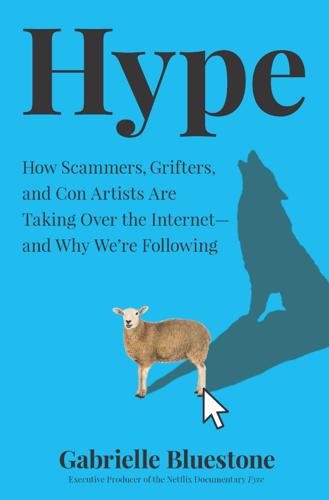
Hype: How Scammers, Grifters, and Con Artists Are Taking Over the Internet―and Why We're Following
by
Gabrielle Bluestone
Published 5 Apr 2021
It’s not like anyone with the power to stop him was requiring him to do anything as mundane as sticking to the facts. “In a world in which politicians can challenge the facts and pay no political price whatsoever, post-truth is bigger than any one person,” Lee McIntyre, the philosopher and author of Post-Truth says. “It exists in us as well as our leaders. And the forces behind it have been building up for quite some time.”65 The result is that we’re living now in a world where which side you’re on matters more than what the facts say. The official Oxford definition of post-truth is “relating to or denoting circumstances in which objective facts are less influential in shaping public opinion than appeals to emotion and personal belief.”
…
“The real problem here, I claim, is not merely the content of any particular (outrageous) belief, but the overarching idea that—depending on what one wants to be true—some facts matter more than others,” writes Lee McIntyre, a research fellow at the Center for Philosophy and History of Science at Boston University, and the author of Post-Truth.188 “The main criterion is what favors their preexisting beliefs. This is not the abandonment of facts, but the corruption of the process by which facts are credibly gathered and reliably used to shape one’s beliefs about reality. “When a person’s beliefs are threatened by an ‘inconvenient fact,’ sometimes it is preferable to challenge the fact. This can happen at either a conscious or unconscious level (since sometimes the person we are seeking to convince is ourself), but the point is that this sort of post-truth relationship to facts occurs only when we are seeking to assert something that is more important to us than the truth itself,” McIntyre says.
…
Whether it’s the value of a company, the authenticity of a person we’ve never met, or the efficacy of face masks during an airborne pandemic, at some point along the road, we as a society tacitly agreed to start trusting our emotions and feelings over verifiable facts—all without ever realizing just how much our social media use is manipulating those judgments in the first place. Scholars call this a post-truth world, a concept that arguably originated with Friedrich Nietzsche but which took on particular urgency after it was named Oxford’s 2016 word of the year. The phrase is most commonly invoked to refer to Trump’s election and Brexit, but I see it playing out everywhere. We’ve become so confused by the constant barrage of what former Trump advisor Kellyanne Conway famously deemed “alternative facts,” that we’re desperate for someone to tell us what’s right, and there’s plenty of evidence for us to gather after the fact, once we’ve already decided the conclusion.
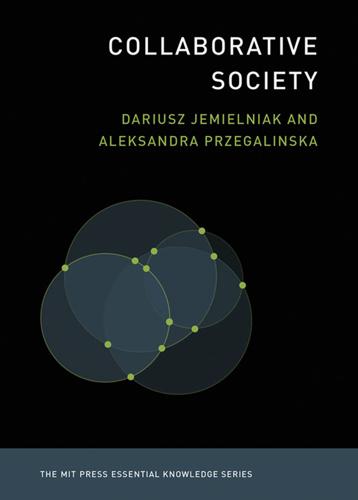
Collaborative Society
by
Dariusz Jemielniak
and
Aleksandra Przegalinska
Published 18 Feb 2020
Surowiecki, J. The Wisdom of Crowds. New York: Anchor Books, 2005. More about post-truth, fake news, and pseudoscience Benkler, Y., R. Faris, and J. Roberts. Network Propaganda: Manipulation, Disinformation, and Radicalization in American Politics. Oxford: Oxford University Press, 2018. Hecht, D. K., E. Lobato, C. Zimmerman, F. Blanco, H. Matute, D. K. Simonton, K. M. Folta, B. Hermes, L. Kennair, and E. Sandseter. Pseudoscience: The Conspiracy Against Science. Cambridge, MA: MIT Press, 2018. McIntyre, L. Post-truth. Cambridge, MA: MIT Press, 2018. More about sharing culture Aigrain, P.
…
Today we face an unprecedented growth in the distrust in facts as a whole.3 An outright hostility to experts and the existing, dominant modes of knowledge hierarchies is on the rise, and more and more people share anti-intellectual sentiments.4 Suspicion toward large media corporations has seeped into the realm of science and undermined the very foundations of Enlightenment premises, causing a major epistemic crisis.5 We now live in a post-truth world where just being right is not enough.6 This applies also to topics that are clearly quite scientific but had not been considered part of the academic domain by the general public, even before the trust crisis deepened. Take dieting, for example. Despite the substantial body of research available about human physiology, the most popular diets are seldom research-driven.
…
Himanen, The Hacker Ethic (Random House, 2010). Chapter 6 1. D. Innerarity, The Democracy of Knowledge (Bloomsbury Publishing USA, 2013). 2. I. B. Cohen, “Commentary: The Fear and Distrust of Science in Historical Perspective,” Science, Technology, & Human Values 6 (1981): 20–24. 3. S. Rider and M. A. Peters, Post-Truth, Fake News: Viral Modernity & Higher Education 49 (2018): 563–566. 4. T. L. Cooper, Book Review: T. Nichols, The Death of Expertise: The Campaign Against Established Knowledge and Why It Matters (Oxford University Press, 2017) in Public Administration Review 78 (2018): 318–320. 5. P. Dahlgren, “Media, Knowledge and Trust: The Deepening Epistemic Crisis of Democracy,” Javnost—The Public 25 (2018): 20–27. 6.
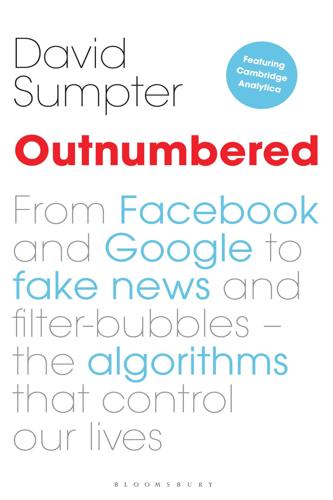
Outnumbered: From Facebook and Google to Fake News and Filter-Bubbles – the Algorithms That Control Our Lives
by
David Sumpter
Published 18 Jun 2018
According to many of the articles published by the traditional media, this is exactly what is happening. Many people are allegedly disappearing into a world of entertainment gossip, sports results, short film clips of pets and online memes. A world where real news is boring, and fake news is a source of constant entertainment. A post-truth world. Are some people living in a post-truth world? I needed to find out. CHAPTER THIRTEEN Who Reads Fake News? Master Bates and Seaman Staines. When I heard the rumour as a student in the early 1990s that these were the names of the crew members of the ship in one of my favourite children’s shows, Captain Pugwash, I didn’t question the information.
…
Based on this definition, there were at least 65 fake news sites during the election. The alt-right site Breitbart sits delicately balanced on the edge of my definition. The question is not whether or not fake news exists. There is little doubt about that. The question is how much influence it has on our political views. Do we live in a post-truth world? The only way to properly test the post-truth hypothesis is to conduct a survey and look at the data. This is exactly what economists Hunt Allcott and Matthew Gentzkow did.2 They wanted to measure the effect of fake news stories in the run-up to the 2016 US presidential election. They presented participants of an online survey with a series of fake news stories, including: ‘Clinton Foundation staff were found guilty of diverting funds to buy alcohol for expensive parties in the Caribbean’ ‘Mike Pence said that “Michelle Obama is the most vulgar First Lady we’ve ever had”’ ‘Leaked documents reveal that the Trump campaign planned a scheme to offer to drive Democratic voters to the polls but then take them to the wrong place’ ‘At a rally a few days before the election, President Obama screamed at a protester who supported Donald Trump’ The participants’ responses to being shown these stories were compared with their responses when they were shown true news stories.
…
Even if we are as cautious as Matthew suggests, I just couldn’t see how the fake news effect could add up. Despite Donald Trump’s narrow victory in the election, Hunt and Matthew’s ‘back-of-an-envelope’ calculation implies that fake news is nothing more than meaningless noise. The ineffectiveness of fake news gives a very different picture to that implied by the concept of a post-truth world. Yes, there are a lot of fake news stories written, but they are instantly forgettable and very seldom believed. Bob Huckfeldt had told me that one of the biggest take-away messages from his own research was that ‘citizens who are interested and knowledgeable about political affairs have always been particularly influential [on their peers]’.
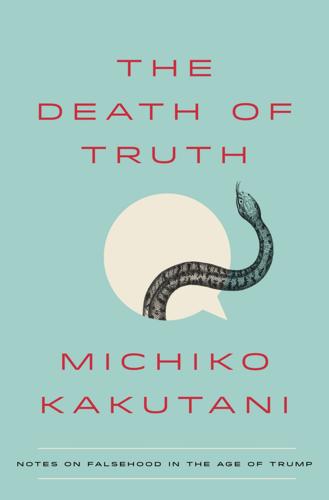
The Death of Truth: Notes on Falsehood in the Age of Trump
by
Michiko Kakutani
Published 17 Jul 2018
Facts need testimony to be remembered and trustworthy witnesses to be established in order to find a secure dwelling place in the domain of human affairs.” The term “truth decay” (used by the Rand Corporation to describe the “diminishing role of facts and analysis” in American public life) has joined the post-truth lexicon that includes such now familiar phrases as “fake news” and “alternative facts.” And it’s not just fake news either: it’s also fake science (manufactured by climate change deniers and anti-vaxxers), fake history (promoted by Holocaust revisionists and white supremacists), fake Americans on Facebook (created by Russian trolls), and fake followers and “likes” on social media (generated by bots).
…
“If there is something comforting—religious, if you want—about paranoia,” he wrote in Gravity’s Rainbow, “there is still also anti-paranoia, where nothing is connected to anything, a condition not many of us can bear for long.” * * * — In a 2016 documentary titled HyperNormalisation, the British filmmaker Adam Curtis created an expressionistic, montage-driven meditation on life in the post-truth era; the title (which also seems to allude to Baudrillard) was taken from a term coined by the anthropologist Alexei Yurchak to describe life in the final years of the Soviet Union, when people both understood the absurdity of the propaganda the government had been selling them for decades and had difficulty envisioning any alternative.
…
At the same time, not so coincidentally, the thinking of two Russian figures—Vladimir Lenin and the much lesser known Vladislav Surkov, a former postmodernist theater director who’s been described as “Putin’s Rasputin” and the Kremlin’s propaganda puppet master—informs many of the troubling political and social dynamics at work in the post-truth era. Almost a century after his death, Lenin’s model of revolution has proven frighteningly durable. His goal—not to improve the state machine, but to smash it and all its institutions—has been embraced by many twenty-first-century populists. And so have many of his tactics, from his use of confusion and chaos as tools to rally the masses, to his simplistic (and always broken) utopian promises, to his violent rhetoric attacking anything that could possibly be tarred as part of the status quo.
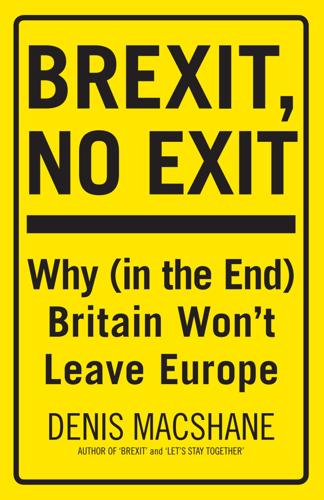
Brexit, No Exit: Why in the End Britain Won't Leave Europe
by
Denis MacShane
Published 14 Jul 2017
Brexit is part of the new politics discussed by the geo-political writer and former editor of The Economist Bill Emmott in his book The Fate of the West: The Battle to Save the World’s Most Successful Political Idea. Emmott argues that the fate of the West is in ‘the hands of our ability [...] as citizens of Western countries [...] to resist attempts to close doors, borders and minds’. The Brexit–Trump–Putin (BTP) world of post-truth, propaganda politics does indeed need to be challenged. If the BTP axis wins we are at the beginning of the end of the long decades of peace, prosperity and liberal freedoms that a uniting Europe put in place after 1945. Over the last 70 years, working in a broader Euro-Atlantic community of partnership with North America, Europe turned its back on the idea of a Europe of the ‘nation über alles’ that came into being in the nineteenth century and reached its apogee of violence, hate and extermination in the first half of the twentieth century.
…
That was something that happened across the Channel or the Atlantic or, in the twentieth century, in Russia in 1917 or Iran in 1979. Yet it is hard not to see the process of Brexit as anything short of a revolutionary moment in the placid waters of Britain’s political life. In Brexit combined with the arrival of Donald Trump in the White House following a Brexit-type post-truth campaign and wild exaggerations, the two great English-speaking democracies voted to end the era that opened with the defeat of Nazi Germany in 1945. Then the United States and European democracies, including Britain, joined in the construction of the Euro-Atlantic project of peace, economic integration and liberal democracy.
…
. […] On the receiving end you get not only one lie – a lie which you could go on for the rest of your days – but you get a great number of lies, depending on how the political wind blows. And a people that no longer can believe anything cannot make up its mind. It is deprived not only of its capacity to act but also of its capacity to think and to judge. And with such a people you can then do what you please. The modish term ‘post-truth’ came into play as analysts tried to grapple with a new politics in which provable facts and rational argument were regarded as old-fashioned forms of communication irrelevant to the era of social media and fake news. The BBC in particular gave up discharging its duty to truth, instead allowing endless lies about the EU to be broadcast without challenge.
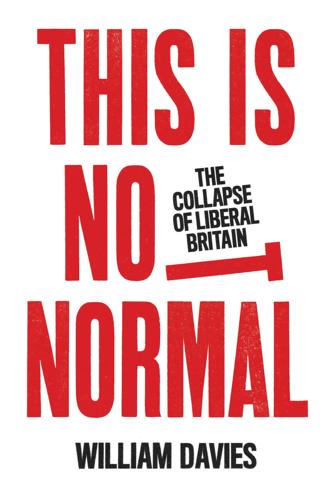
This Is Not Normal: The Collapse of Liberal Britain
by
William Davies
Published 28 Sep 2020
This still seems likely to me, which makes Theresa May’s surprisingly social democratic leadership platform another likely example of post-truth politics in action (there is no manifesto or other mechanism to hold her to any of her ideas, and it is difficult to see them surviving a recession). This achieves Liberalism in One Country by diving headlong into the past. The second is the Steve Hilton and Dominic Cummings fantasy in which Britain hurls itself into some technologically expansive, anarchic, cyber-utopian future. Britain becomes a kind of experiment in new fusions of technology, science, policy and regulation, driven by entrepreneurs whose main ambition is to destroy the status quo. It revels in a post-truth landscape, busting the cartel of established scientific and business centres.
…
Following Britain’s 2016 referendum and Trump’s election victory, liberals fixated on the malign power of Facebook, Cambridge Analytica, Russian ‘troll farms’ and Vladimir Putin to sway election outcomes by planting ‘fake news’ in front of the eyeballs of easily persuaded swing voters. The lack of any editorial bottlenecks or regulation meant that a kind of information anarchy had broken out, heralding a ‘post-truth’ world in which nobody could tell truth from lies any longer. The fine-grained psychographic profiling techniques facilitated by Facebook meant that democracy could now be ‘hacked’ by targeting critical voters with precisely the right message to influence their vote. Others are more sceptical about this narrative, asking instead why so many voters were sufficiently angry and alienated from the liberal mainstream in the first place.
…
Or politicians and officials are confined to saying what feels plausible and intuitively true, but may ultimately be inaccurate. Either way, politics becomes mired in accusations of lies and cover-ups. The declining authority of statistics – and of the experts who analyse them – is at the heart of the crisis that has become known as ‘post-truth’ politics. And in this uncertain new world, attitudes towards quantitative expertise have become increasingly polarised. From one perspective, grounding politics in statistics is elitist, undemocratic and oblivious to people’s emotional investments in their community and nation. It is just one more way in which privileged people in London, Washington DC or Brussels seek to impose their worldview on everybody else.
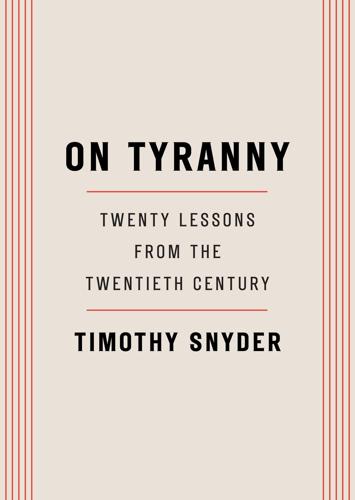
On Tyranny: Twenty Lessons From the Twentieth Century
by
Timothy Snyder
Published 14 Sep 2017
By using the absurd image of the rhinoceros, Ionesco was trying to shock people into noticing the strangeness of what was actually happening. The rhinoceri are roaming through our neurological savannahs. We now find ourselves very much concerned with something we call “post-truth,” and we tend to think that its scorn of everyday facts and its construction of alternative realities is something new or postmodern. Yet there is little here that George Orwell did not capture seven decades ago in his notion of “doublethink.” In its philosophy, post-truth restores precisely the fascist attitude to truth—and that is why nothing in our own world would startle Klemperer or Ionesco. Fascists despised the small truths of daily existence, loved slogans that resonated like a new religion, and preferred creative myths to history or journalism.
…
Fascists despised the small truths of daily existence, loved slogans that resonated like a new religion, and preferred creative myths to history or journalism. They used new media, which at the time was radio, to create a drumbeat of propaganda that aroused feelings before people had time to ascertain facts. And now, as then, many people confused faith in a hugely flawed leader with the truth about the world we all share. Post-truth is pre-fascism. 11 Investigate. Figure things out for yourself. Spend more time with long articles. Subsidize investigative journalism by subscribing to print media. Realize that some of what is on the internet is there to harm you. Learn about sites that investigate propaganda campaigns (some of which come from abroad).
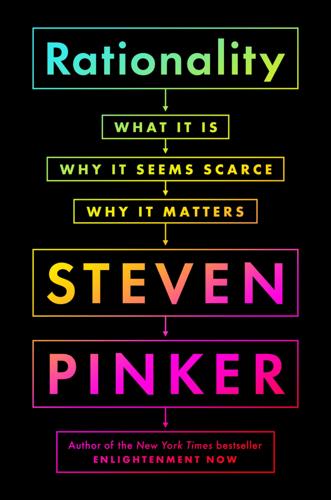
Rationality: What It Is, Why It Seems Scarce, Why It Matters
by
Steven Pinker
Published 14 Oct 2021
Why Rationality Matters Notes References Index of Biases and Fallacies Index PREFACE Rationality ought to be the lodestar for everything we think and do. (If you disagree, are your objections rational?) Yet in an era blessed with unprecedented resources for reasoning, the public sphere is infested with fake news, quack cures, conspiracy theories, and “post-truth” rhetoric. How can we make sense of making sense—and its opposite? The question is urgent. In the third decade of the third millennium, we face deadly threats to our health, our democracy, and the livability of our planet. Though the problems are daunting, solutions exist, and our species has the intellectual wherewithal to find them.
…
If it is, then you are free to believe it, but I don’t have to. Or suppose you claim that everything is relative. Is that statement relative? If it is, then it may be true for you right here and now but not for anyone else or after you’ve stopped talking. This is also why the recent cliché that we’re living in a “post-truth era” cannot be true. If it were true, then it would not be true, because it would be asserting something true about the era in which we are living. This argument, laid out by the philosopher Thomas Nagel in The Last Word, is admittedly unconventional, as any argument about argument itself would have to be.5 Nagel compared it to Descartes’s argument that our own existence is the one thing we cannot doubt, because the very fact of wondering whether we exist presupposes the existence of a wonderer.
…
And he refused to acknowledge his defeat in the 2020 election, fighting crackbrained legal battles to overturn the results, led by lawyers who cited yet another conspiracy, this one by Cuba, Venezuela, and several governors and officials of his own party. Covid quackery, climate denial, and conspiracy theories are symptoms of what some are calling an “epistemological crisis” and a “post-truth era.”5 Another symptom is fake news. In the second decade of the twenty-first century, social media have become sluices for torrents of tall tales like these:6 pope francis shocks world, endorses donald trump for president yoko ono: “i had an affair with hillary clinton in the 1970s” democrats vote to enhance med care for illegals now, vote down vets waiting 10 years for same service trump to ban all tv shows that promote gay activity woman sues samsung for $1.8m after cell phone gets stuck in her vagina lottery winner arrested for dumping $200,000 of manure on ex-boss’s lawn Also rampant are beliefs in ghouls, black magic, and other superstitions.
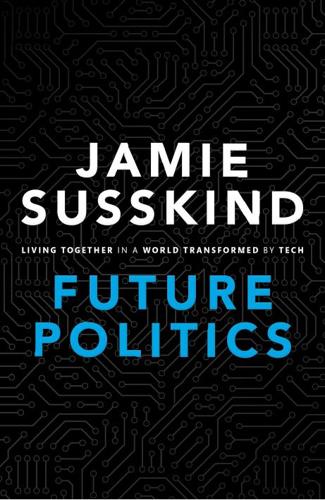
Future Politics: Living Together in a World Transformed by Tech
by
Jamie Susskind
Published 3 Sep 2018
A. 389 Pokémon Go 58 political campaigning 219–20 political concepts 74–80 political hacking 180–2 political speeches 31, 360–1 political theory 80–5 conceptual analysis 81–3, 84–5 contextual analysis 84–5 future of 84–5 normative analysis 83–5 promise of 9–11 politicians Direct Democracy 240–1, 243 technocratic 251 politics definition 74 nature of 70–4 of politics 72 post-truth 230–1, 237 of prediction 172–6 task of 346 of tech firms 156–9 Popper, Ben 381 Portugal 50 post-politics 362–6 post-truth politics 230–1, 237 Potts, Amanda 422 power 3, 10, 22–3, 89, 345–6 code as 95–7, 154–5 concept 75, 76 conceptual analysis 81 definition 92 digital technology 94–8 faces of 92–3 force 100–21 and liberty 189–94 nature of 90–2 nature of politics 74 perception-control 142–52 private 153–60, 189–94 public 153–60 range of 91–2, 158 scrutiny 122–41 separation of powers 358–9 and significance 92, 158 stability of 92, 158 structural regulation 356, 357–9 supercharged state 347–8 tech firms 348–54 pragmatism 349 predictability of behaviour 127, 138–9 prediction Data Democracy 250 politics of 172–6 totalitarianism 177 predictive policing 174, 176 predictive sentencing 174, 176 preliterate societies 111–12 Preotiuc, Daniel 393 pricing mechanism 269–70, 286 Prince, Matthew 414 Princeton Review 286 printing technology 3D printing 56–7, 178, 329 4D printing 57 Gutenberg’s press 20, 62–3 prioritarians 260 Pritchard, Tom 405 Private Property Paradigm 323–7, 336 privatization of force 100, 114–19 OUP CORRECTED PROOF – FINAL, 28/05/18, SPi РЕЛИЗ ПОДГОТОВИЛА ГРУППА "What's News" VK.COM/WSNWS Index productive technologies 316–17 state ownership 329 taxation 328 profit, rights of 330–1 Promobot 55–6 property 313–41 capital 314–17 concentration of 318–22 concept 77, 78 conceptual analysis 82–3 future 327 new paradigm 327–40 Private Property Paradigm 323–7 types of 324 Wealth Cyclone 322–3 ProPublica 174 Proteus Biomedical 51 Protocols of the Elders of Zion 232 proxy votes 242 public utilities, similarity of tech firms to 157–8 Qin dynasty 131 quantum computers 40 Quantum Dot Cellular Automata (QDCA) technology 41 race/racism data-based injustice 282 neutrality fallacy 288, 289, 290 recidivism prediction 174 rule-based injustice 283, 285 Radicati Group Inc. 387 Ralph Lauren 44 ranking, digital 276–8 algorithmic injustice 289–90 ransomware 182 rateability of life 139–40, 277 rational ignorance, problem of 241 Ratner, Paul 383 Rawls, John 389, 404, 417, 419, 432 justice 257, 258, 262–3 political hacking 181 political theory 9 reality, fragmented 229–31, 237 real property 324 509 recognition, algorithms of 260, 275–8 Reddit 77 regulation of tech firms 350–1, 354–9 reinforcement learning (AI) 35 Remnick, David 367, 412 representative democracy 218, 240, 248 republican freedom 167–8, 184 and democracy 222 and private power 191 wise restraints 185 Republican Party (US) 229 reputation.com 290 reputation systems 289–90 resources, limited 365 responsibility, individual 346–7 Reuters 405 revolution concept 77, 78 Richards, Thomas 369 Rieff, David 397 right to explanation 354 usufructuary 330–1 to work 304–5, 307 Riley v.
…
Assuming the right historical conditions, Marx believed that once the realities of the world were revealed to the industrial working class (the ‘proletariat’) they would rise up and overthrow capitalism. The role of intellectuals, Marx believed, was to help ordinary folk shed their misconceptions:‘As philosophy finds its material weapons in the proletariat, so the proletariat finds its spiritual weapons in philosophy.’9 (We look at post-truth politics and fake news in more depth in chapter thirteen.) Perception-Control in the Twentieth Century In the last century, the daily business of filtering was mostly done by the mass media: substantial corporations broadcasting information to millions, even billions, of consumers through print, radio, OUP CORRECTED PROOF – FINAL, 26/05/18, SPi РЕЛИЗ ПОДГОТОВИЛА ГРУППА "What's News" VK.COM/WSNWS Perception-Control 145 and television.
…
Now even the term fake news itself has been drained of meaning, used as a way to describe anything the speaker disagrees with. Although some social media platforms have taken steps to counter it, the nature of online communication (as currently engineered) is conducive to the rapid spread of misinformation. The result is socalled post-truth politics. Think about for this a moment: in the final three months of the 2017 US presidential campaign, the top twenty fake news stories on Facebook generated more shares, reactions, and comments than the top twenty stories from the major news outlets combined (including the New York Times, Washington Post, and Huffington Post).10 A poll in December 2016 found that 75 per cent of people who saw fake news headlines believed them to be true.11 OUP CORRECTED PROOF – FINAL, 26/05/18, SPi РЕЛИЗ ПОДГОТОВИЛА ГРУППА "What's News" VK.COM/WSNWS DEMOCRACY IN THE FUTURE 231 Two further factors exacerbate the problem of post-truth politics.
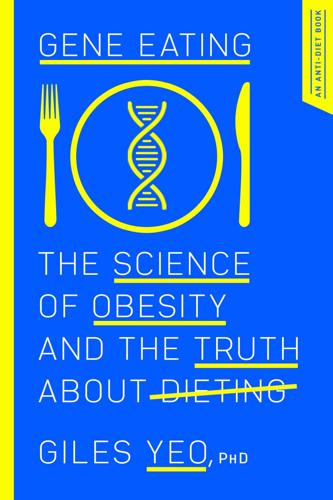
Gene Eating: The Science of Obesity and the Truth About Dieting
by
Giles Yeo
Published 3 Jun 2019
EAT LIKE THIS AND LOOK LIKE ME In response to this demand, a proliferation of food ‘gurus’ have in recent years emerged to fill the vacuum that nature so abhors, armed with confidently certain and easy-to-follow dietary approaches. If you spend any period of time exploring this, often social-media-dominated, world, you’ll notice the reek of ‘post-truth’ that permeates the entire culture. It is clear that many are more likely to believe the advice of these food gurus than listen to experts who are taking an evidence-based approach to nutrition. In truth, we scientists don’t always help the situation either, by having closed conversations in ivory research towers.
…
Finally, I will ask if recent genetic breakthroughs could really usher in an era of personalised diets perfectly tailored to our genes. Understanding our genes and the biology of food intake is not simply an interesting academic exercise; it is essential, if we are to effectively tackle obesity and improve our health in the current food environment. Above all, particularly in the current ‘post-truth’ climate, it will be a defence, nay, a celebration of evidence-based science. PART 1 A game of inches You find out that life is just a game of inches. So is football. Because in either game, life or football, the margin for error is so small ... The inches we need are everywhere around us.
…
CHAPTER 5 Good gluten, bad gluten and ugly gluten The city of Cambridge is a beautiful place and has the advantage of being home to one of the oldest and most famous universities in the world. The University of Cambridge bore witness to and survived the Black Death, the Wars of the Roses, the Reformation and two world wars, celebrating its 800th birthday in 2009. It should, hopefully, be able to stand up against and navigate the ‘post-truth’ anti-intellectualism of today. The university is formed of thirty-one fiercely independent colleges and various academic departments dotted throughout the city. The older colleges are covered with immaculate lawns that have been rolled and mowed, and then rolled and mowed again for hundreds of years; not a sign of a weed will you see.
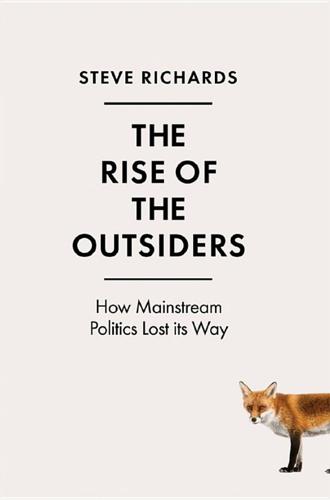
The Rise of the Outsiders: How Mainstream Politics Lost Its Way
by
Steve Richards
Published 14 Jun 2017
A fashionable theory suggests that we are living in a post-truth era, in which lying and lack of knowledge become electoral assets. For reasons that are understandable, the voters who were victims of inequality, economic and social insecurities – or who felt they were – hear or see what they want to hear and see. There is something in this. Uncontaminated by the complexities of power, the outsiders’ propositions are untested. They utter words to euphoric audiences, and do not implement policies that can fuel intense disillusionment and cries of betrayal. Yet the concept of the post-truth era is also dangerously untruthful, in its implicit evocation of a recent past that was a glorious age of candour.
…
Yet the concept of the post-truth era is also dangerously untruthful, in its implicit evocation of a recent past that was a glorious age of candour. The implication is untrue partly because it cannot be true. Truth in politics is always partly subjective, and rightly so. One person’s noble public-spending commitment is another’s reckless waste of taxpayers’ money. More importantly, the concept of the post-truth era obscures the main reason why mainstream parties have become so fragile. In the new, traumatically constraining context of the globalized economy, mainstream parties on the left and right have failed calamitously to find ways of telling the truth about what they can do, what they want to do and what they believe, with conviction, they should do.
…
Arguably it is in both of these countries that political change has been especially dramatic, with the election of Trump, Brexit and the rise of Scottish nationalism. While outsiders made hay, the mainstream leaders in these two countries suffered wild fluctuations of reputation long before social media erupted. The focus on ‘fake news’ and ‘post-truth’ politics, after Brexit, and the rise of Trump serve to create a false impression, if only by implication, that there was an era of reliable news and an age when ‘truth’ was a defining force in politics, especially during elections and referendums. This is not the case. In order to understand the various crises in mainstream parties in the UK and the US, and their failure to adapt to tumultuous change, it is necessary to assess the role of the so-called mainstream media, broadcasters and, in some cases, mighty newspapers.
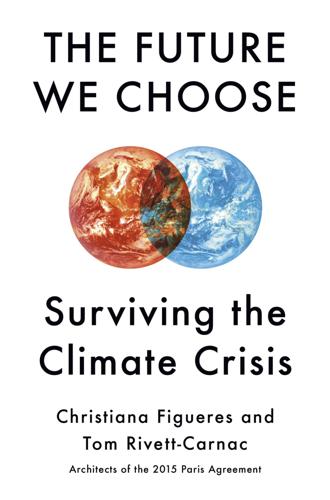
The Future We Choose: Surviving the Climate Crisis
by
Christiana Figueres
and
Tom Rivett-Carnac
Published 25 Feb 2020
A recent analysis by MIT shows that on Twitter lies spread on average six times faster than truth, and that truth never reaches the same level of penetration.22 Social media is an engine for the production and dissemination of lies. This fact has serious consequences for our society and in particular for our ability to come together to deal with complicated long-term threats like the climate crisis. In this “post-truth era,” the undermining of science now has currency. The fabric of the scientific method is fraying. Objectivity is under attack. Some political leaders have chosen to part company with objective reality. The rise of social media has afforded these leaders ample opportunity to obscure facts. This move toward subjectivity creates a breeding ground for oppression and tyranny.
…
We all have an urgent responsibility to recognize and defend such an attack on truth because if it persists, our small window of opportunity to turn back the tide on the climate crisis will be lost forever. In no period of history did leaders ever speak the truth at all times, but right now an altogether different level of lying is evident in the political arena. Humans are vulnerable to the post-truth world for a reason. Our natural inclination seems to be to seek confirmation of things we already believe to be true, rather than evidence for an objective reality.23 It feels good to have our beliefs confirmed, and we respond with positive emotion to anyone who makes us feel this way. Thus, if a leader affirms our belief that vaccines cause autism, or that climate change is a hoax, or that anything else that we feel to be true is true, then we get a frisson of positive emotion.
…
Populist authoritarian rulers will not seek to address the complex climate crisis with long-term solutions; instead they will find someone to blame. We cannot allow them to use the coming disasters to exacerbate tragedy to the detriment of us all. Here’s what we can do to defend the truth: * * * — Free your mind. In the end, you are responsible for what you choose to believe in a post-truth world. Make no mistake, this problem is not ancillary to the climate crisis. If we can’t agree on something as basic as a verified fact, our hands will be tied when it comes to the big stuff, and climate change is huge. The reality of climate change is finally provoking genuine public anger, spurring people onto the streets.
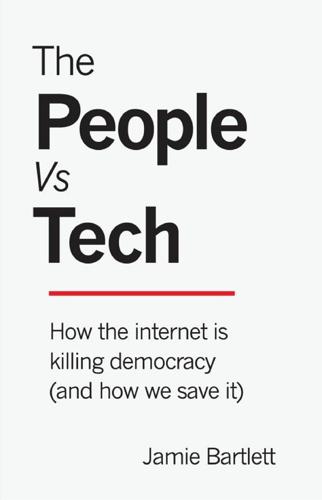
The People vs Tech: How the Internet Is Killing Democracy (And How We Save It)
by
Jamie Bartlett
Published 4 Apr 2018
The basics of what this is doing to politics is now fairly well-trodden stuff: the splintering of established mainstream news and a surge of misinformation allows people to personalise their sources in ways that play to their pre-existing biases.5 Faced with infinite connection, we find the like-minded people and ideas, and huddle together. Brand new phrases have entered the lexicon to describe all this: filter bubbles, echo chambers and fake news. It’s no coincidence that ‘post-truth’ was the word of the year in 2016. At times ‘post-truth’ has become a convenient way to explain complicated events with a simple single phrase. In some circles it has become a slightly patronising new orthodoxy to say that stupid proles have been duped by misinformation on the internet into voting for things like Brexit or Trump.
…
Chapter 2: The Global Village 1 Marshall McLuhan, The Gutenberg Galaxy: The Making of Typographic Man (University of Toronto Press, 1962). 2 Eric Norden, ‘The Playboy Interview: Marshall McLuhan’, Playboy, March 1969. 3 James Madison, ‘Federalist No. 10 – The Utility of the Union as a Safeguard Against Domestic Faction and Insurrection’, 23 November 1787. 4 Thomas Hawk, ‘How to unleash the wisdom of crowds’, www.theconversation.com, 9 February 2016. 5 See especially the following authors: Zeynep Tufekci, Eli Pariser and Evgeny Morozov. On ‘post-truth’, see books by Matthew D’Ancona, James Ball and Evan Davies. 6 Bruce Drake, ‘Six new findings about Millennials’, www.pewresearch.org, 7 March 2014. A survey repeatedly found that millennials have fewer institutional attachments than their parents, are more politically independent, but do ‘connect’ to personalised networks. 7 Daniel Kahneman, Thinking, Fast and Slow (Farrar, Straus and Giroux, 2011).
…
See also Responding to Populist Rhetoric: A Guide (Counterpoint, 2015). 11 Joel Busher, The Making of Anti-Muslim Protest: Grassroots Activism in the English Defence League (Routledge, 2015). 12 Dratman, ‘We need political parties’. 13 Kate Forrester, ‘New Poll Reveals Generations Prepared To Sell Each Other Out Over Brexit, www.huffingtonpost.com,12 April 2017. 14 Jonathan Freedland, ‘Post-truth politicians such as Donald Trump and Boris Johnson are no joke’, Guardian, 13 May 2016. Miriam Valverde, ‘Pants on Fire! Trump says Clinton would let 650 million people into the U.S., in one week’, 31 October 2016, www.politifact.com. Polling data was taken from www.realclearpolitics.com poll tracker. 15 B.
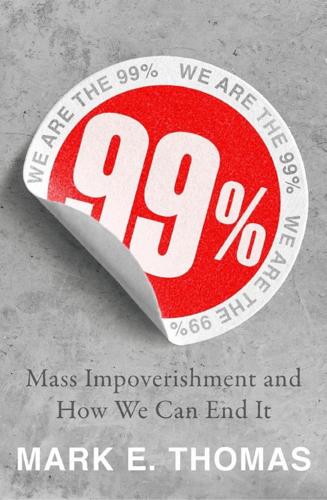
99%: Mass Impoverishment and How We Can End It
by
Mark Thomas
Published 7 Aug 2019
CHAPTER 8 Going Post-Fact Everyone is entitled to his own opinion, but not to his own facts. Daniel Patrick Moynihan1 Post-truth (adjective): Relating to or denoting circumstances in which objective facts are less influential in shaping public opinion than appeals to emotion and personal belief. Oxford Dictionaries2 Oxford Dictionaries made post-truth its word of 2016, noting that there was increasing use of it during the year – in particular in the lead-up to the UK’s referendum on whether to remain within the EU and on the American presidential election campaign. Traditional media have covered – and in some cases given credence to – many post-truth utterances, like the claims that President Obama was born in Kenya and that, by leaving the EU, the UK could recoup £350 million per week to fund the National Health Service (NHS).
…
Traditional media have covered – and in some cases given credence to – many post-truth utterances, like the claims that President Obama was born in Kenya and that, by leaving the EU, the UK could recoup £350 million per week to fund the National Health Service (NHS). Over the past year or so, as Oxford Dictionaries noted, mainstream media have begun to comment on the post-truth phenomenon itself. The impression they often give is that going post-fact is a relatively recent phenomenon, mainly affecting and promulgated by the less-educated strata of society. Until very recently, it is implied, it was not considered a serious problem. In reality, going post-fact is not new, does not involve just the less-educated and it is very dangerous.
…
The aim of the centre is to ensure that relevant facts on important issues are presented accurately and transparently. Professor Sir David Spiegelhalter – Winton Professor for the Public Understanding of Risk, and Chair of the new Centre’s Executive Board – said: We reject claims that we live in a ‘post-truth’ society, and that people are fed up with experts. We do acknowledge, however, that the public, professionals and policy-makers are often ill-served by the way in which evidence is communicated. We hope to work with others to improve how this is done, and empower people to make informed decisions that reflect both existing scientific evidence and their personal values.35 If anything, he underestimates the scale of his challenge.
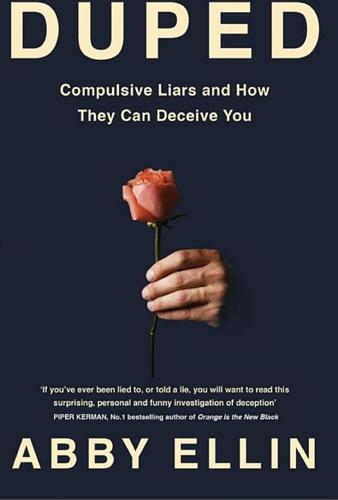
Duped: Double Lives, False Identities, and the Con Man I Almost Married
by
Abby Ellin
Published 15 Jan 2019
John Bridger, 47 Philby, John, 48 Philby, Kim, 47–50, 56, 98, 100, 108, 151 Philby, Tommy, 48 physics, theoretical, 64 The Picture of Dorian Gray (Wilde), 163 pink ghetto, 177 plagiarism, 35, 42 Plato, 103 Playing Dead (Greenwood), 99 police officers, undercover work, 101 polygraph, 198–202, 206 Ponzi propensity ratio, 152 Pope, Kelly Richmond, 177 The Post-Truth Era: Dishonesty and Deception in Contemporary Life (Keyes), 174–175 post-traumatic stress disorder (PTSD), 123–126, 130, 184 post-truth, 46 Pownetwork.org, 29 practice, liars with, 99 prison inmates, psychopathy in, 74 Professor Marston and the Wonder Women (film), 198 pseudocide, 99–100 pseudologia fantastica, 75 psychiatry, 79, 155 psychoanalysis, 79, 155 psychological stress, lies and, 107–108 psychology, 45, 79, 108–109, 216 Psychology Today (magazine), 34, 49, 61, 211 psychopathy, 96, 156 checklist, 74, 78, 79 pathological liars and, 74–75 supertraits, 214 women victims of, 213–215 Psychopathy Checklist–Revised (PCL-R), 74, 78, 79 PTSD.
…
To realize that you’ve unwittingly been leading a divided life—split between your perceived reality, on the one hand, and the parallel, actual reality that your partner, family member, or colleague has constructed, an elaborate and long-standing deception around your shared experience? Does one recover from that scale of betrayal? Is it ever possible to trust again? All of these questions feel urgent to me. The word of 2016, according to Oxford Dictionaries, was “post-truth”—an adjective “relating to or denoting circumstances in which objective facts are less influential in shaping public opinion than appeals to emotion and personal belief.”26 Fake news and “alternative facts” are referenced daily. Donald Trump, the Gaslighter in Chief, roams the gilded halls of the White House, tweeting with impunity.
…
Women may tell one another more kindhearted lies, but bring a dude on the scene—whether it’s men lying to men, men lying to women, or women lying to men—and the self-serving lies kick in, up to eight times as often.20 “It’s hard to overestimate how competitive men are,” said Ralph Keyes, author of The Post-Truth Era: Dishonesty and Deception in Contemporary Life. “Men are incredibly competitive in ways that we don’t always appreciate—for the attention of women, to be the biggest, to have the most hair, to get the best job, to do the best at work. If they think they can get an edge by being a little deceptive, or more than a little deceptive, and they think they can get away with it, why not?
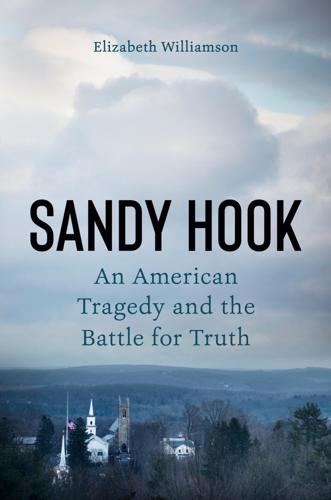
Sandy Hook: An American Tragedy and the Battle for Truth
by
Elizabeth Williamson
Published 8 Mar 2022
I did not write about the Sandy Hook shooting at the time of the tragedy. I began researching this book in April 2018, when Noah Pozner’s parents, Lenny Pozner and Veronique De La Rosa, and Neil Heslin, the father of Jesse Lewis, who also perished in the shooting, sued Alex Jones for defamation in Texas. My first New York Times story about the shooting, “Truth in a Post-Truth Era: Sandy Hook Families Sue Alex Jones, Conspiracy Theorist,” appeared on May 23, 2018, on the day a separate group of victims’ families and an FBI agent targeted by Sandy Hook conspiracists sued Jones in Connecticut. I have covered the lawsuits and the Sandy Hook conspiracy phenomenon for the Times since then.
…
Like the algorithms that spread their content, the conspiracy theorists continually adapted, migrating their websites from one hosting company to another, creating new video channels, squeezing amoeba-like into new, dark spaces. Jones ruled over them all, his association with President Trump and his money-spinning supplements business having transformed him into an icon of the post-truth era. On his show that year, Jones called himself and his listeners “the operating system of Trump.” “I’m making it safe for everybody else to speak out just like Trump’s doing, on a much bigger scale,” he boasted. * * * — Jones’s on-air explosion after YouTube removed Shroyer’s broadcast brought matters to a head.
…
Defendants’ defamatory statements were knowingly false or made with reckless disregard for the truth or falsity of the statements at the time the statements were made.” Both lawsuits sought damages in excess of one million dollars. Six months later, Scarlett Lewis filed suit against Jones too. The parents sought jury trials. They wanted Alex Jones to account for himself in public. In a post-truth culture where lies careen through cyberspace, smashing lives and reputations, they wanted Americans’ verdict on whether our Constitution protects purveyors of these lies. 21 Jones of course went bananas. On April 17, the day after Lenny and Neil filed their suits across town in Austin, Infowars aired “Alex Jones’ Full Statement on Frivolous Sandy Hook Lawsuit.”
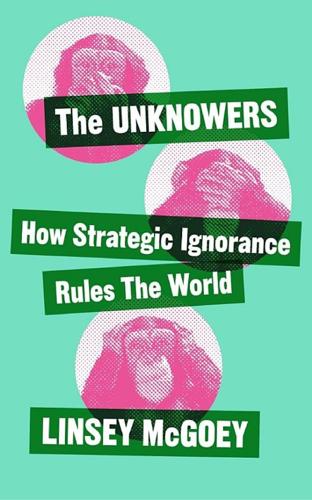
The Unknowers: How Strategic Ignorance Rules the World
by
Linsey McGoey
Published 14 Sep 2019
Sorel championed the idea that leaders should deliberately use myths, even knowingly false ones, to foment civic devotion, an idea that was influential on Italian fascist movements. His advocacy of post-truth politics did not die following WWII; traces of his theories can be seen in propaganda efforts from both camps, from both Soviet and western stakeholders during the Cold War. Today, Sorel’s ideas about myth-making and explicit disdain for empirical fact are reminiscent of Donald Trump’s approach to the truth, but they also recall the manipulation and distortion of evidence that characterized the build up to the 2003 invasion of Iraq. The proclaimed newness of post-truth politics is a myth in itself. The greats is my shorthand for various national and international democratic social movements across the world that are challenging political and corporate authoritarianism.
…
However, there always remain uncertainties about certain specific issues, and it is here that the powerful deploy strategic ignorance by amplifying those uncertainties so as to render themselves effectively unaccountable. If the truth can set us free, then it is only once we have taken back ignorance.’ Steve Fuller, University of Warwick, author of Post-Truth: Knowledge as a Power Game ‘Ours is an era where truth-telling, leadership and authority have an increasingly feeble relationship. Linsey McGoey knows it all too well as she carefully picks apart how strategic ignorance is a dastardly ploy that enables society’s elites to avoid responsibility for their rampant pursuit of self-interest.
…
Techniques of high-frequency financial trading that give large investment banks an unfair advantage over average investors and commercial laws that allow pharmaceutical companies to legally hide evidence of the safety risks of pharmaceutical drugs: these are just some of the limits to knowledge with which citizens must grapple. And the same authorities that citizens are asked to trust – government officials and commercially funded experts who position themselves as arbiters of certainty in a ‘post-truth’ age – are often responsible for these very barriers to information. GOD AND WEALTH The study of the economy, and especially the academic study of wealth inequalities, is another area where ‘oracular power’ is visible. Mainstream economists, for example, typically point to long-standing economic theories, such as an academic theory known as the marginal productivity theory of income distribution, to defend gross wealth inequalities.
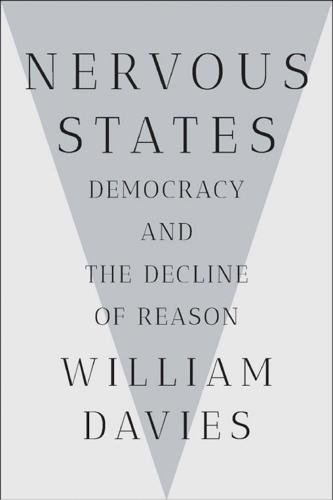
Nervous States: Democracy and the Decline of Reason
by
William Davies
Published 26 Feb 2019
It is only necessary for people to buy a drink if they choose to, and for manufacturers and retailers to seek revenue. Prices do the rest. If experts really want to be neutral, they should give up trying to understand what is happening, and simply focus on creating the conditions for competition to take place. The market is therefore a type of “post-truth” institution, that saves us from having to know what is going on overall. It actually works better if we ignore the facts of the system at large, and focus only on the part of it that concerns us. From Hayek’s perspective, the market does what intellectual elites refuse to do, namely to factor in the feelings, instincts, and perspective of the mass of ordinary people on the ground.
…
The categorical division between “reason” and “feeling” no longer functions because Descartes’ idea of the disembodied rational mind is dead. But we can still draw distinctions between different speeds of reaction, and strive to defend slowness. Impulsive reactions can be paranoid and aggressive, whereas more careful ones can be more understanding and attentive to context. The phenomena known as “fake news” and “post-truth” are really just symptoms of arguments accelerating to the point where only superficial judgments are possible. Factcheckers can fight these forces in the short term, but the grander task of building and safeguarding slower spheres of discussion is a political one. Language needs to be de-weaponized, and turned back into a tool of promise making, if democracy is to feel—and be—less warlike in the future.
…
An alternative is to conduct the following thought experiment: imagine if we had just emerged from some kind of war today, what new rules and policies would we seek to establish for peace? Avoiding violence will require a leap of imagination toward a future settlement, rather than clinging to a previous one. Existing centers of elite power must now open their worldview to understanding some of the processes that they’ve dismissed as “irrational” or “post-truth,” and to throw their considerable influence behind a different social and economic settlement. An idea that might help such a thought experiment is that of nonviolence. This is not the same thing as “freedom of speech,” “rationality,” “human rights,” or any of the other totemic values of Western civilization.
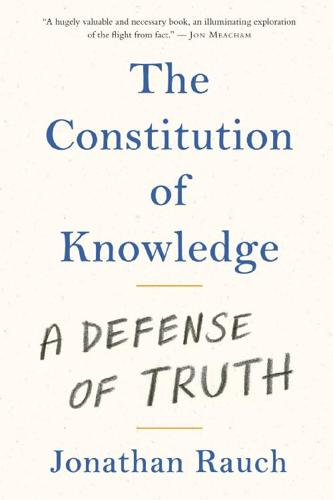
The Constitution of Knowledge: A Defense of Truth
by
Jonathan Rauch
Published 21 Jun 2021
“In threatening to erode the forms of intellectual trust and cooperation that are required for democratic life, and in making the determination of ‘truth’ more and more obviously a consequence of brute power alone, our current practices threaten democracy itself,” wrote Sophia Rosenfeld, a historian at the University of Pennsylvania, in her book Democracy and Truth: A Short History. In reports and books with titles like “The Misinformation Age” and “Truth Decay” and “Post-Truth” and “The Death of Truth,” scholars explored aspects of what all agreed was uncharted territory, at least in the United States.3 Politicians and pundits—everyone from senators and two former secretaries of state to leaders of the intelligence and law-enforcement communities—sounded alarms that American civic life might be losing its grip on reality: its ability, that is, to tell truth from untruth or even believe there is a difference.
…
Michael Hayden, a former director of the Central Intelligence Agency, sent a distress signal when he wrote (in the New York Times): “These are truly uncharted waters for the country. We have in the past argued over the values to be applied to objective reality, or occasionally over what constituted objective reality, but never the existence or relevance of objective reality itself.” The battle lines, Hayden perceived, made for some strange bedfellows. “In this post-truth world, intelligence agencies are in the bunker with some unlikely mates: journalism, academia, the courts, law enforcement, and science—all of which, like intelligence gathering, are evidence-based.” An arcane multisyllabic word began cropping up in the public discourse. “At its heart … the current crisis belongs primarily to the realm of epistemology, or how we know what we know,” wrote Rosenfeld (italics added).
…
To all of which can be added a meta-bias, because one of the things our biases do is blind us to our biases. “These and other cognitive biases not only sometimes rob us of our ability to think clearly, but inhibit our realization of when we are not doing so,” writes the philosopher Lee McIntyre in his 2018 book, Post-Truth. Often we think we are most rational and feel we can be most certain when we are in fact most mistaken and most deceived. People are biased for a reason: for early humans, not much changed from one day to the next, and survival often depended on reacting fast. Humans’ response patterns evolved to suit our environment; our brains are tuned to make certain guesses or predictions.
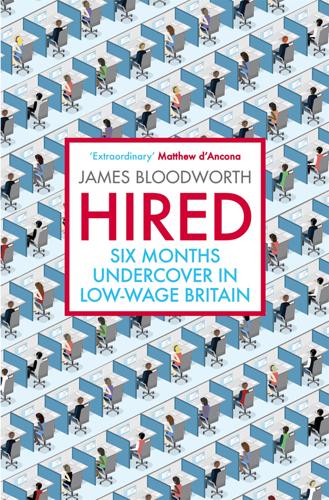
Hired: Six Months Undercover in Low-Wage Britain
by
James Bloodworth
Published 1 Mar 2018
‘An extraordinary and unsettling journey into the way modern Britons work. It is Down and Out In Paris and London for the gig economy age.’ Matthew d’Ancona, Guardian columnist and bestselling author of Post-Truth ‘A tautly written exposé of the swindle of the gig economy and a call to arms.’ Nick Cohen, journalist and author of What’s Left? ‘I emerged from James Bloodworth’s quietly devastating and deeply disturbing book convinced that the “gig economy” is simply another way in which the powerful are enabled to oppress the disadvantaged.’ D. J. Taylor, author of Orwell: The Life ‘A truly devastating examination of the vulnerable human underbelly of Britain’s labour market, shining a bright light on the unjust and exploitative practices that erode the morale and living standards of working-class communities.’
…
There is worse work out there than that found in a call centre, but it is an atomised existence that grants you none of the respect and little of the solidarity of the industries of old. It is perhaps this gradual transformation in the role played by the state, rather than a sudden outbreak of ‘post-truth’ discourse – the fashionable bête noire singled out by liberal commentators to explain political turmoil – which helps explain why the door has swung so invitingly open to demagogues and blowhards. The latter are some of the last people willing to stand up and propose solutions to society’s ills, even if the remedies they offer are ugly, cynical and violent.
…
.: These Poor Hands 23, 149, 190 courier firms 211, 215, 217, 223, 236, 244–7, 250, 256, 257 Cwm, Wales 147, 148, 187, 190, 195, 196, 197 Cwmbran, Wales 143 Daily Express 124–5 Daily Mail 66, 134, 188 Dan (bicycle courier) 248, 249 Dangerfield, George 72 Davies, Idris 148–9 Gwalia Deserta (Wasteland of Wales) 148 ‘The Angry Summer’ 174 debt 62, 69, 146, 151, 153 Deliveroo 215, 217, 223, 250, 256, 257 democratic socialists 192 Department for Work and Pensions 133 Dickens, Charles 29, 205, 210, 249; Hard Times 138–9 Disclosure and Barring Service (DBS) 88–90, 109–10, 214 Dorothy (housemate of JB) 203, 204–5 DriveNow 217 Dropit 217 Eastern Europe, migrant workers from 11, 13, 15, 21, 24, 26–7, 30, 32, 33, 34, 45, 57, 61–2, 75, 114–16, 128–9, 154, 203–4, 260–1 see also under individual nation name Ebbw Vale, Wales 147, 149, 154; legacy of de-industrialisation in 187–200 Elborough, Travis 93 emergency housing 96 employment agencies 1, 16, 19, 20, 23, 37, 38, 39, 40, 41, 42, 43, 56, 65–6, 70, 72, 73, 82, 86, 127, 130, 158, 189, 194 see also under individual agency name Employment and Support Allowance (ESA) 248 employment contracts/classification: Amazon 19–20, 53, 58 care sector 87–8, 107–8, 116 Uber 214–15, 222, 229–35, 243, 245, 250–2, 257 zero-hours see zero-hours contracts employment tribunals 38, 229–30, 243–4 English seaside, debauchery and 92–3 Enterprise Rent-A-Car 214 ESOL (English for Speakers of Other Languages) programmes 115–16 European Economic Community (EEC) 195 European Referendum (2016) 61, 195–6 Evening Standard 208, 241 Express & Star 59–60 Fabian Society 109 Farrar, James 229–31, 232, 233, 234, 236, 238, 240, 241–2, 250, 254, 255–6 Fellows of the Academies of Management 17 Fernie, Sue 182 financial crisis (2008) 1, 2, 45, 125, 195, 209 Flash (former miner) 165–8, 170, 171–2, 174, 175, 176–8, 179, 188, 196 Fleet News 246 Foot, Michael 149 football 56, 58, 92, 94, 97, 98, 126, 135, 169 fruit picking 61 FTSE 123, 262 Gag Mag 122 Gallagher, Patrick 246 Gary (homeless man, Blackpool) 96–104, 105 Gaz (Gag Mag seller, Blackpool) 122 GDP 146 General Election (2015) 109 General Strike (1926) 148, 149, 173 gentrification 219 Geoff (former miner) 189, 190, 191, 193 ‘gig’ economy 2, 208–10, 217–18, 232, 236, 242, 243–4, 248, 249–50, 252, 257 see also Uber Gissing, George: New Grub Street 64 GMB union 36 grammar schools 261 Guardian 5, 235 Hamstead Colliery, Great Barr 169 Hazel (home carer) 110–11, 114, 115, 116, 117, 119 Heller, Joseph: Catch-22 235–6 Hemel Hempstead 54, 70 Henley, William Ernest: ‘England, My England’ vii Hoggart, Richard: The Uses of Literacy 45 home care worker (domiciliary care worker): Disclosure and Barring Service (DBS) checks 88–90, 109–10 employment contracts 87–8, 107–8, 116, 118, 120 length of home care visits 108–9, 110 local authority budget cuts and 107–10 MAR (Medication Administration Record) sheets 114, 115 migrant workers as 114–16 negligent 86–7 privatisation of social care and 106–8, 109 recruitment 82–4 ‘shadowing’ process 88, 109–10 societal view of 106 staffing crisis 85–6, 119 suicide rate among 100 typical day/workload 110–14, 118 unions and 88 view job as vocation 86–7 wages/pay 107–8, 117, 118–19, 159 Home Instead 119 homelessness 95–105, 138, 187, 208 hostels 95, 96, 101, 102 housing/accommodation: Amazon workers, Rugeley 20–2, 24–6 Blackpool 80, 124, 137–8 buy-to-let housing market 24 emergency housing 96 homelessness and 95, 96, 101, 102, 137–8 hostels 95, 96, 101, 102 inability to buy 62 landlords and 12, 21, 24, 39, 67, 69, 95–6, 137–8, 164, 204, 206, 258 London 203–8 migrant workers and 20–2, 24–6, 197–8 social housing 62, 206 Swansea 124, 150 housing benefit 96, 137–8, 248 immigration 26–7, 61, 115–16, 128–9, 144, 193, 197–9, 236, 259–61 see also migrant workers indeed.co.uk 83–4 independent contractors 209, 248, 251–2 Independent Workers Union of Great Britain (IWGB) 230, 257 inequality 18, 73, 123, 125, 207–8, 226, 238, 262, 263 inflation 2, 122 job centres 19, 96, 133–6, 139–40, 156, 158 Joe (housemate of JB) 22 John Lewis 23, 83 Joseph Rowntree Foundation 70, 159 June (call centre employee) 181–2, 183, 184 Kalanick, Travis 215, 228, 229, 233, 235 Kelly, Kath 66 Khan, Sadiq 256 Koestler, Arthur: The God that Failed 228 Labour Party 7, 57, 59, 61, 109, 144, 149, 150, 173, 174 Ladbroke Road, Notting Hill, London 219 Lamb, Norman 109 Lancashire Evening Post 104–5 landlords, private 12, 21, 24, 39, 67, 69, 95–6, 137–8, 164, 204, 206, 258 Lea Hall Colliery, Staffordshire 31–2, 54, 55, 56, 57 Lea Hall Miners’ Social Club, Staffordshire 55, 56, 74 Len (step-grandfather of JB) 143–4 Lili (London) 203–4 living wage 1, 85, 160, 246 Lloyd George, David 172 loan sharks 151, 156 local councils 104–5, 164 London 201–57 accommodation/housing in 65, 203–8, 218 gentrification in 219 ‘gig’ economy in 208–57, 263 homelessness in 95 migrant labour in 205–6, 213, 239 wealth divide in 207–8, 238 London Congestion Charge 254 London Courier Emergency Fund (LCEF) 247 London Metropolitan Police 90 London, Jack 205 low-skilled jobs, UK economy creation of 153 Lydia (Amazon employee) 70 Macmillan, Harold 3 manufacturing jobs, disappearance of 59, 139 Marine Colliery, Cwm, Wales 190 Mayhew, Henry 4, 205 McDonald’s 52, 68, 83 Merkel, Angela 196 Metcalf, David 182 middle-class 6, 39, 51, 67, 68, 69, 72–3, 74, 75, 149, 178, 205, 258, 259, 260, 262, 263 migrant labour: Amazon use of 11, 12, 13, 15, 20, 21, 22–7, 30, 32, 33, 34, 44, 45, 46, 51, 53, 57, 61–2, 65, 71–5, 258, 260–1 care home workers 114–16 ‘gig’ economy and 203–6, 213, 239 restaurant workers 154 retail sector and 128–9 Miliband, Ed 109 mining see coal mining Miners’ Federation of Great Britain (MFGB) 173 Miners’ Strike (1984–5) 3, 174–7 minimum wage 1, 7, 55, 62, 84, 107, 108, 118, 135, 155, 159, 173, 189–90, 209, 212, 235, 236, 245, 250, 262 Morecambe, Lancashire 137–8 Morgan family 156–8 Morgan, Huw: How Green Was My Valley 147 Moyer-Lee, Jason 257 National Coal Board (NCB) 54, 170, 171 National Institute for Health and Care Excellence (NICE) 108 National Union of Miners (NUM) 174, 176 New York Times 222 NHS (National Health Service) 106, 108, 247 Nirmal (Amazon employee) 45–6, 51 Norbert (Amazon employee) 71–5 nostalgia 3, 60, 93–4, 216 Nottingham 2, 151–2 objectivism 228 oil crisis (1973) 122–3 Oliver, Jamie 154 Orwell, George 56, 169 Palmer, William 29 pay see wages and under individual job title and employer name payday loans 156 PayPal 216 Pimlico Plumbers 251–2 platform capitalism 215 PMP Recruitment 19, 189–90 Poland, migrant workers from 128–9, 130, 135, 197–8 ‘poor, the’ 145 Port Talbot, Wales 166, 176, 190, 196 ‘post-truth’ discourse 199 ‘post-work’ world 165 poverty: Blackpool and 132, 137 class and 4 darkness and 96 diet/weight and 137 ease of slipping into 5 Eastern Europe and 26 monthly salary and 156 as a moral failing 188–9 press treatment of 66–7 time and 67 working poor living in 194 Preston, Lancashire 100, 105, 138–9 private school system 123 progressive thought 262 Public Accounts Committee (PAC) 107 Putin, Vladimir 71 Rand, Ayn 228–9, 235, 236; The Fountainhead 228, 229 recession (2008) 1, 45, 104, 121, 125, 156 ‘regeneration’ 55, 60–1, 146 rent-to-own 157–8 retirement, working in 58–9 Reve, Gerard: The Evenings 160 Robin (Cwm) 196, 197 Rochelle (home care worker) 117–19 Romania, migrant workers from 11, 12, 13, 15, 20, 21, 22–7, 32, 44, 46, 51, 53, 61, 65, 71–5, 203, 206, 258 Ron (former miner) 170, 195 Royal London 59 Royal London pub, Wolverhampton 71 Royal Mail 151 Rugeley, Staffordshire 28–35 Amazon distribution centre in 11–76, 79, 86, 119, 127, 128, 159, 258 decline of coal mining industry in 31–2, 54–6, 57, 169 disappearance of manufacturing jobs from 54–63 high street 28–35 immigration and 30–4, 193–4 Tesco and 58–9, 62–3 Scargill, Arthur 175 scientific management theories 17 Scotland Yard 90 self-employment: ’gig’ economy and 214–15, 222, 229–30, 234, 243–4, 245, 246, 249, 250–1 increase in numbers of workers 2, 209 ‘independent contractors’ and 209, 248, 251–2 Selwyn (former miner) 175, 178, 179, 263–4 Senghenydd, Glamorgan pit explosion (1913) 169–70 Shelter 104 Shirebrook Colliery, Derbyshire 55 Shu, William 250 Silicon Valley, California 210, 232 Sillitoe, Alan: Saturday Night and Sunday Morning 2, 3, 94 Sky Sports News 126 social democracy 3, 263 social housing 62, 206 socialism 7, 56, 131, 144, 148, 149, 173 social mobility 58, 199, 261 South Wales Miners’ Museum, Afan Argoed 166, 196 South Wales Valleys 141–200 accommodation in 150, 197 Amazon in 145–6 beauty of 148 call centre jobs in 153–64, 180–6 coal industry and 143–4, 147–9, 165–79, 180, 188, 189, 190–1, 193, 195, 196 immigration and 197–9 JB’s family history and 143–4 legacy of de-industrialisation in 187–200 nostalgia and 147 radical history of 149–50 see also under individual place name ‘spice’ 95 Sports Direct 55 squatting 96, 99 steel industry 176, 180, 188, 189, 190, 196–7 Steven (housemate of JB) 124, 126, 127–31 Stoke-on-Trent 58–9 suicide 99–100 Sunday Times 175 ‘Best Companies to Work For’ 154 Rich List 125 Swansea, Wales 145–6, 150–2, 154–64, 176, 178, 197, 205 Tata Steel 190 tax 65, 69, 70, 118, 146, 158, 159, 163, 164, 212, 229, 244, 246, 248, 251, 255 Taylor, Frederick W.: The Principles of Scientific Management 17 Tesco 35, 57, 58–9, 62–3 Thatcher, Margaret 122, 123, 146, 174–5, 193, 207, 263–4 Thorn Automation 57 Thorn EMI 59 trade unions: Amazon and 36 B&M and 130, 131 call centres and 160, 181, 184–5, 186 care sector and 88 coal industry decline and 55–6, 173, 174, 263–4 decline of 2, 3, 35 ‘gig’ economy and 230, 257, 261 objectivism and 228 oil crisis (1973) and 122 Thatcher and 123, 174, 193, 263–4 Wales and 144, 149 see also under individual union name Trades Union Congress (TUC) 173 transgender people 40–1 Transline Group 19, 20, 37, 38, 39, 40, 41, 43, 65–6, 86 Transport for London (TFL) 211, 212–13, 214, 233, 254, 256 Tredegar Workmen’s Medical Aid Society 247 Trefil, Wales 149 Trump, Donald 7 Uber 207, 211–57 ‘account status’ 221 clocking in at 218 corporation tax and 229 customers 221, 222, 226–7, 237–41, 244, 257 driver costs/expenses 214, 217, 233, 241, 246, 253–5 driver employment classification/contract 214–15, 222, 229–35, 243, 245, 250–2, 257 driver hours 221, 226, 230, 232, 233, 236, 246, 253, 255 driver numbers 211–13, 233–5 driver wages/pay 212, 218, 221, 229–30, 235, 236, 237, 240, 241, 244, 246, 252–5 employment tribunal against (2016) 229–34 flexibility of working for 213–14, 218, 230–3, 248, 250–1 James Farrar and see Farrar, James migrant labour and 213, 236 ‘Onboarding’ class 224–5, 238, 241, 256 opposition to 215–17 philosophy of 228–9, 235, 236 psychological inducements for drivers 222–3 rating system 225–7, 232, 238, 239, 243, 253 rejecting/accepting jobs 221–2, 224–5 ride process 219–21 surge pricing 237, 238, 253 TFL and 211, 212–13, 214, 233, 254, 256 Travis Kalanick and see Kalanick, Travis UberEATS 256 UberPOOL 225, 240–2, 253, 255–6 UberX 212, 225, 240, 241, 255 VAT and 229 vehicle requirements 214 unemployment 2, 32, 36, 62, 121–3, 132, 138, 148, 157, 172, 178, 179, 189–95, 199, 218 Unison 88, 108 Unite 55, 160 United Private Hire Drivers 230, 257 university education 3, 6, 61, 62, 123, 150–1, 152, 153–4 USDAW 130–1 Vettesse, Tony 138 Vicky (care sector supervisor) 86, 87 Wade, Alan 121, 123–4 wages: Amazon 18, 19, 37–9, 42–3, 65–6, 68, 69, 70, 159 call centre 155–6, 158–60, 164, 180 care sector 107–8, 117, 118–19, 159 living wage 1, 85, 160, 246 minimum wage 1, 7, 55, 62, 84, 107, 108, 118, 135, 155, 159, 173, 189–90, 209, 212, 235, 236, 245, 250, 262 Uber 212, 218, 221, 229–30, 235, 236, 237, 240, 241, 244, 246, 252–5 wage stagnation 2 see also under individual employer, job and sector name Wealth and Assets Survey 207–8 wealth inequality 18, 73, 123, 125, 207–8, 238 Wells, H.
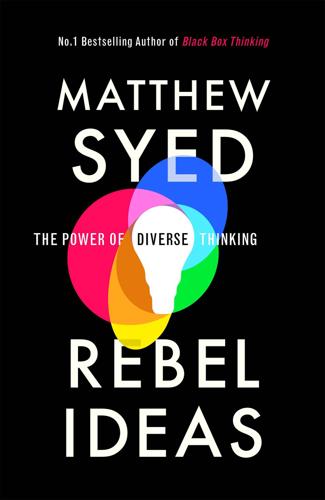
Rebel Ideas: The Power of Diverse Thinking
by
Matthew Syed
Published 9 Sep 2019
Where an information bubble is inherently fragile, echo chambers on both sides of the political spectrum are reinforced by the mutual exposure of alternative views, driving polarisation, and leading to competing (and often contradictory) claims of fake news. Each side thinks the other is living in a post-truth age. As Nguyen says: ‘Here’s a basic check: does a community’s belief system actively undermine the trustworthiness of any outsiders who don’t subscribe to its central dogmas? Then it’s probably an echo chamber.’18 IV Derek Black is unusual in that he did not grow up in a digital echo chamber but a real one.
…
It is an advocacy that I cannot support, having grown past my bubble, talked to the people I affected, read more widely, and realized the necessary impact my actions had on people I never wanted to harm.21 He then found the email address of the Southern Poverty Law Center, a civil rights group that had scrutinised the activities of his father for so many decades, and pressed send. VI The defining error in the contemporary analysis of the post-truth age has been the conflation of information bubbles and echo chambers. The former seeks to explain people’s extremist beliefs via distorted exposure. The idea is that when people are denied access to diverse views and evidence, they are more likely to cleave to extremist beliefs and ideologies. As the legal scholar Cass Sunstein argued in a highly influential essay: Although millions of people are using the Internet to expand their horizons, many people are doing the opposite, creating a Daily Me that is specifically tailored to their own interests and prejudices . . .
…
Neither has a problem with divergent opinions, even powerfully argued ones, but they do worry about the character attacks, allegations of fake news, and broader breakdown of trust in political opponents. They have shared a stage on popular TV programmes, at youth events, even at corporations seeking to understand the post-truth age. Matthew – who is studying for a PhD in economics and mathematics – now helps a charity seeking to promote community understanding, while Derek is completing his PhD in history. Derek’s Twitter handle? ‘Unexpected advocate for antiracism’. Derek’s life wasn’t easy after he emailed his statement to the SPLC retracting his political views.
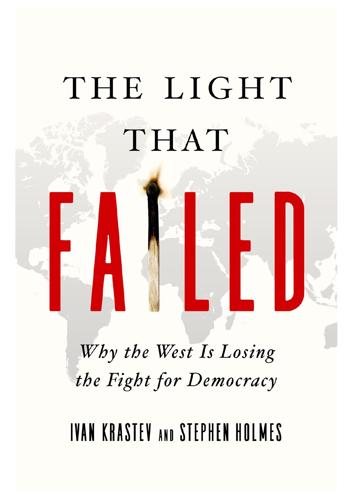
The Light That Failed: A Reckoning
by
Ivan Krastev
and
Stephen Holmes
Published 31 Oct 2019
Russians learned at least some of their dirty tricks from the American consultants who came to teach them political marketing. Stalin and other Soviet leaders were accomplished liars, of course, but they seldom bothered to focus their mendacity on electoral politics. Before becoming an American import from Russia, therefore, a sophisticated form of post-truth democracy was arguably America’s export to Russia. Russian political technologists immediately grasped the central role being played in contemporary democracies by the application of commercial advertising techniques to electoral campaigns. Subliminal appeals are crafted to put the critical faculties of voters to sleep – to smear rivals, magnify fears, and wildly over-promise – and thereby to increase the number of votes for the candidate or party being puffed.
…
His efforts have been abetted by radically changing perceptions of the role of social media in politics. If, in the initial euphoric days of the Arab Spring, social media were seen as ‘liberation technologies’103 and Facebook, Google and Twitter were signs of the coming democratic future of the world, these same social media are now universally associated with post-truth fragmentation, polarization and the coming end of democracy. Post-communist Russia illustrates how a handful of politically unaccountable and self-enriching rulers have, despite internal rivalries, managed to stay atop the country’s fragmented society without resorting to historically significant levels of mass violence.
…
165–6 Husak, Gustav, 48 Hussein, Saddam, 150 identity politics, 57 Ilyin, Ivan, 110, 119 imitation: and psychological trauma, 12; and resentment, 13–18, 70–4; ‘Reverse Imitation,’ 44; types of, 7–13 ‘Imitation Imperative,’ 8, 11, 12–13, 14, 25, 44, 66, 70, 74, 75 India, 203 information borders, 123 Ioffe, Julia, 100 Iraq War (2003 - 2011), 2, 149, 150, 180 ISIS (Islamic group), 124, 131 Islamophobia, 39 Jan III Sobieski, 46 Japan, 158–60, 203 Jaruzelski, General Wojciech, 27 Johannis, Klaus, 33 Jowitt, Ken, 10 Judis, John, 180 Kaczynski, Jaroslaw: anti-liberalism of, 67–8, 74; ‘counter-revolutionary’ politics, 13, 36, 53; criticism of Merkel’s refugee policies, 40–1; as defender of Europe, 46, 70, 72; xenophobic nationalism of, 44, 47 Kádár, János, 48, 63 Kafka, Franz, Metamorphosis, 19 Kagan, Robert, 139, 150 Karamzin, Nikolay, 187 Kennan, George, 173 Kerensky, Alexander, 78 Khashoggi, Jamal, 184–5 Khodorkovsky, Boris, 118 Khrushchev, Nikita, 111 Khrushcheva, Nina, 127 Kipling, Rudyard, 9; The Light that Failed (1890), 205 Koestler, Arthur, 62; Darkness at Noon, 100 Kosovo, 90 Kotkin, Stephen, 77 Kotler, Yuri, 107 Kulturnation, 60 Kundera, Milan, 39 labour unions, 61 Lasch, Christopher, The Revolt of the Elite (1995), 168 Latin America, 26 Latvia, 37 Lee, Spike, BlacKkKlansman (film, 2018), 171 Legomsky, Stephen, 27 Legutko, Ryszard, 6, 7 Lendavi, Paul, 63 liberalism: and the 2008 financial crisis, 11; Central and East European disappointment in, 62–9, 71–2; and economic inequality, 66; inevitability of, 22, 190; post-1989, 4–5, 18, 19–22; provisional nature of, 67–9; weakened by the collapse of communism, 152, 204 Libya, 111, 126 Lithuania, 37 Lumet, Stanley, Twelve Angry Men (film, 1957), 115–16 Luntz, Franz, 169 Maalouf, Amin, 70, 154 Magnitsky Act (US), 125 Malaparte, Curzio, 85 Manafort, Paul, 96 Mao Tse Tung, 198 Marxism, 92, 191, 192 Mattis, James, 17 McCain, John, 80 McFaul, Michael, 110 Medvedev, Dmitry, 94, 107 Merkel, Angela, 22, 33–4, 40–1, 80, 128 Michnik, Adam, 23, 24, 27–8, 33, 48 migration: of Central and East Europeans to the West, 30–3, 36–41; global, 44; of non-Europeans into Europe, 2, 33–8, 43 Mikhalkov, Nikita, 12 (film, 2007), 115–17 Miller, David, 44 Milosz, Czeslaw, The Captive Mind, 25 Morrell, Lady Ottoline, 99 multiculturalism, 52, 60 Mungiu, Cristian, 50 Munich Security Conference, 80 Nagy, Imre, 63 National Endowment for Democracy, 196 nationalism, 44, 56, 57–9, 122, 160 see also ethno-nationalism; post-nationalism; white nationalism NATO, 80, 83, 87, 111, 125, 135, 142 Navalny, Alexei, 85 Nazism, 58, 60–1, 124 Nietzsche, Friedrich, 40 ‘normality,’ 24–5, 30, 31, 47–54 Nowak, Andrzej, 68 Obama, Barack: and American exceptionalism, 146, 147, 180; and Birtherism movement, 177; doubts of, 3; part of the educated elite, 169; policy on illegal aliens, 184 Olympic doping scandal (2018), 127 Orbán, Viktor: admired in the US, 47; attacks ‘meritocracy,’ 169; ‘counter-revolutionary’ politics, 13, 36, 53, 70; criticism of Merkel’s refugee policies, 40–1; culture of resentment, 140; disillusion with liberalism, 63–6, 68–9; and the EU, 76; on the future of Europe, 44–5; on migration, 38, 41, 164; pro-natalist policies, 38, 40; on the refugee crisis, 34–5, 39, 46; studies at Oxford University, 31; xenophobic nationalism of, 44, 74 Orwell, George, 23 Our Brand is Crisis (documentary, 2005), 97 Pakistan, 203 Panama Papers disclosure (2015), 127 Pavlovsky, Gleb, 93–8 Peale, Norman Vincent, 175 Pelevin, Victor, Operation Burning Bush (2010), 130–1 Philippines, 203 PiS (political party), 22, 41, 46 Poland: 1968 student protests, 27; adoption of Western economic model, 9; anti-communist movement, 57; ethnic homogeneity of, 39; and EU quota system for refugees, 34; and liberal democracy, 67–8; and nationalism, 59; ‘normalization,’ 48; PiS (political party), 22, 41, 46; populism in, 71–2; Solidarity movement, 24, 27–8, 189 Polish-Lithuanian Commonwealth, 46 political technology, 94–7 populism: in Central and Eastern Europe, 21–3, 39, 43; and imitation of the West, 45; and migration, 43–4; rise of, 5, 22–3; in the USA, 46; in Western Europe, 47 post-nationalism, 22, 57, 58, 59, 62 post-truth societies, 134 Primakov, Evgeny, 109 Prokhanov, Alexander, The Politologist, 94 Putin, Vladimir: on American exceptionalism, 142–3; Angela Merkel on, 128; authoritarianism of, 196–7; belief that US is plotting against Russia, 86, 110; claim of the Presidency, 107–8; desire for international respect, 117; elections of, 94; First Inaugural Address (2000), 108–9; foreign policy, 124; isolationist policies of, 118–19, 122–3; mendacity of, 128–30, 173–4, 176; on Mikhalkov’s film 12, 117; mirroring of Western behaviour, 16, 90–1; ‘no alternative to,’ 79, 99; and Russian annexation of Crimea, 111–12, 115; speech to Munich Security Conference (2007), 80–3, 88, 90; subversion of the international liberal order, 131–2; war on gays, 118, 120–1 Pye, Lucien, 199, 200 R2P (Right to Protect), 44 Rachman, Gideon, 141 Reagan, Ronald, 61, 152, 165 refugee crisis (2015-2016), 2, 33–6, 43 ‘Reverse Imitation,’ 44, 136 revolutions, Central and Eastern European (1989), 23–7, 45 Rhodes, Ben, The World as It Is, 3 Roberts, John, 180 Romania, 33, 37 Romney, Mitt, 146 Roosevelt, Franklin D., 61 Ross, Wilbur, 160 Roth, Philip, 173 Russell, Bertrand, 99 Russia: abortion rates, 119; annexation of Crimea, 88, 91, 109–10, 111–12, 113, 115, 118, 124, 128; anti-government protests (2011–2012), 107–10, 114, 115; Bolshevik revolution, 31, 78, 87, 99; and democracy, 91–9; demographic decline, 119–21; divorce rates, 119; economic weakness, 162; foreign policy, 123–8, 130, 135–7; Foundation for Effective Politics (FEP), 94; ‘hybrid war’ with the West, 130–2; imitation of the West, 78–80, 88–91, 111–12, 114, 117, 193; interference in US elections (2016), 15–16, 78, 96, 126–7, 133, 170; intervention in Ukraine, 110, 114, 136; life expectancy in, 83–4, 120; as mirror for the West, 132–4; policy toward Syria, 91, 113, 114, 135, 136; post-Cold War, 14–15, 77–88; rigged elections, 99–106, 101–6; Salisbury poisonings, 176; and the Vietnam War, 89–90; Westernization, 121–2 Russo-Georgian war (2008), 90–1, 113, 118, 125 Salman, Mohammed bin, 184 Scarborough, Joe, 146 Scheppele, Kim, 75 Schivelbusch, Wolfgang, The Culture of Defeat, 89 Schmidt, Maria, 6, 34, 72, 74 Schmitt, Carl, 46, 76 Sebastian, Mihail, 57 secularism, 52 Séguéla, Jacques, 102 Serbia, 125 sex education, 53 Shaw, George Bernard, Pygmalion, 1 Shelley, Mary, Frankenstein, 1, 75 Shoigu, Sergei K., 155 Sing (film, 2016), 69–70 Sino-American trade war, 155–6, 159 Skripal, Sergei, 176 Skuratov, Yuri, 109 Slapovsky, Alexei, March on the Kremlin (2010), 106–7 Slovakia, 34 Smith, Stephen, 35 social media, 52–3, 134 socialism, 191–2 Solidarity (trade union), 24, 189 Soros, George, 169 South Korea, 203 South Ossetia, 90 Soviet Union: break-up of, 77, 83–8, 90, 93, 189; moon landing (1959), 187; and ‘normality,’ 48; political reforms, 4, 5; show trials (1950s), 99–100 Sri Lanka, 203 Stalin, Joseph, 96, 99–100, 123 Stalinist regimes, imitated in Eastern Europe, 10 Surkov, Vladislav, 79, 96 Syria, Russian intervention in, 91, 113, 114, 135, 136 Tamás, G.
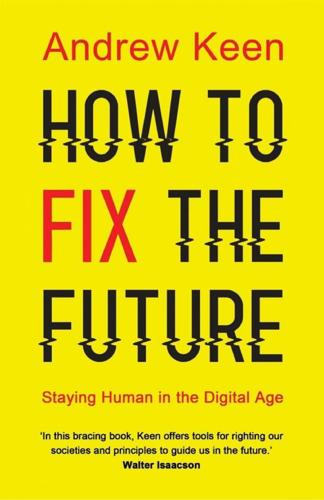
How to Fix the Future: Staying Human in the Digital Age
by
Andrew Keen
Published 1 Mar 2018
His third fix also focuses on the importance of the public sphere. As an early investor in Twitter, he is acutely aware of the social media company’s struggle to find a compelling business model as well as its increasingly central role in our culture and in making news. Twitter’s value, he suggests, is more than just economic—particularly in our “post-truth” Trumpian political world, with its infestation of fake news and its nefarious trolls whipping up the online mob.3 So, he says, we should approach prominent media companies like Twitter as if they are public television or radio networks. “It’s important to run Twitter on the same public principles as Harvard University or the Guardian newspaper.
…
It would also make Facebook legally liable for the advertising that appears on its network. So what we see and read on social media, therefore, is what we want to see and read. No wonder everything now seems so inevitable to so many people. This echo chamber effect, the so-called filter bubble,27 has created a hall of mirrors, a “post-truth” media landscape dominated by fake news and other forms of online propaganda. Thus the disturbing success of Trump, Brexit, and the alt-right movement; thus the virulence of Putin’s troll factories, networked ISIS recruiters, and the other mostly anonymous racists, misogynists, and bullies sowing digital hatred and violence.
…
Rather than xenophobia or a desire for historical vengeance, however, Ilves’s hostility to contemporary Russia is rooted in his profound distaste for a new category of government that Putin is pioneering. It’s a twenty-first-century type of dictatorship, he explains, that has grown out of what Ilves dubs the “post-truth” philosophy of French postmodernists like Jacques Derrida and Jean Baudrillard. Orchestrated by Vladislav Surkov—Putin’s personal advisor and, according to the Anglo-Russian writer Peter Pomerantsev, the “hidden author of Putinism”19—it’s a style of government intent on transforming politics into a tightly produced reality television show of innuendo, gossip, and menacing unreality.
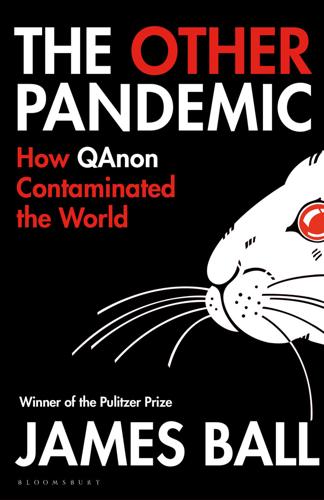
Other Pandemic: How QAnon Contaminated the World
by
James Ball
Published 19 Jul 2023
We need to be directing our attention and our solutions there.’ One of the big things to come of thinking of all of this as a digital ecosystem is quite an uncomfortable pill to swallow – for me. In the early months of the Trump administration (and shortly after the UK Brexit vote) I wrote the book Post-Truth: How Bullshit Conquered the World. In the earlier days of some of those political movements, while being somewhat sceptical of fact-checking alone, I suggested that ideas like critical thinking, media literacy and better information could make a big difference in our media landscape and make it harder for Q-style movements to flourish.
…
W., here McConnell, Mitch, here McDonald’s, here, here malaria, here Mappin, John, here Martin, Dorothy, here, here Marvel movies, here Marxism, here Matrix, The, here, here, here Maxwell, Ghislaine, here, here, here #MeToo, here Media Manipulation Casebook, here Media Matters, here, here memes, here, here, here Merkel, Angela, here MERS, here Metropolitan Police, here Microsoft, here millenials, here Milner, Ryan M., here Minaj, Nicki, here misogyny, here, here, here, here, here, here, here, here Miss World, here MMR jab, here Monck, Adrian, here, here Montemaggi, Lola, here Morrison, Scott, here Mother Jones, here MRI scans, here Mumin, Samiyah, here Musk, Elon, here, here Myanmar military coup, here MyPillow, here, here Nagle, Angela, here National Council of Statewide Interoperability Coordinators, here Navarro, Alyvia, here Nawaz, Maajid, here neo-Nazis, here, here, here, here, here New World Order, here New York Times, here, here, here, here, here Nichols, Tom, here North Korea, here Nostradamus, here nuclear war, here NXIVM, here Obama, Barack, here, here, here, here, here, here O’Connor, Ciar’an, here Occupy Wall Street, here Office of the Inspector General, here online harassment, here Ossebaard, Janet, here Oswald, Lee Harvey, here Ottawa ‘Freedom Convoy’, here Oxycontin, here Page, Larry, here Paracelsus, here Parinya, Champ, here Pelosi, Nancy, here Pence, Mike, here, here, here Pepe the Frog, here, here Perplex City, here Peterson, Jordan, here Petrie-Blanchard, Neely, here Pflugerville High School, here Phillips, Whitney, here, here, here, here Pirbright Institute, here Pizzagate conspiracy, here, here, here, here, here, here, here, here, here Podesta, John, here, here Polaris, here Poole, Christopher, here, here, here pornography, here, here, here child pornography, here revenge porn, here Post-Truth: How Bullshit Conquered the World, here Potter, Roy, here Poway synagogue shooting, here Powell, Sidney, here, here Prim, Jessica, here Project Looking Glass, here Protzman, Michael Brian, here Putin, Vladimir, here, here, here Q, identity of, here Q: Into the Storm, here QAnon oath of allegiance, here, here QAnon supporters, numbers of, here Querdenken 711, here Quilliam, here Quinn, Zoë, here, here racism, here, here, here, here, here, here, here rape ‘jokes’, here rape threats, here, here Reagan, Ronald, here ReAwaken America, here Reddit, here, here, here, here, here QAnon relatives group, here ‘redpilling’, here, here #ReleaseTheKraken, here Republican National Committee, here Republicans, here, here, here, here, here, here, here, here, here, here, here, here, here, here, here, here, here Rich, Seth, here Roberts, John, here Robinson, Nathan J., here Rogan, Joe, here Rojas, Scotty ‘the Kid’, here Romney, Mitt, here Rose, Brian, here Rothschilds, here, here, here, here, here Russia digital warfare and manipulation, here, here election interference, here, here, here Ukraine invasion, here, here Russia Today (RT), here, here Sanders, Bernie, here, here Sandy Hook massacre, here Sardarizadeh, Shayan, here, here Sarkeesian, Anita, here, here SARS, here #SaveTheChildren, here, here, here, here, here, here, here Savile, Jimmy, here Schiff, Adam, here Schwab, Klaus, here, here, here Scott, Sophie, here sexism, here, here, here Shemirami, Kate, here Sky News Australia, here smallpox, here Sony Pictures, here Soros, George, here, here Spelman, Grace, here Spencer, Richard, here Spring, Marianna, here Sputnik, here Stanford Internet Observatory, here Star Wars, here, here Starmer, Keir, here START, here Steele, Mark, here Stewart, Karen, here Stone, Roger, here Stormfront, here Suez Canal, here ‘sunk cost’ principle, here ‘suppressive persons’, here survivorship bias, here SWATting, here, here, here, here Swift, Taylor, here Telegram, here, here, here, here, here, here, here, here, here, here, here Terminator, here Thalidomide, here Thiel, Peter, here Thomas of Monmouth, here Thomas, Clarence, here Time magazine, here Titanic, here Toronto massage parlour killing, here Tortoise Media, here Trudeau, Justin, here Trump, Donald, here, here, here, here, here, here, here, here, here, here, here, here, here, here, here, here, here, here, here, here, here, here, here and Biden inauguration, here, here, here and ‘burner phones’, here and Capitol Hill riot, here and child abuse conspiracy, here, here and continuing conspiracy theories, here, here, here, here, here and Covid-19 pandemic, here, here and QAnon influence, here, here and Ukraine invasion, here ‘Trump Patriots Group’, here Truss, Liz, here Turnbull, Malcolm, here, here Twisted Sister, here Twitter, here, here, here, here, here, here, here, here, here, here, here, here, here, here, here, here, here, here, here, here, here UK Scientific Group for Emergencies, here Ukraine invasion, here, here US Cybersecurity and Infrastructure Security Agency, here US Defense Intelligence Agency, here US Department of Energy, here, here, here US Department of Justice, here, here, here US National Human Trafficking Hotline, here V for Vendetta, here Vatican, here, here VICE News, here, here, here, here View, Travis, here Viganò, Archbishop Carlo Maria, here viruses, here vitamin supplements, here, here Wakefield, Andrew, here Wald, Abraham, here Wall Street Journal, here, here Ward, Laura, here Ware, Bryan, here Warner, Anthony Quinn, here Washington Post, here, here Watkins, Jim and Ron, here, here, here, here, here, here, here, here, here Wayfair, here, here Weiner, Anthony, here, here Weinstein, Harvey, here Welch, Edgar Maddison, here Wells, H.
…
Lin, here Woolf, Nicky, here, here, here World Economic Forum (WEF), here, here, here, here, here World Health Organization, here, here, here World of Warcraft, here World Wide Rally for Freedom, here World Wide Web, here, here Wright, Matthew, here Wu, Brianna, here Wuhan Institute of Virology, here, here Xi Jinping, here Yiannopoulos, Milo, here, here YouTube, here, here, here, here, here, here, here, here, here, here, here, here, here, here, here, here, here, here, here Zignal Labs, here Zuckerberg, Mark, here About the Author James Ball is a Fellow at the Centre for the Analysis of Social Media, Demos and the author of multiple books, including Post-Truth and The System. He has written for the Bureau of Investigative Journalism, BuzzFeed, the Guardian and the Washington Post and his work has won the Pulitzer Prize for Public Service, the Scripps Howard Prize and the British Journalism Award for investigative reporting, among others. He lives in London.
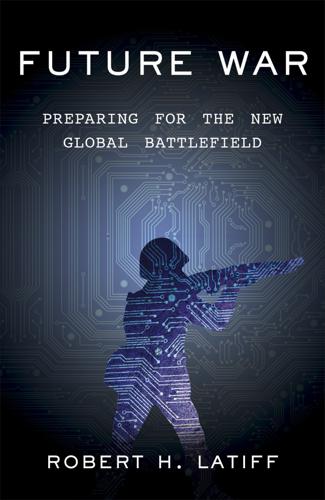
Future War: Preparing for the New Global Battlefield
by
Robert H. Latiff
Published 25 Sep 2017
Cable news made it possible to tailor news for different interest groups. The Internet makes it possible for individuals to converge on an idea and amplify one another’s beliefs, drowning out any contrary views. We have now entered what some refer to as the “post-truth” era, characterized by the repeated assertion of talking points to which factual rebuttals are ignored. In the post-truth era, facts are irrelevant. As a strategy, it works because it allows people to dispense with critical thinking as their beliefs are constantly reinforced by others with similar views. Russian media official Dmitry Kiselyov noted that “the age of neutral journalism has passed.”
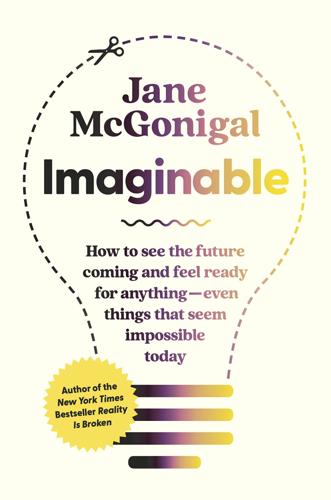
Imaginable: How to See the Future Coming and Feel Ready for Anything―Even Things That Seem Impossible Today
by
Jane McGonigal
Published 22 Mar 2022
Anti-mask rallies and lockdown protests were largely organized by conservative political groups in the US, Canada, Australia, the United Kingdom, Italy, Spain, and Germany. Conspiracy theories and misinformation about the pandemic were also more likely to spread in countries with high political polarization, researchers found. This is a result of the “post-truth” attitudes that commonly emerge from extreme political divisions. For an increasing number of people, allegiance to a political party or ideology determines what they believe to be true—rather than shared facts, evidence, or data. Early on in the pandemic, this led to harmful beliefs about whether COVID-19 was a “hoax” or no deadlier than the flu.
…
One local symptom of this extreme partisan divide: by mid-2021 in the United States, all twenty of the states with the highest vaccination rates were Democratic-leaning states, while nineteen of the twenty states with the lowest vaccination rates were Republican-leaning states.30 Collective action during a crisis is extremely difficult in a polarized, “post-truth” society. If we can’t collectively agree on which actions are needed, we can’t act on them together. And appeals to the “common good” are considerably less persuasive when people feel they have nothing in common with anyone who supports a different political party. Perhaps the most curious symptom of this preexisting condition is this: in thirteen of thirteen countries surveyed by the Pew Research Center, people who identified as supporters of the governing party were significantly more likely to say their country had “done a good job” handling COVID-19, while people who supported a different political party were more likely to say their country had “done a poor job.”31 These beliefs, researchers showed, had no correlation to actual case counts, hospitalizations, or death rates.
…
Perhaps the most curious symptom of this preexisting condition is this: in thirteen of thirteen countries surveyed by the Pew Research Center, people who identified as supporters of the governing party were significantly more likely to say their country had “done a good job” handling COVID-19, while people who supported a different political party were more likely to say their country had “done a poor job.”31 These beliefs, researchers showed, had no correlation to actual case counts, hospitalizations, or death rates. And they had no relationship to the severity or style of measures actually taken. This partisan gap was greatest in the US, but double-digit gaps also appeared in France, Spain, the UK, Japan, Italy, the Netherlands, Canada, Sweden, Germany, and Belgium. With such extreme post-truth polarization, how on earth will we achieve any kind of collective learning? How will we get better at fighting pandemics or any other global crises in the future if what we believe works to solve a problem is based primarily on whether we voted for the governing party—not on whether the solution actually works?
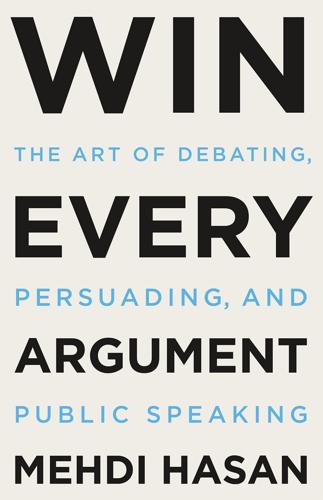
Win Every Argument: The Art of Debating, Persuading, and Public Speaking
by
Mehdi Hasan
Published 27 Feb 2023
Rich, Truth Decay: An Initial Exploration of the Diminishing Role of Facts and Analysis in American Public Life (Santa Monica, CA: RAND Corporation, 2018), https://www.rand.org/pubs/research_reports/RR2314.html. word of the year: Katy Steinmetz, “Oxford’s Word of the Year for 2016 Is ‘Post-Truth,’” Time, November 15, 2016, https://time.com/4572592/oxford-word-of-the-year-2016-post-truth/. “at lightning speed”: Michiko Kakutani, “The Death of Truth: How We Gave Up on Facts and Ended Up with Trump,” Guardian, July 14, 2018, https://www.theguardian.com/books/2018/jul/14/the-death-of-truth-how-we-gave-up-on-facts-and-ended-up-with-trump.
…
In recent years, we have witnessed a full-scale and very global assault on truth, on reason, on reality itself. Back in 2018, the RAND Corporation coined the term Truth Decay to refer to what it called the “diminishing role of facts and analysis in American public life.” Two years earlier, the phrase post-truth was the Oxford English Dictionary’s word of the year, defined as “relating to or denoting circumstances in which objective facts are less influential in shaping public opinion than appeals to emotion and personal belief.” We live in a world, wrote literary critic Michiko Kakutani, author of the 2018 bestseller The Death of Truth, “in which fake news and lies are pumped out in industrial volume by Russian troll factories, emitted in an endless stream from the mouth and Twitter feed of the president of the United States, and sent flying across the world through social media accounts at lightning speed.”
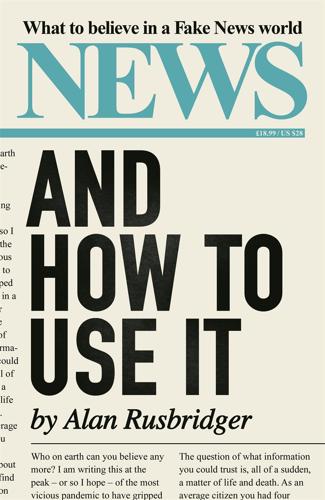
News and How to Use It: What to Believe in a Fake News World
by
Alan Rusbridger
Published 26 Nov 2020
A scientific consensus is equated with ‘groupthink’. A leading columnist defended his opinions even when they were shown to be false. Booker carried ‘an air’ of authority. Readers believed they were ‘getting a glimpse of the reality’. Societies need contrarians and the awkward squad. It’s not a bad thing to question a consensus. But a ‘post-truth’ media – one in which people who don’t know what they’re talking about are, for decades, given privileged platforms to denigrate people who do – is highly problematic. Journalism positions itself as a safe harbour in a world of information chaos, a defence against fake news. It is hard to reconcile this self-image with the lionising of a figure who regularly peddled fakery and ignorance.
…
Fairyington continued: ‘To sustain rapidfire publishing, it was more effective to entrust designated checkers, as opposed to editors and writers, with sussing out mistakes. Steele said: “If I wanted the writer and editor to move quickly onto the next story, it was a much more efficient system to rely on checkers.”’ It was, wrote Fairyington, ‘perhaps, the irony of all ironies: in the age of post-truth and alternative facts, America’s second-best-selling gossip magazine [had] made accuracy a top priority’. Fairyington queries whether dumping the fact-police at the moment of the greatest crisis in trust about journalism makes sense: ‘It’s a bad time in history to skimp on fact-checking – and not just because we have a president who will milk every opportunity to disparage the press as “fake news”.
…
The Washington Post calculated that President Donald Trump made more than 13,000 ‘false or misleading’ claims in his first three years in office. British prime minister Boris Johnson was fired from his first job as a reporter for making up a quote, became notorious for his fake news coverage from Brussels, which became known as Euromyths (SEE: BREXIT), and was fired from the cabinet for lying about an affair. In the current climate of post-truth and alternative facts, the taboo of branding a public figure a liar has been broken by many mainstream media outlets, but most editors are still very reluctant to use the ‘L’ word. Was it an intentional falsehood – the definition of a lie – or was it a genuine error? Who are journalists to know or to judge?
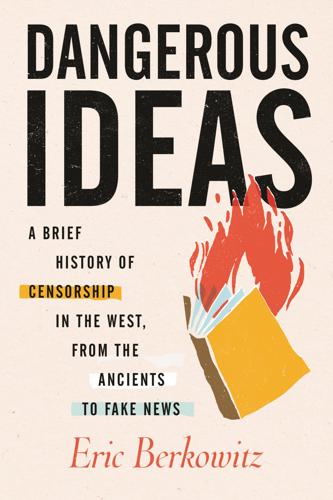
Dangerous Ideas: A Brief History of Censorship in the West, From the Ancients to Fake News
by
Eric Berkowitz
Published 3 May 2021
Such a state demands “the continuous alteration of the past” and “in the long run . . . a disbelief in the very existence of objective truth.”14 In light of the mass of disinformation that plagued the 2016 US presidential election and the UK’s Brexit referendum that year, “post-truth” became the Oxford Dictionaries’ “word of the year.” “We’ve Entered a Post-Truth World—There’s No Going Back Now,” read the headline of Matthew Norman’s November 8, 2016, column in The Independent. That may recently have become so in the democratic West, but Orwell’s dark assessment has long been the case in postwar authoritarian states.
…
See censorship Political Register (Cobbett), 124 Pol Pot, 3 Pontecorvo, Gillo, 204 Pool, Ithiel de Sola, 220–21 Popper, Karl, 240 Popper, William, 60 pornography, 9–10, 17, 141–46, 149–50, 161, 191. See also obscenity suppression; sex; women Portugal, 165, 204 Portuguese revolution (1910), 165 Post, Robert, 8 postal censorship, 6, 153–54, 155, 168, 191. See also censorship post-truth, as term, 203 Potter, David, 33 Power, Samantha, 199–200 press censorship, 134–41, 206–7, 211–12, 216–18. See also censorship; freedom of the press; online speech “The Prevention of Literature” (Orwell), 12–13 Primavera (Botticelli), 63 printing press, 68 Prodigy (company), 226 prostitution, 51–52, 64 Protagoras, 24–25, 131 Protestant Reformation, 70, 71–72, 74 Proud Boys, 248 Proust, Marcel, 187 Prussia, 135, 165 Prynne, William, 82 Public Advertiser (publication), 93 Public Citizen (organization), 249–50 Publick Occurrences both Foreign and Domestic (publication), 87 Purdue University, 246 Puritan Revolution, 84 Pushkin, Alexander, 123 Pynchon, William, 87 Qin Shi Huang, 1–3, 8, 9 Quakers, 87–88 Queen of the Night (film), 164 Queen v.

Human Frontiers: The Future of Big Ideas in an Age of Small Thinking
by
Michael Bhaskar
Published 2 Nov 2021
I want simply to note that the intellectual ferment stews in these problems; that there is no sign of this letting up; and that it prioritises forms of discussion that close down possibilities for big and original ideas. It's also not so much each individual debate that is worrying but the wider force: the spectre of a post-truth world where antiintellectualism and in-group conformity triumphs. This has a long history of course, but is given a second bite of the cherry in a world where freedom of thought had supposedly won. Campus culture or social media spats are the thin end of the wedge. A return, politically and culturally, to global nationalism and nativism turns vast populations inwards and backwards.
…
It's founded on institutional erosion: where nominally free places of enquiry, like think tanks, become corporate-funded and ideologically driven attack dogs, or where museums and art galleries self-censor in the race for sponsorship. Perhaps it is also founded on some as yet unquantified mental erosion: the constant busyness and distraction of our blinking social media notifications, chipping second by second at our capacity for deep thought. This is the post-truth age, one of ‘alternative facts’, tribal loyalties, quick bucks and information warfare. In the words of another political scientist, ‘feeling took over the world’, whether that's distrust of experts or faith in the nation above all.93 It is an age seeing a turn towards atavism, the rise of an ‘identity-protective cognition’ where people's ideas are based on who they are, the erosion of reasonable discussion – even, in some places, of reason.
…
Rogers 332 Homo omnis (Homni) 300 Honjo, Tasuko 58 Hooke, Robert 333 Horgan, John 118, 168 Hossenfelder, Sabine 121–2 Howard Hughes Medical Institute 322 Howes, Anton 24, 172 hubris 122 Huebner, Jonathan 77–9, 81, 86, 91, 94, 97 Hugo, Victor 27 human frontier 7–19, 27, 40–1, 147–8, 156, 158, 249, 277–8, 336, 342–3 and artificial intelligence 250 diminishing returns of the 98 getting stuck at the 45 moral 132, 138 putting to rest 42 and science 123, 124 slowing down at the 14, 86–7, 131 and women 269 hydrogen 145 Hypatia of Alexandria 304 IBM 33, 184, 240, 265, 296, 312 Idea Paradox 178–9, 187, 191, 217, 226, 250, 254, 283–4, 301, 312, 342 ideas ‘0-I’ ideas 31 and economic growth 88, 89–92 nature of 17–18 protection 89 and research and development 90–1 slowdown 90–1 spread of 89–90 world-changing 5–6 see also big ideas illiteracy 277 imagination 16, 236 immunotherapy 57–61 income global 278 median 95 incrementalism 34, 71, 279 India 44, 71, 213, 264–8, 275, 277, 279–80, 284, 294–5, 308, 313, 326–8 individualism 282 Industrial Enlightenment 27 Industrial Revolution 242–3, 252–3, 295, 301 First (IIR) 79–81, 253, 259, 289, 306, 325 Fourth (4IR) 82, 86, 253–4 Second (2IR) 79–80, 81, 83, 84, 86, 104, 253, 289 Third (3IR) 81–2, 83–4, 86, 92, 253–4 inequality 251 infant mortality rate 10, 54 influence 28, 32–3 Initial Public Offerings (IPOs) 95 Inklings 124, 295 innovation 16, 18, 25, 31, 96, 98, 161, 183–5, 214, 274, 286, 288, 296–7, 298, 339 age of 5 breakthrough 32–3 curve of 77–9 disruptive 34 epochal 31 and human capital 277 and industrial revolution 84 and military technology 316–17 normal rates of 177–8 normalisation of 172 parasitic 194 radical 95 risky nature 335 scale 83 slowdown 83, 85 society's attitude to 17, 18 Innovation Illusion 13 institutional revolution 286–301, 309–10, 328–32, 337–8 Intel 92, 253, 272 intellectual, the, death of 110 intellectual property (IP) 89, 195–6, 251, 331 intelligence 247, 299 collective 339 ‘intelligence explosion’ 238 limits to 166–79 interconnectedness 274, 299–300 interest rates 95 International Exhibition of Modern Art, The 103 International Mathematics Olympiad 276 International Space Station 70 Internet 85, 128–9, 183, 185, 196, 246–7, 253–4, 265–6, 272, 274, 297, 300, 315, 329 invention 11, 15, 16, 156–8, 274, 286, 288, 339 and Bell Labs 180–4 and cities 270–2 industrial 24–5 macro- 31, 81 micro- 31 and military technology 316–17 and patents 97 IP see intellectual property IPOs see Initial Public Offerings iron oxide 89 Islam 133, 340 Islamic caliphate 259, 260 Islamic State 305 ITER 146 Jackson, Andrew 67 Jainism 108 Japan 264, 266, 268, 279, 296, 305 Jefferson, Thomas 211 Jenner, Edward 47 Jesus 24, 216, 303 jet engines 69–70 jetpacks 71, 72 Jiankui, He 255–7, 280, 285 job automation 228 job destruction 96 Jobs, Steve 159, 186 Jones, Benjamin F. 156, 158–9, 160–1 Jones, Charles I. 90–1, 93, 94, 152 joy 170–1 Joyce, James 103, 166 Jung, Carl 104 Justinian 304 Kahn, Bob 253 Kahn, Herman 129 The Year 2000 9, 12, 13 Kaku, Michio 337 Kardashev, Nikolai 337 Kardashev Scale 337–43 Kauffmann, Stuart 203 Kay, John 24–5 Kelly, Kevin 300 Kelly, Mervin 182, 206 Kepler, Johannes 36, 229 Khmer Rouge 305 Kim Il-Sung 114 Klimt, Gustav 188 Knossos 153 knowledge ‘burden of knowledge’ effect 154–65, 175, 178, 235, 338 human frontier of 7–19 Koch, Robert 38 Kodak 184 Koestler, Arthur 36, 39 Kokoschka, Oskar 188 Korea 138, 266, 268, 305 see also North Korea; South Korea Kremer, Michael 274 Kristeva, Julia 111 Kuhn, Thomas 29, 30, 159 Kurzweil, Ray 79 Kuznets, Simon 31 labour 88 Lakatos, Imre 121 Lamarck, Jean-Baptiste 35, 164 Langley, Samuel Pierpont 66 Laozi 108 Large Hadron Collider (LHC) 118, 233, 239 Latin America 266–7, 275, 295 Latour, Bruno 111 Lavoisier, Antoine 29, 34 Lawrence Berkeley National Laboratory 234–5, 296 Lawrence, D.H. 103 lawyers 205–6 Lazarsfeld, Paul 189 Le Figaro (newspaper) 64 Le Mans 64 Le sacre du printemps (The Rite of Spring) 99, 100–2, 104 Leeuwenhoek, Antonie van 231 left wing politics 113 Leibniz, Gottfried Wilhelm 25 Lem, Stanisław 44–5 Lenin, Vladimir Ilyich 188 lenses 231 Leonardo da Vinci 155 Lessing, Doris 152 Lewis, C.S. 124 LHC see Large Hadron Collider Li, Danielle 317–18 liberal democracy 111–12 life expectancy 52–5, 57, 93–4, 169 lift 65 light 75–7 Lilienthal, Otto 62, 335 Lister, Joseph 332 literature 103, 108, 124 Locke, John 25, 137, 138 Lockheed Martin 184, 296 London 133 loonshots 31–2 Loos, Adolf 103, 188 Lorenz, Edward 163 low-hanging fruit paradox 149–54, 167, 178 Lucretius 35, 155 Lulu and Nana (genetically edited twins) 255–7, 264 Luther, Martin 230 Lyell, Charles 34, 35 Lynn, Vera 105 M-theory 120 Mach, Ernst 188 machine learning (ML) 225–7, 233–4, 237, 243, 338 Madonna 105 magnetism 74–7 Mahler, Gustav 188 mail order 84–5 Malevich, Kazimir 103 Malik, Charles 134–6, 140 Malthus, Thomas 35 managerialism 204–5, 206–7 Mandelbrot, Benoit 163 Manhattan Project 119, 144–5, 148, 289, 296, 315, 317–18 Manutius, Aldus 253–4 Mao Zedong 328 Maoism 114 Marcellus 4 Marconi, Guglielemo 216, 289 Margulis, Lynn 203 Mars 218, 296, 318, 338, 341 Marx, Karl 36, 329 Massachusetts Institute of Technology (MIT) 88, 146, 184–5, 296, 314, 316, 327 see also MIT Technology Review materials science 234–5 Maxwell, James Clerk 74–7, 79, 80, 166 Demon (thought experiment) 76 Treatise on Electricity and Magnetism 74–7 Mayan civilisation 43 Mazzucato, Mariana 185, 194, 318 McCloskey, Deirdre Nansen 24 McCormick, Cyrus 11 McKeown, Thomas 53 McKinsey 34, 246 medicine 45, 46–62, 70–3, 93–4, 98, 124–6, 217–18, 338 see also drugs mega-authored papers 157 Meister, Joseph 48 Mendeleev, Dmitri 149 Menlo Park lab 286–7, 293 Merton, Robert 328 Mesopotamia 25, 291 Mesoudi, Alex 164 micro-organisms 49–51 microscopes 49, 232 Microsoft 33, 265 Middle East 138 migration 272–3 military technology 3–4 Minecraft 86 Minoans 43, 153 Minsky, Marvin 227 Mises, Ludwig von 189 MIT see Massachusetts Institute of Technology MIT Technology Review 255 Mitchell, Joni 104 modern art 103 modernity 11, 80, 81, 83–4, 85 Mokyr, Joel 25, 31, 44, 68, 81 molecule libraries 56 Mont Pelerin Society 329 Montagu, Lady Mary Wortley 335 Montgolfier brothers 65 Moon missions 70, 71, 218, 263, 315, 316 moonshots 8, 59, 136, 214, 317 Moore, Gordon 92 Moore's Law 55, 84, 92, 93, 97, 240 Morgan, J.P. 287, 288 Morris, Ian 260–1, 306 Morse, Samuel 289 motor vehicles 68–71, 95, 107–8, 219, 289 Motorwagen 68 Mozart, Wolfgang Amadeus 159 multiculturalism 268 multiverse 170, 342 music 99–108, 115, 188 Musil, Robert 188 Musk, Elon 71, 247 Mussolini, Benito 114 mysterians 166, 249 nanotechnology 242, 243, 245, 341 Napoleon Bonaparte 49 Napoleon III 50, 51 narratives, breakdown of grand 115 National Aeronautics and Space Administration (NASA) 71–2, 233, 315–16, 319 National Health Service (NHS) 56, 57 National Institute of Health (NIH) 60, 120, 185–6, 247, 319, 322 nationalism 213 natural selection 35–6, 37, 109, 118, 244 Nature magazine 12, 121, 157, 211, 220, 229 Nazis 48, 132, 190 Negroponte, Nicholas 13 neo-Enlightenment 98 Netherlands 24, 231, 283 neural networks, deep learning 225, 227, 233 Neurath, Otto 189 neuroscience 247 new molecular entities (NMEs) 93 ‘new normals’ 32 New Scientist (magazine) 122 new technology 95 disruptive 96 New York 103, 134 Newton, Isaac 25, 29, 34, 37, 74–5, 155, 159, 232, 341 Ng, Andrew 262 NHS see National Health Service Nielsen, Michael 117 Nigeria 267, 279 NIH see National Institute of Health Nijinsky, Vaslav 99–100 Nixon, Richard 59 NMEs see new molecular entities noble gases 149 Nokia 183 Nordhaus, William 186 norms, ‘new’ 32 North Korea 305 Novacene 238 Novartis 61 nuclear fission 144, 145–6, 148 nuclear fusion 145–8, 234, 317, 341 nuclear power 85, 119, 143–8, 220, 221, 290 nuclear weapons 45, 143, 144, 311 Oak Ridge laboratory 143, 147 Obama, Barack 59 Obninsk 144 Odlyzko, Andrew 184 Office of Scientific Research and Development (OSRD) 316–17 Ogburn, William 39 oil 80 oligopolies 96 optical devices 231–2 orbits, elliptical 36 organisations breakthrough 294–9 see also companies originality 24, 28, 31–3, 152, 177, 283 lack of 108 Ørsted, Hans Christian 74–5 OSRD see Office of Scientific Research and Development Ottomans 277, 308 Oxford University 123–6, 127, 296 Packalen, Mikko 201, 202, 321 Page, Larry 326 Paine, Thomas 137 painting 176–7 panpsychism 340 paper 230, 259 paradigm rigidity 160 paradigm shifts 29, 33, 105, 109, 130, 164, 222, 250, 339 Parfit, Derek 203 Paris 99–103, 110, 132, 135, 205 particle physics 117–18, 119, 120–1, 122 partisanship 209–10 Pasteur, Louis 46–53, 57, 60–1, 71, 77, 79, 139, 232–3, 296, 332, 338 pasteurisation 50, 51 patents 64, 83, 156–8, 194–6, 271–2, 292–3, 297 new classes 97 patronage 322 Paul, St 303 Pauli, Wolfgang 159 Pauling, Linus 118, 323–4 PCR see polymerase chain reaction peer learning 326–7 peer review 320–1 penicillin 38, 52, 125 Penrose, Roger 124 Pentagon, Naval Air War Center 77 pessimism, rational 123–31, 150 pet food 147 Pfizer 61 pharmaceutical industry 31, 55–7, 60, 70 see also drugs Philo of Byzantium 4–5 philosophy 103–4, 111–12, 115, 121, 124, 339 Photoshop 162 physics 74–7, 79, 80, 116–22, 124, 131, 140, 159–62, 166, 239, 242–3, 332, 341 Picasso, Pablo 36, 101, 152 Pierce, John R. 182 Pitcairn Island 42–3 Planck, Max 104, 160, 296 planets, elliptical orbit 36 plasma 145, 146 Plato 3, 108, 169, 291, 304 Plotinus 303 Plutarch 4 polio 53 political policy 114–15 politics 111–15, 208–13 polymerase chain reaction (PCR) 202 Popper, Karl 189 population growth 78, 79 exponential 11 populism 208, 211, 214, 280–1, 307 post-scarcity society 340 post-truth world 213, 215 Pot, Pol 114 Pound, Ezra 103 present 13 Presley, Elvis 36, 152 ‘priming’ 4 Princeton 180, 296 printing press 36, 230, 253–4 problems, catastrophic 42–4 production lines 104 productivity growth 82 profit 186 progress acceleration 8 linear 29 mirage of 5 nature of 13 protein-folding problem 223–6, 228–9 Proust, Marcel 103 Prussia 50 Ptolemaic astronomical system 30 Ptolemy 303 public bodies 205 public health policy 53 PubMed 28, 116 Punic Wars, Second 3 Pythagoras 304 PYTHIA 237 quantum computing 240–1, 263, 296, 312 quantum physics 159, 166, 341 rabies 48, 51 radiation 57 radioactive elements 149 railways 67, 69 Ratcliffe, Peter 124 rational pessimism 123–31, 150 Ravel, Maurice 101 RCA 33, 289 Reagan, Ronald 211 Rees, Martin 167–8 Reformation 230, 233, 328 refugees 220 regulatory burden 205–6 Relativity Theory, General 104, 117 religion 108, 214, 303–4, 340 Rembrandt 236 Renaissance 130, 156, 177, 230, 233, 252, 254 reproducibility crisis 121 research and development 128, 180–7, 214, 252, 286–90, 312, 339–40 agricultural 92–3 autonomous vehicles 219 cancer 59–61 Chinese 262–3 cleantech 195 drugs 55–7, 61, 92–4, 119, 161, 172–3, 217–18, 234, 245, 315, 338 and financialism 192 funding 202–3, 314–24 global spend 128 government funding 314–19 and ideas 90–1 and India 265, 266 military 314–17, 319 multipolar 258 nuclear 147 productivity 91–5, 97–8, 307 and scaling up 279 specialisation 156, 157–8 and tax credits 331 and training 158–60 and transportation 70, 72 and universities 200–4 revolution, diminishing nature 74–98 Ridley, Matt 281, 325 right wing politics 113, 211 rights 132–40 risk 193, 251, 313, 335–6 risk society 329 risk-aversion 210–11 risk-minimisation strategies 330 roads 66, 67 Rocket engine 26 Roerich, Nicholas 100 Rome 3–4, 43 fall of 151, 187, 190, 303–6 Romer, Paul 88–91, 94 Roosevelt, Eleanor 132, 133–6, 139–40 Rose, Jacqueline 111 Rosetta Stone 155 Rotten, Johnny 104 Roux, Emile 48 Royal Institution 75, 154, 292 Royal Society 25, 75, 154, 292, 326 Royal Society of Arts, Manufactures and Commerce 25, 292 Russia 11, 71, 111, 150, 213, 279 see also Soviet Union Russian Chemical Society 149 Rutherford, Ernest 119, 140 S-curve model 32, 33, 35 Sagan, Carl 306, 337 Salvarsan 52 sanitation 53–4 Sarewitz, Dan 175 Sartre, Jean-Paul 110 satellites 9, 70, 153, 181–2, 272, 315–16 saturation, at the limit 166–79 Saturn 75–6 Saussure, Ferdinand de 109 Scaling Revolution 232 scaling up 255–85, 293–5, 298–9, 301–2, 308, 314–15, 317, 337–8 Schiele, Egon 188 Schliemann, Heinrich 153 Schmidt, Eric 262 Schnitzler, Arthur 188 Schoenberg, Arnold 103, 104, 188 Schrödinger, Erwin 124, 237, 332 Schumpeter, Joseph 189 science 104, 115–25, 131, 157, 159–60, 201–2, 276, 332–3 limits of 168 see also biology, chemistry; physics Science (journal) 118, 164, 175, 229, 257 Science Education Initiative (SEI) 327 Scientific American (magazine) 122 Scientific Revolution 29–30, 123, 130, 229–33, 252–3, 291 Sears Roebuck 84–5 Second World War 138–9, 143–4, 148, 296, 314, 316–17, 319 Sedol, Lee 226–7 seed drills 25 SEI see Science Education Initiative semiconductors 180–1, 245, 338 Semmelweis, Ignaz 216 sensory perception 167 sewing machines 11, 33 Shakespeare, William 169 Shannon, Claude 182, 184 shareholder returns 193, 194, 217 Shaw, D.
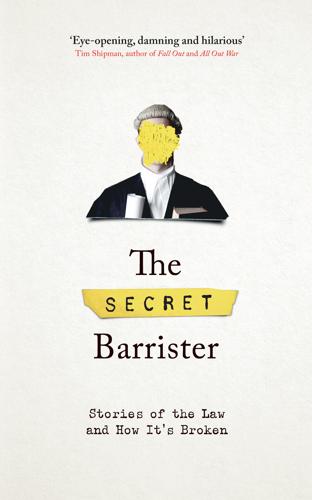
The Secret Barrister: Stories of the Law and How It's Broken
by
Secret Barrister
Published 1 Jul 2018
The MoJ of course knows this. But it still likes to include VAT in the headline ‘expenditure’ figures to bolster its tutting at how much of YOUR money is pocketed by those vile CRIMINALS. The ‘most expensive legal aid system’ memes are demonstrably, palpably false. They are post-truths, engineered and spun before post-truth became fashionable. But let’s say for argument’s sake that they were right. Does that of itself establish the MoJ’s case? Is the ‘fact’ that we spend more on legal aid than anyone else a justification for reducing it? If this were true, is this not something we should celebrate?
…
If, for example, there’s a giant drugs bust that looks likely to lead to a lucrative trial, the fixers and the Keres solicitors will be sniffing around the pubs, courts and prisons for an opportunity to lure the defendants away from their instructed solicitors and towards the brilliant wolfish smile of Mr Keres. The means of persuasion are often material – new trainers, contraband cigs in prison, a nice cash deposit in the girlfriend’s bank account – but just as frequently fall back on the simple device of false advertising. Keres & Co. were peddling post-truth back before it was popular. We guarantee to get you a not guilty, they ooze. We’ll get you the best barrister – we have all the best barristers, they spin like a poor Donald Trump parody. Sometimes they will indeed instruct very good barristers – the individuals in my chambers whose returns I was covering were excellent advocates.
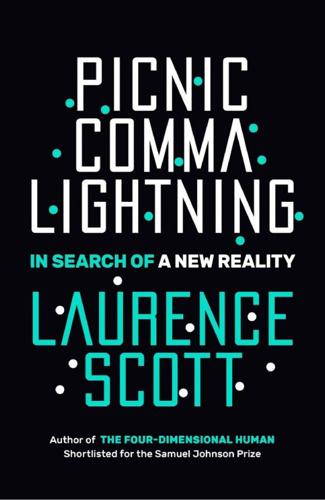
Picnic Comma Lightning: In Search of a New Reality
by
Laurence Scott
Published 11 Jul 2018
Whether accidental or intended, bathos has this balloon-bursting effect, and the more that reactionary forces fixate on historical symbols of superiority, the sharper bathos will become as a strategy of deflation. Cultivating our natural taste for bathos will be essential if we are really to continue down our current post-truth, alternatively factual road. American comedians quickly recognised how difficult it is to satirise such an unreal political landscape. Satire relies to a huge degree on irony, where there is an affecting tension between what is said and what is meant. But how do you ironise a political climate in which what is said shamelessly bears so little resemblance to what is meant?
…
He dismissed this report as ‘fake news’, only for the Danish reporter to show him clips of him making these remarks. He then denied that he had just called the reporter’s claim fake news: ‘I didn’t use the words today. I don’t think I did.’ We’ve begun to share these tears in the fabric of normalcy, reason and accountability with genuine, if macabre, relish. But as fake news, post-truth and alternative facts become the corrosive hashtags of the political era, we are also entering into an opposite paradigm where hard, cold facts are given central importance. For as much as this is an age of incredulity and widening gulfs between what is said and what is meant, it is also an age of what could be called hyper-empiricism.
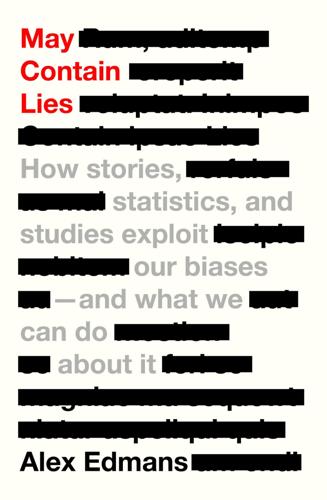
May Contain Lies: How Stories, Statistics, and Studies Exploit Our Biases—And What We Can Do About It
by
Alex Edmans
Published 13 May 2024
And it’s not just the TED/TEDx stage: anyone with a newspaper column, social media platform, or YouTube channel can broadcast what they want and claim there’s data to support it. So I spoke about how discerning we must be with evidence – how our biases can lead us to fall for something false or reject something real, and how we should judge a study by its carefulness, not its claims. I was grateful when it was elevated to a mainstage TED talk, ‘What to trust in a post-truth world’, because I hoped it might move the needle, even slightly, from fiction to fact. Yet misinformation has arguably become worse. Public discourse is increasingly polarized, with opinions formed on ideology, not evidence. The most pressing issues of our time, such as climate change, inequality and global health, are steeped in falsehoods.
…
Now one half of Americans obtain news ‘often’ or ‘sometimes’ from social media,13 where false stories spread further, faster and deeper than the truth because they’re more attention-grabbing.14 And biases exist even among people who’ve seen the talk and should know better. Some companies invited me to present an extended version to their employees, supposedly to promote critical thinking, only to strike out a couple of ‘inconvenient truths’ from the slide deck – because they didn’t want them to be true. In today’s post-truth world, it’s more important than ever to separate myth from reality. This book is a practical guide to help you think smarter, sharper and more critically – on topics such as how to run a company and invest your money, how to improve your health and develop good habits, how to feed your child and educate a nation’s children, what drives global warming or the spread of coronavirus, and which policies lawmakers should pass and voters should support.
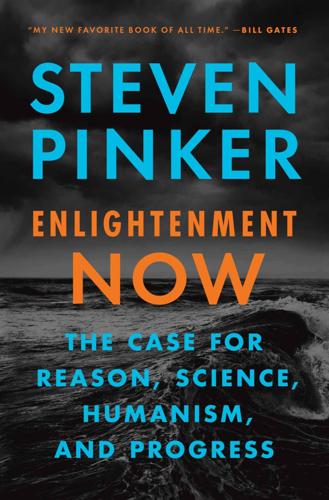
Enlightenment Now: The Case for Reason, Science, Humanism, and Progress
by
Steven Pinker
Published 13 Feb 2018
The human brain is capable of reason, given the right circumstances; the problem is to identify those circumstances and put them more firmly in place. For the same reason, editorialists should retire the new cliché that we are in a “post-truth era” unless they can keep up a tone of scathing irony. The term is corrosive, because it implies that we should resign ourselves to propaganda and lies and just fight back with more of our own. We are not in a post-truth era. Mendacity, truth-shading, conspiracy theories, extraordinary popular delusions, and the madness of crowds are as old as our species, but so is the conviction that some ideas are right and others are wrong.75 The same decade that has seen the rise of pants-on-fire Trump and his reality-challenged followers has also seen the rise of a new ethic of fact-checking.
…
See also reductionism; scientism postcolonial governments civil war and intercommunal violence of, 164 and democracies, rise of, 200, 201 famine exacerbated by policies of, 78 postmodernism, 351 hatred of science, 397 and malaise of the humanities, 406 Nietzsche as influence on, 446 relativism, 406 Poststructuralism, 446 Post-Traumatic Stress Disorder (PTSD), 281, 282 “post-truth era,” 375 Potomac River, 130 Pound, Ezra, 447 poverty, 79–96 clothing and, 80, 117, 118 conditions of, 79–80, 92–4 and consumption, 116–18, 116 as default state of humankind, 25, 79 definition of, 79 and disposable income, 115–16, 116 economic inequality confused with, 98–9 energy requirements to escape, 141 escape from, 24, 54, 85, 364, 459–60nn16,18,20 escape from, factors contributing to, 90–96, 234 homelessness, 116 pollution and, 130–31, 463n28 retirement and alleviation of, 250–51, 250 social spending to alleviate, 107–110, 115–16 workhouses, 79, 250–51 See also developing countries/world; economic inequality; wealth —EXTREME POVERTY, 87 number of people living in, 88–9, 88 per capita income distribution and, 86–7, 86 percentage of world living in, 87–8, 87 United Nations’ goal for reducing, 89, 460n28 power-law distribution, 46, 162, 290, 292–3 Prados de la Escosura, Leandro, 110, 245, 473n45 prediction, 46, 366–71 Availability heuristic and, 370 Bayesian reasoning and, 369–70 common-sense awareness of, 366 ideology driven as least successful, 368, 371 media and intellectuals unaccountable for, 366–7 prophecy distinguished from, 46 superforecasters, 368–71, 380, 393, 404 wisdom of crowds and, 370 President’s Council on Bioethics, 60 Preston Curve, 95 probabilities of imaginable events, inaccurate estimates, 292 of nuclear war, 312–13 of rare events, 46, 162, 290, 292–3 See also Availability heuristic; prediction productivity, 328 delay in effects of technological change, 330 factors affecting slowdown of, 329 technological sophistication and, 328 progress as apparent historical force, 109, 177–8, 190, 211–13, 215, 220–21 vs.
…
Enlightenment ideals, 5, 10, 29, 32, 333, 334, 341, 447–51 human nature, as part of, 26, 393, 417, 419, 450 political, as source of irrationality, 355–63, 383 See also identity-protective cognition; populism; racism Trump, Donald age rolloff in support for, 341–2, 342 antidemocratic agenda of, 335–6, 337, 374, 449 antiprogress agenda of, 334–7 approval ratings of, 338 attempts to repeal Obamacare, 109, 334 dystopian vision of, xvii, 343 failures of, 109, 337–8, 451 on hackers, 300 and immigration, 97, 336, 339 institutional limits on power of, 337–8 intellectual influences, 343, 447–50, 491n118 Islamophobia and, 219 lies and conspiracy theories of, 336, 358, 375, 376 nuclear weapons and, 320 and Paris climate agreement, 134, 152, 335, 449 prejudice and hate crimes and, 217, 219 and Vladimir Putin, 335, 336 and will to power, 336 See also populism —CAMPAIGN AND ELECTION AS PRESIDENT economic vs. cultural factors in, 339–40 as Electoral College win, 214, 334, 340 Evangelical Christian support, 432–3, 438 intolerant rhetoric of, 215 “Make American Great Again,” 5, 334, 337 media role in, 50, 343, 376, 449 pollster predictions for, 367 popular vote loss of, 338 shrinking demographic base of, 219, 341–2, 342 voter turnout and, 343, 438 truth vs. expressive performance, 359 institutions and norms of, 27, 374, 376, 380 Nietzsche and, 446 as not always halfway between extremes, 365 power of, 27, 338, 379, 383–4 vs. rationalization, 359 science vs. erudition as way to seek, 34, 390 vs. Trump, 336, 376 See also objective measurement; “post-truth era”; reason; relativism Tsarnaev brothers, 303, 306 Tunisia, 203, 442 Tupy, Marian, 52, 141 Turkey, 201, 336, 436, 490n96 Tuskegee syphilis study, 401 Tutsi people, 161 Tversky, Amos, 41, 47, 383, 404 Twenge, Jean, 282, 283 Two Cultures, The (Snow), 33–4, 389.
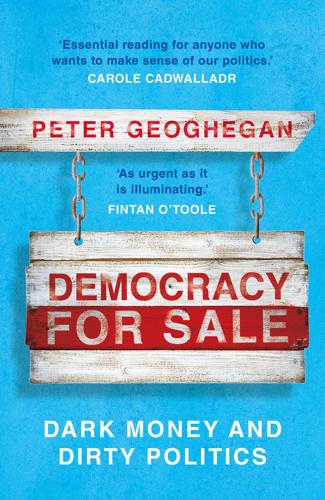
Democracy for Sale: Dark Money and Dirty Politics
by
Peter Geoghegan
Published 2 Jan 2020
Overwhelmed by information, and misinformation, voters are unsure what is real and what is not. Dirty tactics seem to get results. Donald Trump won a famous victory in 2016. A few weeks after the TV debate, the Conservatives had their best election result in 30 years. The election of 2019 was Britain’s “post-truth election”, said Katharine Dommett, a political scientist from the University of Sheffield who acted as a special advisor to the House of Lords on electoral reform. “The Conservatives really pushed the boundaries of what is acceptable, and they did it on digital media.” It isn’t supposed to be like this.
…
The nightly news bulletin and the front page of a broadsheet paper still exist, but they carry much less weight. Fewer and fewer families crowd around their television set each evening to receive a shared view of the world. The decline of once almost monolithic media has had many positive effects. Fresh voices have emerged. The ‘official’ version is far more open to contestation. But the ‘post-truth’ epoch has also been a boon for misinformation and political disruption. Already, digital parties are pointing the way to a new version of politics, supercharged by almost invisible networks of aggressively partisan websites. The digital democracy promised by Five Star and the Brexit Party has, according to sociologist Paolo Gerbaudo, “mostly proven a sham”.72 Behind the digital party’s glittering egalitarian promise sits a tiny leadership cabal.
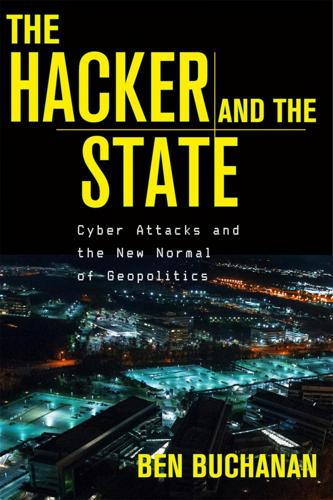
The Hacker and the State: Cyber Attacks and the New Normal of Geopolitics
by
Ben Buchanan
Published 25 Feb 2020
The Escalation of Exposure As 2016 turned to 2017, the United States entered a period of tumult. The Obama administration gave way to the Trump team. Newspapers outdid each other with juicy leaks about Russian election interference, the presidential transition, and other forms of political intrigue. “Fake news” and “post-truth” became household terms; the latter was Oxford English Dictionary’s 2016 word of the year.20 The Shadow Brokers tried to make themselves heard, especially to their target audience at the NSA, over the din. On December 14, 2016, a user with the pseudonym Boceffus Cleetus posted on Twitter and Medium.
…
This original message and others from this period appear to have been taken down, but reposts are visible on the Shadow Brokers’ account on Steemit, a blockchain-based messaging site, which the Shadow Brokers later used for their communications and which is the best compendium of their messages in one place. theshadowbrokers, “Repost: TheShadowBrokers Message#4 - October 2016,” Steemit, October 15, 2016. 18. theshadowbrokers, “Message#5— Trick or Treat?,” Medium, October 30, 2016. 19. theshadowbrokers, “Message#5.” 20. Amy B. Wang, “ ‘Post-Truth’ Named 2016 Word of the Year by Oxford Dictionaries,” Washington Post, November 16, 2016. 21. Boceffus Cleetus, “Are the Shadow Brokers Selling NSA Tools on ZeroNet?,” Medium, December 14, 2016. 22. Joseph Cox, “A Brief Interview with The Shadow Brokers, The Hackers Selling NSA Exploits,” Motherboard, December 15, 2016; “The Shadow Brokers Twitter History.” 23. thegrugq, “The Great Cyber Game: Commentary (3),” Medium, December 16, 2016. 24.
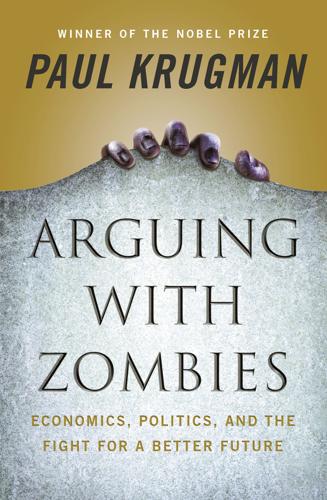
Arguing With Zombies: Economics, Politics, and the Fight for a Better Future
by
Paul Krugman
Published 28 Jan 2020
Partly that’s because the Affordable Care Act, by design, has had almost no effect on those who already had good health insurance: Before the act, a large majority of Americans were already covered by their employers, by Medicare, or by Medicaid, and they have seen no change in their status. At a deeper level, however, what we’re looking at here is the impact of post–truth politics. We live in an era in which politicians and the supposed experts who serve them never feel obliged to acknowledge uncomfortable facts, in which no argument is ever dropped, no matter how overwhelming the evidence that it’s wrong. And the result is that imaginary disasters can overshadow real successes.
…
Ross, 245 personal savings rate, 88 Peterson, Pete, 193 Piketty, Thomas, 219 Capital in the 21st Century, 238 Pimco bond fund, 83, 89 Pizzagate, 375 Poland: Law and Justice Party in, 358 threats to democracy in, 188, 189, 344, 346, 358, 359, 360 white nationalism in, 346 polarization, 5–9, 291, 297–98, 356 policy discussion, absence of, 13 political action, 355–56 political realism, 251–52 politicization: pressures from the right, 3–4 and racism, 4–5, 226, 301, 307, 308–10, 360 roots of, 2–5 PolitiFact, 386 Ponzi scheme, 92–93 population, aging of, 16 population density, 87 population growth, 225, 271, 272 “populism,” use of term, 351–53 Portugal, economy of, 178 “positive” economics, 1 post-truth politics, 61 poverty: and cuts in benefits, 30 of elderly, 23–24 and health care, 47, 66 precious metals, 411 Prescott, Edward, 139 productivity, 283 and income distribution, 268–69, 272, 273 slowdown in, 267, 289 and technology, 289 and wages, 289 professional conservative economists, 149 profit, appearance of, 92–93 progressive expenditure, categories of, 210–11 propagandists, 149 protectionism, 353 prudence, downside of, 104, 106, 107–8, 117 “public good,” use of term, 354–55 public goods, 30 public health, 355 public works, spending on, 116, 133, 143, 205–6, 206 punditry: author’s rules for, 5–9 honesty about dishonesty, 7–8 staying with easy stuff, 6 talking about motives, 8–9 writing in English, 6–7 Putin, Vladimir, 371 racism: and hate-mongering, 54 interracial marriages, 215 and politicization, 4–5, 226, 301, 307, 308–10, 360 Rajan, Raghuram, 136 Rampell, Catherine, 5 Rand, Ayn, Atlas Shrugged, 219 rationality: assumption of, 134, 138, 139, 144–45, 148 investor irrationality, 135 limitations of, 131, 132 Rawls, John, 3 Reagan, Ronald: and economic growth, 262, 275–76 and health care, 45, 53, 322 as icon of conservative purity, 300, 302 and supply-side economics, 271 and taxes, 7, 19, 215, 299 and Voting Rights Act, 300 Reagan administration: and income inequality, 271 and Iran-Contra, 300 and private contractors, 300 “real business cycle” theory, 139 real estate: housing bubble, 82, 83–85, 86–88 land-use restrictions, 87 recessions: causes of, 138–39, 185 central banks’ roles in, 103–4, 124, 133 demand-side view of, 139 desirability of, 144, 147 “double-dip” (1979–1982), 215 effects of, 126–27 fears of, 81–82 and fiscal policy, 140, 141, 215, 275 and government debt, 124, 142 and printing money, 4, 104, 105 and unemployment insurance claims, 106 Reciprocal Trade Agreements Act (1934), 250, 252, 254–55 “Red-Baiting in the 21st Century” (Krugman), 313–14 red ink, fear of, 107, 116 Regan, Trish, 319, 320 regulation, minimal, 315 Reid, Harry, 28, 29 Reinhardt, Uwe, 35 Reinhart, Carmen, 158, 163 Repealing the Job-Killing Health Care Law Act (2011), 59 Republican Party: campaign (2020), 313 center-right delusion of, 305–7 climate denial of, 337, 365 conspiracy theorizing by, 345–46, 365 corruption in, 335–37, 343, 358, 368 dark side of, 334, 336, 368 democracy undermined by, 367–69 double standards of, 208, 209 double talk of, 225–26 economic doctrine of, 229 facts or logic ignored by, 28, 237, 366 “Flimflam Man” of, 194, 195–97, 362 frauds promoted by, 74–75, 224–26 and health care, 65–66, 69, 70, 71–72, 73–75, 76–77, 309, 338 hostility to science, 335, 337 and immigration, 303 IRS defunded by, 350 lying by, 225–26 and movement conservatism, 8, 297–98, 299–301, 302–4, 307, 343, 368 one-party rule sought by, 358–60 paranoid style in, 345–47 and party loyalty, 67, 150–51, 226, 368 policy analysis shunned by, 73–74, 77 power plays by, 359–60, 369 privatization of public assets as goal of, 338 racism of, 226 radicalization of, 189, 298, 309 realities of, 197 state governments controlled by, 65–66, 68, 77 and Supreme Court, 345, 346, 352 tax plans of, 222, 224–26, 236, 309 Trumpism of, 335–37, 343, 345–46, 359–60, 370–72 voter preferences vs., 309 workable ideas lacking in, 69, 74 retirement, economics of, 15, 22, 23–24, 31–32, 362 retirement accounts: private, 17, 19, 22–24 real rate of return on, 23 Return of Depression Economics, The (Krugman), 82 Reynolds, Alan, 273, 274 Ricardo, David, 289 risk: elimination of, 81 in financial innovation, 90–91 reward vs., 135 Rivlin, Alice, 263 Roach, Stephen, 83, 85 Roberts, David, 307 Roberts, Paul Craig, 273, 274, 279 Robin, Corey, 315–16 robot, defined, 288 Rodgers, Cathy McMorris, 60 Rogers, Will, 297 Rogoff, Ken, 158, 163 Romer, Christina, 234, 236 Romer, David, 139 Romney, Mitt, 51–52, 54, 219, 320 Roosevelt, Franklin D.: and balanced budget, 107 on health care, 46 and reciprocal trade act, 247, 250, 252, 254 and Social Security, 25, 26 Roosevelt, Theodore, 239 Roosevelt (FDR) administration, and international trade, 244 rule of law: disdain of, 252, 256, 301, 347 interpretation and enforcement of, 367–68 rules for research, 399–404 dare to be silly, 401–2, 404 listen to the gentiles, 399–400, 404 question the question, 400–401, 404 simplify, simplify, 402–4 Russia, and trade, 256 Ryan, Jack, 381 Ryan, Paul, 28, 203, 219, 363 as flim-flam man, 194, 195–97, 362 and Medicare, 225 and Ryan plan, 193–94, 195–97, 201–2 super PAC of, 225 Saez, Emmanuel, 219, 234–35, 236, 238–39 safety-net programs, 4, 224, 313, 317, 320, 321, 323, 370 Samuelson, Paul, 124, 403, 407, 408, 410 San Diego, housing in, 87 “sand states,” unemployment in, 170 Santorum, Rick, 303 Sawhill, Isabel, 280 Scaife, Richard Mellon, 380 Schultz, Howard, 212, 308, 310 Schumer, Chuck, 93 Schumpeter, Joseph A., 132, 134, 395 Schwartz, Anna, 133 SeaWorld, 352 secular stagnation, 206 Securities and Exchange Commission, 93 segregationists, 346 Seltzer, Marlene, 166 Senate, role of, 368 September 11, 2001, attacks, aftermath of, 13 Sessions, Pete, 59 Shapiro, Ben, 354, 355, 356, 357 Shiller, Robert, 84, 136, 141, 146 Shleifer, Andrei, 146 Sicko (movie), 44–45 silver and gold coins, 411, 412 “silver-loading,” 71 Simple Art of Murder, The (Chandler), 327 Simpson, Alan, 198, 199, 203, 218 Sinema, Kyrsten, 365 “Skewing of America, The” (Krugman), 259–60 “skills gap,” 159, 166–68, 290 Slemrod, Joel, 277 Smith, Adam, 132, 138, 411 Smith, Noah, 95 smoking, dangers of, 333, 334 Smoot-Hawley Tariff Act (1930), 247 snake oil, peddling, 357 Snow, John, 81 social democracy, 313–14, 317, 320–21, 323 social dysfunction, indicators of, 286 socialism, 219, 313–14, 316, 319–21, 322–24 social justice, 3 social media, see media Social Security: cuts in benefits, 17, 32 expansion of, 30, 32, 212, 240 financial condition of, 16–17, 20, 28–29 guaranteed benefits of, 24 historic success of, 21, 22, 24, 31–32 importance to voters, 14, 26, 31, 306 as independent entity, 20 “Life Expectancy for Social Security” (Web site), 26 percentage of revenues going to benefits, 22 politicization of, 25–27 privatization of, 14–15, 19–21, 22–24, 25–27, 28–29, 32, 35, 302, 306, 361, 377, 378 retirement age for, 199 supported by dedicated tax on payroll earnings, 19 threats to, 16–18, 198, 199, 200, 223, 224 Trump administration’s lies about, 225 trust fund of, 20 Social Security Act (1934), 26 Solow, Bob, 396, 405 Soros, George, 345, 346, 365 Soviet Union: central planning by, 323 economy of, 324 fall of, 177 Spain: anti-establishment forces in, 99 economy of, 178–80, 184 and euro, 177, 178–79, 181, 187, 188 housing bubble in, 181 internal devaluation in, 179 loans to, 182 public debt of, 179 unemployment in, 182, 184 speculation: destructive, 135 short-term, 133 stagflation (1970s), 124, 133 Stalin, Joseph, 239, 324 “State of Macro, The” (Blanchard), 130 statistics, uses and abuses of, 262 Stein, Herbert, 271 Stiglitz, Joseph E., 5, 396–98, 403 “Stimulus Arithmetic” (Krugman), 104, 113–14 stock market bubble, 83, 84, 86 Stokes, Leah, 305, 306 Stone Center for the Study of Socioeconomic Inequality (CUNY), 259 Stross, Charlie, 357 sugar, import quotas on, 250 Summers, Larry, 136, 145–46 “Sum of All Fears, The” (Krugman), 81 supply-side economics, 128, 275–76, 299 Supreme Court, U.S.: on Affordable Care Act, 65, 68, 77 Kavanaugh appointment to, 345, 346, 352 moral authority destroyed, 345, 360 partisanship in, 346 sustainable growth rate, 153–54, 204 Sweden, economy of, 239, 323 Switzerland, health care in, 37 system overhaul, 210, 212 tanning parlors, tax on, 211 tariffs, 244, 246–48, 251, 252–53, 254–56 taxes: carbon tax, 339 corporate, see corporate taxes cutting, 8, 16–17, 19, 20, 116–17, 199, 201, 215–17, 218–20, 224–26, 227–29, 230–33, 231–33, 232, 236–37, 306–7, 351, 361, 370, 371 and debt, 154, 222–23, 224–26 economic effects of, 7, 222–23, 224–26, 233, 236–37 incentive effects of, 154 and income inequality, 238–39 low, 315 on middle class, 221–23 and monopoly power, 236 narrow-gauge, 211 optimal top rates of, 234–35 on payroll, 212 political trade-offs in, 153 on pollution, 339 progressive taxation, 238–40, 323 raising, 185, 196, 199, 219, 229, 380 tariffs, 244, 246–48, 251, 252–53, 254–56 temporary breaks, 222 top marginal income tax rates, 236–37, 236 Trump’s frauds, 348–50 value-added, 154, 212 on the wealthy, see wealthy on working class, 20, 221–23 tax evasion, 349–50, 413, 414 tax liabilities, 414 tax loopholes, 93, 349 Tax Policy Center, 196, 202, 283 tax reform, 26, 198–99 Tea Party, 53–54, 303 technology, and income inequality, 260, 288–90 Tennessee, health care in, 68 tethering, 413–14 Thatcher, Margaret, 22, 23, 128 “That Eighties Show” (Klugman), 124 “Theoretical Framework for Monetary Analysis, A” (Friedman), 144 Thompson, Fred, 47, 52 tobacco companies, 333, 334 Toles, Tom, 333 torture, 300 totalitarianism, 324 trade theory, 399–400, 401, 403 trade war, 353, 361, 371–72 see also international trade transcription costs, 411–14 transportation, greenhouse gases from, 339–40 Treasury, U.S.: on income gains, 279–81 Office of Tax Analysis, 278 partisan functions of, 26 and Social Security, 16 Trichet, Jean-Claude, 161 “Triumph of Macroeconomics, The” (Krugman), 103–5 Trotsky, Leon, 324 trucking industry, 290 Trump, Donald: attacks on media by, 347 attitude toward truth, 364–66 belligerent ignorance of, 246, 307, 337, 345, 346–47, 352 campaigning, 309, 370 contempt for rule of law, 252, 256, 347 corruption of, 335–37, 338, 343, 349, 350, 368, 389 and cronyism, 256, 343 as deal-maker, 348–50 election of (2016), 13, 343, 372, 375, 387–89 family history of, 348–49 foreign dictators admired by, 346–47, 365, 371 humiliating others, 352–53 and inequality, 260, 291 and international trade, 245, 246, 247–48, 249, 252–53, 254–56, 353, 361 laziness of, 352 as liar, 348, 353, 364, 365 on manhood, 370, 371, 372 on neo-Nazis as “very fine people,” 365 and populism, 351–53 and racism, 246, 310, 360 and Republican Party, 335–37, 359, 372 scandals about, 388–89 and socialism, 322–23 State of the Union address (2019), 207–9, 322 supporters scammed by, 353, 372, 389 and taxes, 216, 221–23, 224–26, 227–29, 230–33, 306–7, 308, 350, 361, 371 tax returns of, 359 tough-guy posturing by, 334, 346–47, 370–72 and 2020 election, 227, 347, 361 and the wall, 370, 371 Trump, Fred (father), 348 Trump administration: anti-science views of, 332 as anti-worker, 351–53 appointments to, 352 bad faith of, 151, 332, 365 charlatans and cranks in, 149, 151, 329, 331, 333 climate change deniers in, 329–31, 332–34, 335–37 and collapse of freedom, 187 compared to that of G.
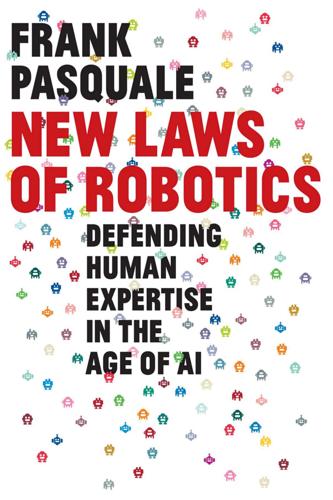
New Laws of Robotics: Defending Human Expertise in the Age of AI
by
Frank Pasquale
Published 14 May 2020
I believe this integration of democratic and expertocratic values may be the key to resolving the divide between “diggers” and “levelers” in Science and Technology Studies, trenchantly developed by Philip Mirowski in a recent draft. Philip Mirowski, “Democracy, Expertise and the Post-truth Era: An Inquiry into the Contemporary Politics of STS,” (working paper, version 1.1, April 2020), https://www.academia.edu/42682483/Democracy_Expertise_and_the_Post-Truth_Era_An_Inquiry_into_the_Contemporary_Politics_of_STS. 72. Hubert L. Dreyfus, What Computers Still Can’t Do (Cambridge, MA: MIT Press, 1992). 73. Gert P. Westert, Stef Groenewoud, John E. Wennberg, Catherine Gerard, Phil DaSilva, Femke Atsma, and David C.

Big Capital: Who Is London For?
by
Anna Minton
Published 31 May 2017
But the Berkeley Group’s own press release on the report mentions no such thing, claiming instead that the research is published by the LSE and Berkeley, with the housebuilder therefore gaining considerable academic credibility for themselves and the findings in the process.12 Across the West, the failures of the mainstream media, particularly in the UK and America, to report accurately on a wide range of issues, and the denigration of experts and evidence, have led to the coining of the phrase ‘post-truth politics’, and strategies to combat this must be at the heart of attempts to renew democracy. A blueprint for democratic renewal in public life, in government and in institutions is beyond the scope of this book, but as the housing crisis reaches a tipping point, it seems possible that political pressure from a new alliance of lower- and middle-income groups may create a more favourable climate for broader democratic renewal and certainly for a profound reworking of the housing paradigm in the UK.
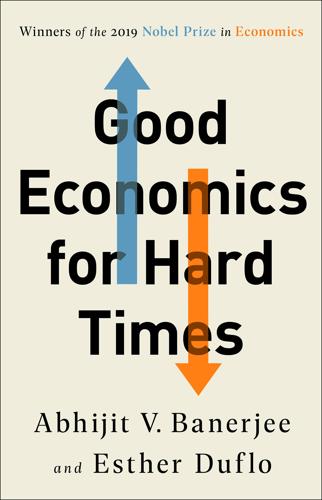
Good Economics for Hard Times: Better Answers to Our Biggest Problems
by
Abhijit V. Banerjee
and
Esther Duflo
Published 12 Nov 2019
,” International Migration Review 48, no. 2 (2014): 283–323. 2 “EU Migrant Crisis: Facts and Figures,” News: European Parliament, June 30, 2017, accessed April 21, 2019, http://www.europarl.europa.eu/news/en/headlines/society/20170629STO78630/eu-migrant-crisis-facts-and-figures. 3 Alberto Alesina, Armando Miano, and Stefanie Stantcheva, “Immigration and Redistribution,” NBER Working Paper 24733, 2018. 4 Oscar Barrera Rodriguez, Sergei M. Guriev, Emeric Henry, and Ekaterina Zhuravskaya, “Facts, Alternative Facts, and Fact-Checking in Times of Post-Truth Politics,” SSRN Electronic Journal (2017), https://dx.doi.org/10.2139/ssrn.3004631. 5 Alesina, Miano, and Stantcheva, “Immigration and Redistribution.” 6 Rodriguez, Guriev, Henry, and Zhuravskaya, “Facts, Alternative Facts, and Fact-Checking in Times of Post-Truth Politics.” 7 Warsan Shire, “Home,” accessed June 5, 2019, https://www.seekers guidance.org/articles/social-issues/home-warsan-shire/. 8 Maheshwor Shrestha, “Push and Pull: A Study of International Migration from Nepal,” Policy Research Working Paper WPS 7965 (Washington, DC: World Bank Group, 2017), http://documents.worldbank.org/curated/en/318581486560991532/Push-and-pull-a-study-of-international-migration-from-Nepal. 9 Aparajito, directed by Satyajit Ray, 1956, Merchant Ivory Productions. 10 Using data from sixty-five countries, Alwyn Young finds that urban dwellers consume 52 percent more than rural dwellers.

Spies, Lies, and Algorithms: The History and Future of American Intelligence
by
Amy B. Zegart
Published 6 Nov 2021
“Text of Goldwater’s Letter to Head of C.I.A.,” New York Times, April 11, 1984, https://www.nytimes.com/1984/04/11/world/text-of-goldwater-s-letter-to-the-head-of-cia.html. For “pissed off” expletive deleted by the New York Times, see Andrew, 478. 106. Malcolm Byrne, ed., “The Iran-Contra Affair 30 Years Later: A Milestone in Post-Truth Politics,” National Security Archive, November 25, 2016, https://nsarchive.gwu.edu/briefing-book/iran/2016-11-25/iran-contra-affair-30-years-later-milestone-post-truth-politics. 107. Lydia Saad, “Gallup Vault: Reaction to Iran-Contra 30 Years Ago,” Gallup, November 25, 2016, https://news.gallup.com/vault/198164/gallup-vault-reaction-iran-contra-years-ago.aspx (accessed December 16, 2020). 108.
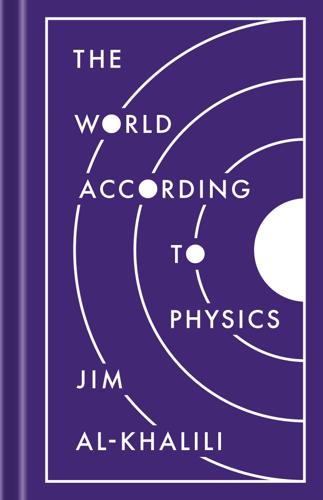
The World According to Physics
by
Jim Al-Khalili
Published 10 Mar 2020
For example, without quantum mechanics, we would not have been able to understand the behaviour of semiconductors or invent the silicon chip, on which all of modern electronics is founded, and I would not be typing these words on my laptop. I will also take a look into the future and predict how current research into quantum technologies is going to revolutionise our world in unimaginable ways. In the final chapter, I explore the notion of scientific truth, particularly in a ‘post-truth’ society in which many people remain suspicious of science. How does the process of science differ from other human activities? Is there such a thing as absolute scientific truth? And if the job of science is to seek out deep truths about nature, how should scientists convince wider society of the value of the scientific enterprise: the forming and testing of hypotheses, and rejecting them if they do not fit the data?
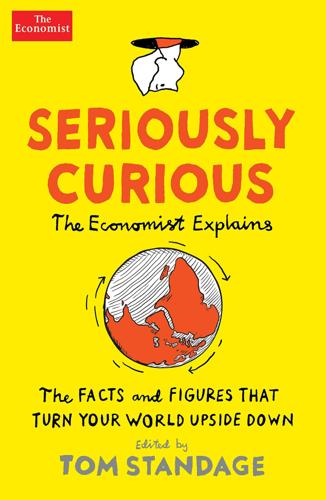
Seriously Curious: The Facts and Figures That Turn Our World Upside Down
by
Tom Standage
Published 27 Nov 2018
It is a willingness, or in fact a hunger, to discover new, previously unknown things. No wonder Thomas Hobbes called it “the lust of the mind”. Curiosity provides the spur to gather more raw material for analysis, by probing the limits of what is known. Alas, the information-driven, evidence-based way of looking at the world has lately fallen out of favour. In a “post-truth” world, knowledge is scorned, facts are optional (or can be challenged by “alternative facts”) and reality can be distorted or ignored. But the seriously curious know that in the long run, reality will always prevail. Curiosity leads people towards a more accurate understanding of the world; only the terminally incurious can maintain a distorted or inaccurate worldview for long, and only then by walling themselves off from evidence that challenges their outlook.
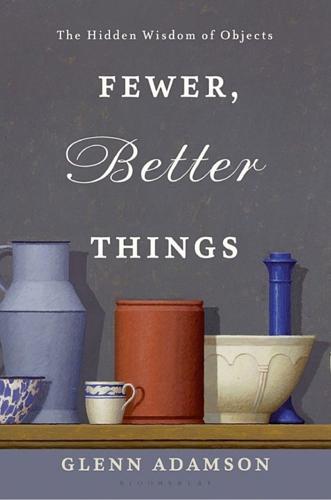
Fewer, Better Things: The Hidden Wisdom of Objects
by
Glenn Adamson
Published 6 Aug 2018
It relates to a broader set of worries about class distinction: concerns about how, and whether, our citizens are really interested in one another’s perspectives. There is a lot of strong opinion around these days, often fueled by misinformation. Like many suddenly urgent political considerations, this one has resulted in a bloom of catchphrases: Journalists speak of the need to “fact-check,” to combat the rise of “fake news,” to forestall the onset of “post-truth” times. My brother Peter, the philosopher, has contributed some helpful wisdom to this debate, going so far as to suspend his weekly podcast for the first time in order to broadcast a special episode about the current crisis of truth. He argues that the problem we are facing is not so much a spate of outright lying, which he calls a “first-order” problem, or even that people are lying knowingly, or buying into things that they should know aren’t true—which are “second-order” problems.
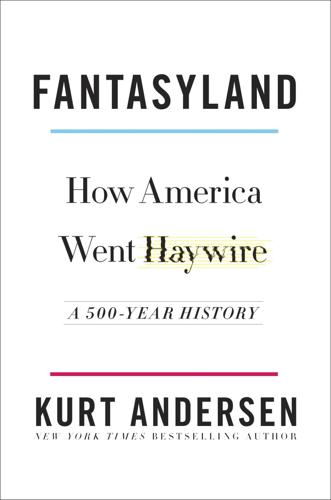
Fantasyland: How America Went Haywire: A 500-Year History
by
Kurt Andersen
Published 4 Sep 2017
We stockpile guns because we fantasize about our pioneer past, or in anticipation of imaginary shootouts with thugs and terrorists. We acquire military costumes and props in order to pretend we’re soldiers—or elves or zombies—fighting battles in which nobody dies, and enter fabulously realistic virtual worlds to do the same. And that was all before we became familiar with the terms post-factual and post-truth, before we elected a president with an astoundingly open mind about conspiracy theories, what’s true and what’s false, the nature of reality. We have passed through the looking glass and down the rabbit hole. America has mutated into Fantasyland. — HOW WIDESPREAD IS this promiscuous devotion to the untrue?
…
We’re still rich and free, still more influential and powerful than any nation, practically a synonym for developed country. But at the same time, our drift toward credulity, doing our own thing, and having an altogether uncertain grip on reality has overwhelmed our other exceptional national traits and turned us into a less-developed country as well. People tend to regard the Trump moment—this post-truth, alternative facts moment—as some inexplicable and crazy new American phenomenon. In fact, what’s happening is just the ultimate extrapolation and expression of attitudes and instincts that have made America exceptional for its entire history—and really, from its prehistory. What I’m trying to do with this book is define and pin down our condition, to portray its scale and scope, to offer some fresh explanations of how our national journey deposited us here.
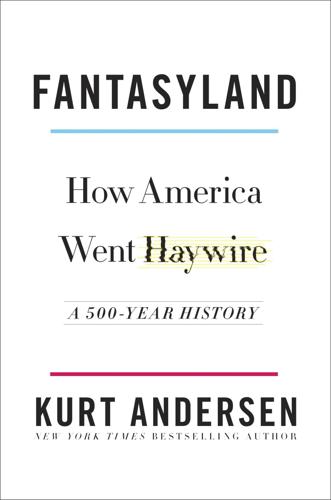
Fantasyland
by
Kurt Andersen
Published 5 Sep 2017
We stockpile guns because we fantasize about our pioneer past, or in anticipation of imaginary shootouts with thugs and terrorists. We acquire military costumes and props in order to pretend we’re soldiers—or elves or zombies—fighting battles in which nobody dies, and enter fabulously realistic virtual worlds to do the same. And that was all before we became familiar with the terms post-factual and post-truth, before we elected a president with an astoundingly open mind about conspiracy theories, what’s true and what’s false, the nature of reality. We have passed through the looking glass and down the rabbit hole. America has mutated into Fantasyland. — HOW WIDESPREAD IS this promiscuous devotion to the untrue?
…
We’re still rich and free, still more influential and powerful than any nation, practically a synonym for developed country. But at the same time, our drift toward credulity, doing our own thing, and having an altogether uncertain grip on reality has overwhelmed our other exceptional national traits and turned us into a less-developed country as well. People tend to regard the Trump moment—this post-truth, alternative facts moment—as some inexplicable and crazy new American phenomenon. In fact, what’s happening is just the ultimate extrapolation and expression of attitudes and instincts that have made America exceptional for its entire history—and really, from its prehistory. What I’m trying to do with this book is define and pin down our condition, to portray its scale and scope, to offer some fresh explanations of how our national journey deposited us here.
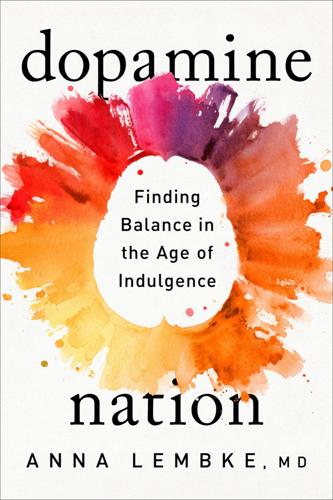
Dopamine Nation: Finding Balance in the Age of Indulgence
by
Anna Lembke
Published 24 Aug 2021
The question is, why do so many of us living in rich nations with abundant material resources nonetheless operate in our daily lives with a scarcity mindset? As we have seen, having too much material wealth can be as bad as having too little. Dopamine overload impairs our ability to delay gratification. Social media exaggeration and “post-truth” politics (let’s call it what it is, lying) amplify our sense of scarcity. The result is that even amidst plenty, we feel impoverished. Just as it is possible to have a scarcity mindset amidst plenty, it is also possible to have a plenty mindset amidst scarcity. The feeling of plenty comes from a source beyond the material world.
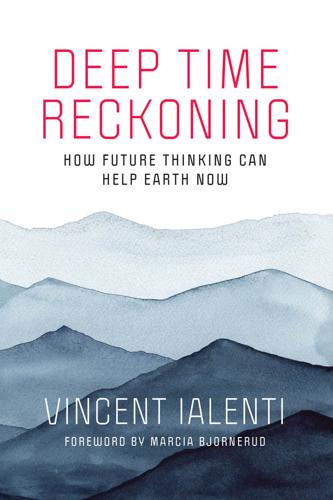
Deep Time Reckoning: How Future Thinking Can Help Earth Now
by
Vincent Ialenti
Published 22 Sep 2020
This was “precisely the moment that most of the important opportunities for economic growth, and serious threats to the wellbeing of the nation, require a better grasp of scientific issues.”52 By 2017, it was no longer edgy or radical for a postmodern philosopher or critical sociologist to critique truth, reality, or scientific rationality. “Alternative fact” and “fake news” had become mainstream buzzwords. The Oxford English Dictionary named “post-truth” its 2016 Word of the Year. In April 2017, science became something to march on Washington for. I felt nostalgic for the Safety Case experts’ day-to-day faith in facts and reason. I worried the United States was too distracted by noisy clutter to prep for ecological destruction. Deluges of clickbait web content and twenty-four-hour news cycles left netizens lost in jungles of dubious information.
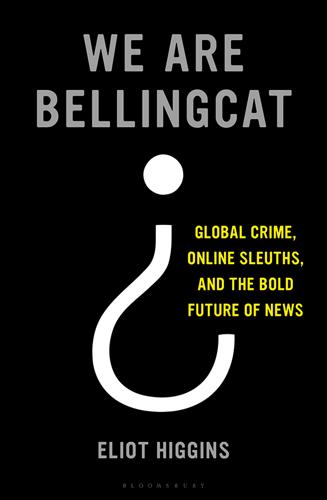
We Are Bellingcat: Global Crime, Online Sleuths, and the Bold Future of News
by
Eliot Higgins
Published 2 Mar 2021
But metadata in documents they had sent us showed these had indeed been produced by people who, identified via Facebook, worked for the Russian Foreign Ministry. What we were witnessing – both at Bellingcat and in society – went beyond Russian disinformation, though. The effort to distort facts in the digital age implicated swarms of passionate amateurs, opportunistic grifters and violent extremists, too. The resulting ‘post-truth’ chaos led commentators to despair of what the internet had become. But sane society was not about to surrender its main source of information to the deceitful. The question was whether to accept two parallel information streams, where one part of the public consumed fact-based reports and another was abandoned to dubious viral content; or to fight back.
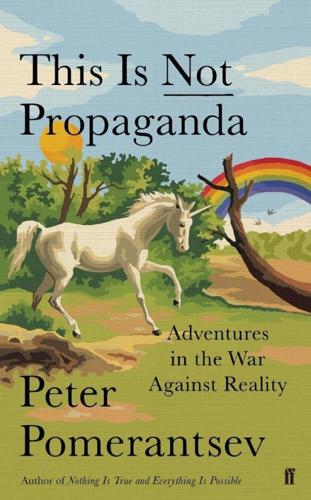
This Is Not Propaganda: Adventures in the War Against Reality
by
Peter Pomerantsev
Published 29 Jul 2019
There is a sort of adolescent joy in throwing off their weight, of giving a great big ‘fuck you’ to glum reality. The very pleasure of a Putin or a Trump is the release from constraint they offer. But though facts can be unpleasant, they are useful. You especially need them if you are constructing something in the real world. There are no post-truth moments if you are building a bridge, for example. Facts are necessary to show what you are building, how it will work, why it won’t collapse. In politics facts are necessary to show that you are pursuing some rational idea of progress: here are our aims, here is how we prove we are achieving them, this is how they improve your lives.
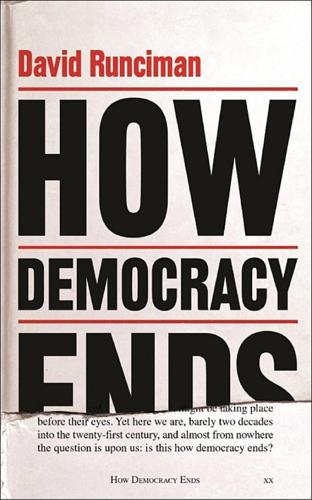
How Democracy Ends
by
David Runciman
Published 9 May 2018
Instead, active citizens are needed to save democracy from itself. Snyder draws on Arendt to make his case. He cites her warnings about a world corroded by conspiracy theories, ‘where we are seduced by the notion of hidden realities and dark conspiracies that explain everything’. This marks the beginnings of totalitarianism – ‘post-truth’, Snyder says, ‘is pre-fascism’. He highlights the dangers of simply going with the flow – the mindlessness of conformity. ‘Some killed from murderous conviction. But many others who killed were just afraid to stand out. Other forces were at work beside conformism. But without the conformists, the great atrocities would have been impossible.’37 Invoking the dark shadow of the Holocaust raises the stakes but it also heightens the risk of crying wolf.
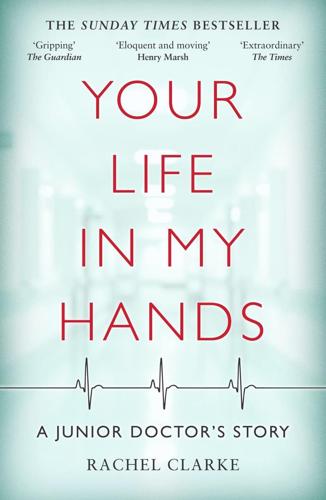
Your Life in My Hands: A Junior Doctor's Story
by
Rachel Clarke
Published 14 Sep 2017
Junior doctors screamed for a year about the dangers of overstretch and understaffing – and the misery of the 2016-17 winter crisis confirmed much of what we warned about – yet the Department of Health continues to maintain its elastic approach to evidence. You might therefore conclude, as I did temporarily, that junior doctors achieved nothing – our efforts were futile – and indeed that in today’s ‘post-truth’ era I am naïve to hope for more. After all, 2016 was the year in which a Cabinet minister claimed that the British people had ‘had enough of experts’ and, across the Atlantic, a proven serial liar went on to win the US presidential election. Facts and expertise have never looked more vulnerable.
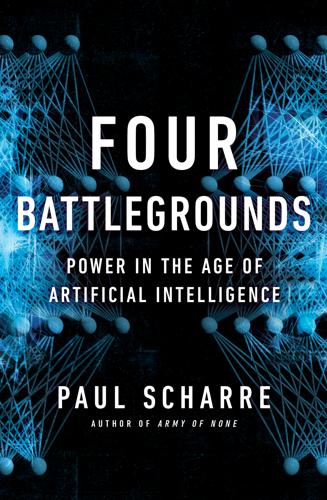
Four Battlegrounds
by
Paul Scharre
Published 18 Jan 2023
Law professors Robert Chesney and Danielle Citron have termed this effect the “liar’s dividend,” in which individuals could disavow real video or audio catching them doing something they shouldn’t have, claiming that it is a clever forgery. The problem isn’t just that an individual might avoid accountability for their behavior. The long-term effect could be to undermine public confidence in what is real, hastening a “post-truth” information landscape in which public opinion is driven by emotion and beliefs rather than facts. The consequences of politics unmoored from the truth is bigger than just bad policy. A world where “truth” is whatever the leader says it is benefits authoritarians and undermines democracies, which count on an independent media and public accountability to serve as a check on the powerful.
…
The Next One Might Not Be,” Wired, March 17, 2022, https://www.wired.com/story/zelensky-deepfake-facebook-twitter-playbook/; Digital Forensic Research Lab, “Russian War Report: Hacked news program and deepfake video spread false Zelenskyy claims,” New Atlanticist (blog) on Atlantic Council, March 16, 2022, https://www.atlanticcouncil.org/blogs/new-atlanticist/russian-war-report-hacked-news-program-and-deepfake-video-spread-false-zelenskyy-claims/#deepfake; Nathaniel Gleicher, “1/ Earlier today, our teams identified and removed a deepfake video claiming to show President Zelensky issuing a statement he never did.,” Twitter (thread), March 16, 2022, https://twitter.com/ngleicher/status/1504186935291506693. 130the “liar’s dividend”: Bobby Chesney and Danielle Citron, “Deep Fakes: A Looming Challenge for Privacy, Democracy, and National Security,” California Law Review 107, no. 1753 (2019), https://doi.org/10.15779/Z38RV0D15J. 130“post-truth” information landscape: “Word of the Year 2016,” OxfordLanguages, 2016, https://languages.oup.com/word-of-the-year/2016/. 130“the internet is a vast wormhole of darkness”: Drew Harwell, “Fake-Porn Videos Are Being Weaponized to Harass and Humiliate Women: ‘Everybody Is a Potential Target,’” Washington Post, December 30, 2018, https://www.washingtonpost.com/technology/2018/12/30/fake-porn-videos-are-being-weaponized-harass-humiliate-women-everybody-is-potential-target/. 130Sensity (formerly Deeptrace): Giorgio Patrini, LinkedIn profile, https://nl.linkedin.com/in/giorgiopatrini. 130“visual threat intelligence company”: Sensity (website), 2021, https://sensity.ai/about/. 130Steve Buscemi’s face swapped onto Jennifer Lawrence’s body: The Curious Ape, “Jennifer Lawrence as STEVE BUSCEMI at The Golden Globes DEEPFAKE,” YouTube, February 6, 2019, https://www.youtube.com/watch?
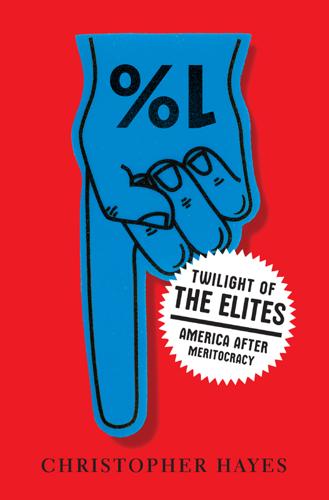
Twilight of the Elites: America After Meritocracy
by
Chris Hayes
Published 11 Jun 2012
Sleazy interviews with King’s various mistresses would appear on segregationist blogs, while right-wing activists would gleefully videotape and disseminate embarrassing interviews with bewildered protesters. This isn’t an idle thought experiment. The challenge of climate change forces us to stare into the dark void left by the collapse of traditional institutional authority. One democratic political operative I know calls this feature of modern public life “post-truth politics.” Without some central institutions that have the inclination, resources, and reputational capital to patrol the boundaries of truth, we really do risk a kind of Hobbesian chaos, in which truth is overtaken by sheer will-to-power. You don’t have to be a defender of the status quo to fear this outcome.
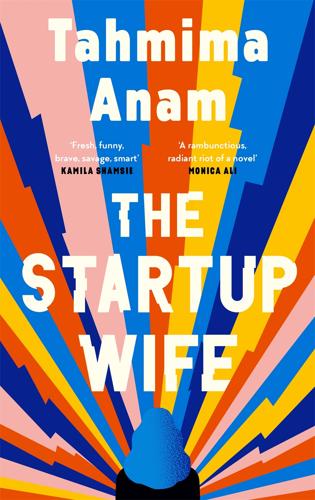
The Startup Wife
by
Tahmima Anam
Published 2 Jun 2021
Whereas Jules is everyone’s best friend, Cyrus inspires more of a hushed reverence from the team, starting with Rupert and Gaby right down to the intern who is going to run our socials, a woman called Gina whose college thesis was titled A New Media of the Social: Networks of Power in the Era of Post-truth. We did not meet Rupert at the speed-dating event. Instead, Cyrus joined something called Venture Shorts, where people post two-minute Instagram stories of themselves and their ideas, then get anonymous invitations from VCs to come and pitch. Cyrus’s video was one long iPhone shot of him looking deep into the camera and telling the story of how he came to believe that ritual was the central act of human life, and how, thus far, all of our technological innovations had ignored this fact.
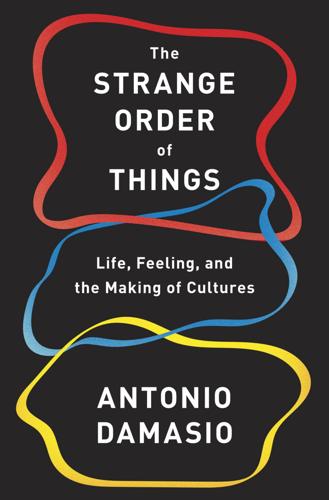
The Strange Order of Things: The Biological Roots of Culture
by
Antonio Damasio
Published 6 Feb 2018
The resistance to change is associated, for example, with the engagement of systems responsible for producing anger.3 We construct some sort of natural refuge to defend ourselves against contradictory information. Disaffected electorates across the world fail to show up at voting booths. In such a climate, the spreading of false news and post-truths is made easier. The dystopian world that George Orwell once described with the Soviet Union in mind has returned to fit a different sociopolitical situation. Speed of communication and the resulting acceleration of the pace of life are also possible contributors to a decline in civility, detectable in the impatience of public discourse and in the increased rudeness of urban life.4 A separate but important issue that continues to be unappreciated is the addictive nature of electronic media, from simple e-mail communications to social networks.
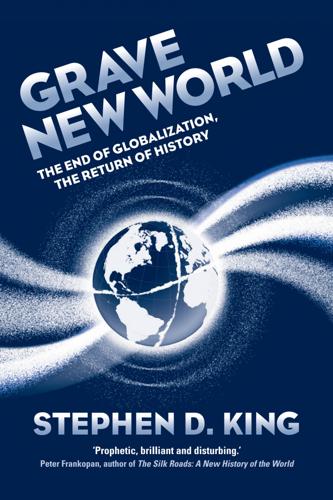
Grave New World: The End of Globalization, the Return of History
by
Stephen D. King
Published 22 May 2017
Even if separate regions could get their acts together, differences in both politics and history suggest that the world as a whole might end up in a state of permanent rivalry, a real-life version of George Orwell’s Oceania, Eurasia and Eastasia. Indeed, it may well be that Orwell’s Nineteen Eighty-Four proves to be prescient not just in terms of ‘Big Brother’ and ‘doublethink’, both of which neatly anticipated the impact of technology on our lives and, in particular, the role of social media in promoting a ‘post-truth’ society. Orwell may also have offered an accurate vision of geopolitical arrangements in the twenty-first century. The three empires in Orwell’s world constantly change allegiances, so that at any point in time two are at war against the third. As the US loses its appetite for supporting the global institutions that have established the ‘rules of the game’, it is not impossible to imagine that the twenty-first century will increasingly be characterized by Nineteen Eighty-Four-style superpower rivalry, with Oceania dominated by the US, Eurasia by Russia and Eastasia by China.

Duty of Care: One NHS Doctor's Story of the Covid-19 Crisis
by
Dr Dominic Pimenta
Published 2 Sep 2020
Professor Whitty has stated that, unchecked, the virus could infect up to 80 per cent of the population, putting huge strains on beds, staff and resources. The only defence against the virus at this moment is the strict public health measures of hand washing, avoiding unnecessary travel and working together. This is the ultimate challenge to the post-truth selfishness. A pandemic requires trust, transparency and common decency, so we all should be informed, be kind and stay safe. I never know what will and will not make an impact on Twitter. Often I’ll feel there’s a vital gap of something unsaid that I will spend hours researching and crafting a piece to fill, only to find that just a handful of people are interested.
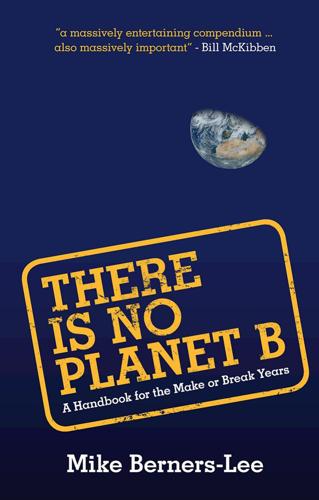
There Is No Planet B: A Handbook for the Make or Break Years
by
Mike Berners-Lee
Published 27 Feb 2019
Make personal contact with the people you feel most detached from and feel least empathy for. We have already explored the first value in my list to some extent through the discussions of wealth and income distributions and even prison statistics. The second value has, I hope, pervaded most of the book so far. Now, following an eruption of post-truth and fake news all over the world over the past few years, we turn to the third value; the critical questions of truth and trust. If we are going to live well, humans need to raise their game in this area. The rising complexity of the issues and the rising flood of both information and misinformation, sometimes accidental and sometimes intentional, means that we need to get much better at cutting out the lies, disinformation and ‘fake news’.
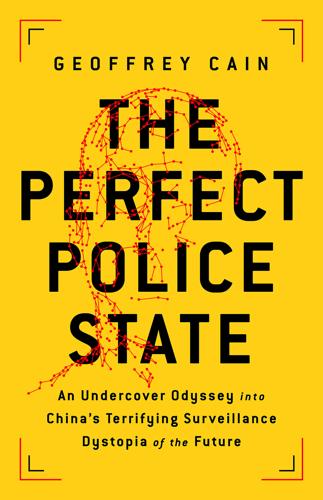
The Perfect Police State: An Undercover Odyssey Into China's Terrifying Surveillance Dystopia of the Future
by
Geoffrey Cain
Published 28 Jun 2021
Use optimistic “newspeak” that makes your tools impenetrable to the common person. “It’s not just about making your people scared,” Mansur said. “Making your people uncertain is a good way to keep them under control.” Step three is a tricky one for any government, he said. He went on to explain the idea of exploiting the post-truth paranoia you created with tech tools. With cameras, artificial intelligence, and facial and voice scanners, “you can turn your country into a panopticon.” “What’s a panopticon?” I asked. A panopticon is a prison set up in a circular format, in which a guard can see everything from a sentry post in the middle, but none of the prisoners can see the guard, Mansur replied.
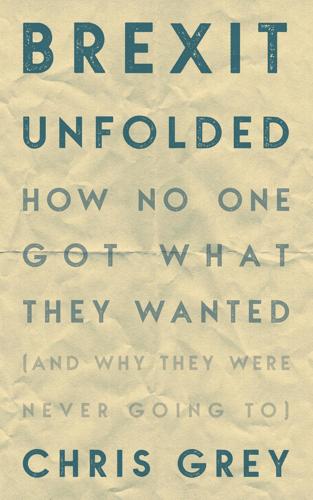
Brexit Unfolded: How No One Got What They Want (And Why They Were Never Going To)
by
Chris Grey
Published 22 Jun 2021
It is that whilst beliefs, opinions and emotions are a legitimate and inevitable part of any politics, they can ever be enough to make workable policy. Evidence, honesty and rationality are vital to that. Brexit is obviously something which bitterly divides people to the point that, as I said in the introduction to this book, it has been as if there was ‘remainer truth’ and ‘leaver truth’, and sometimes there has even been the ‘post-truth’ suggestion that the truth doesn’t matter. But it is important to draw distinctions between different kinds of issues at stake in Brexit. Some of those are perhaps endlessly contestable. The debate about sovereignty is at least arguably an example because its conceptual meaning is fuzzy and the kinds of evidence that can be adduced in debating it are highly diverse and, themselves, contestable.
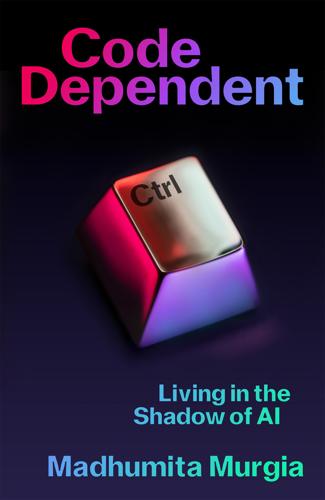
Code Dependent: Living in the Shadow of AI
by
Madhumita Murgia
Published 20 Mar 2024
Forster’s idea of this machine that creates a blurred version of reality, which eventually replaces the one people inhabit, felt germane today. When I looked around me, at stories I myself was writing about generative AI producing false or biased content, I began to see this idea everywhere. Forster had described what, more than a century later, we are calling a ‘post-truth’ world. But the thing that really stuck with me was the story’s denouement, the ultimate fate of the Machine. Somehow, it begins to degrade and erode, distorting reality as it breaks, poisoning the melodies of famous symphonies, and generating rotting smells, images and even ‘defective’ poetry, while humans are forced to adapt to its toxicity.
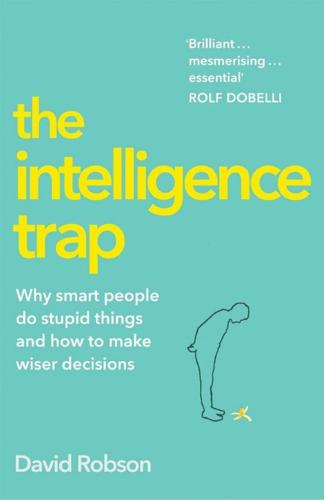
The Intelligence Trap: Revolutionise Your Thinking and Make Wiser Decisions
by
David Robson
Published 7 Mar 2019
Could his great intellect have also made him incredibly stupid? This book is about why intelligent people act stupidly – and why in some cases they are even more prone to error than the average person. It is also about the strategies that we can all employ to avoid the same mistakes: lessons that will help anyone to think more wisely and rationally in this post-truth world. You don’t need to be a Nobel Prize winner for this to apply to you. Although we will discover the stories of people like Mullis, and Paul Frampton, a brilliant physicist who was fooled into carrying two kilograms of cocaine across the Argentinian border, and Arthur Conan Doyle, the famed author who fell for two teenagers’ scams, we will also see how the same flaws in thinking can lead anyone of more than average intelligence astray.
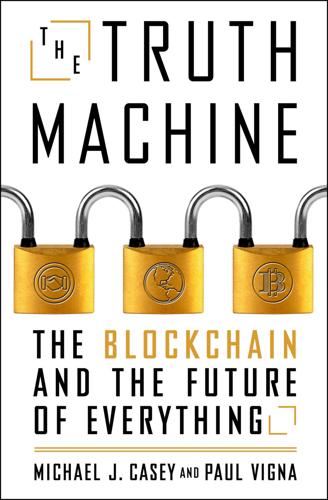
The Truth Machine: The Blockchain and the Future of Everything
by
Paul Vigna
and
Michael J. Casey
Published 27 Feb 2018
Still, with the right incentive system embedded into a token’s governing algorithm, perhaps we could turn this model into something more valuable, a source of market-based discipline to promote accountability. In an age when U.S. presidents peddle “alternative facts” and pundits talk openly about our “post-truth society,” using the truth machine to put a value on honesty sounds appealing. Already, the blockchain startup Augur is exploring these ideas. The firm has built a decentralized, cryptocurrency-based prediction market on top of Ethereum, where players place bets on an outcome of some event or other, the result of which depends on confirmation by certain individuals.
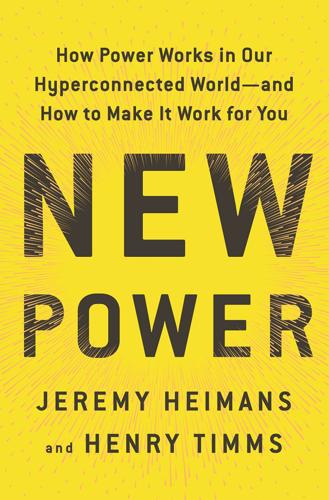
New Power: How Power Works in Our Hyperconnected World--And How to Make It Work for You
by
Jeremy Heimans
and
Henry Timms
Published 2 Apr 2018
We’ll introduce some lesser-known examples, too: nurses banding together to cut down on bureaucracy and improve patients’ lives (and their own job satisfaction); a car company that turns to its customers to design its vehicles; a successful media company built, funded, and shaped by its readers. Whether you are a historian yearning to share your knowledge in a post-truth world, a determined parent running for your local school board, or a creator wanting to get a new product off the ground, there are a range of distinctive new capabilities that people and businesses need to discover. The skills in question are often misunderstood as the ability to self-promote on Facebook or as Snapchat for Dummies.
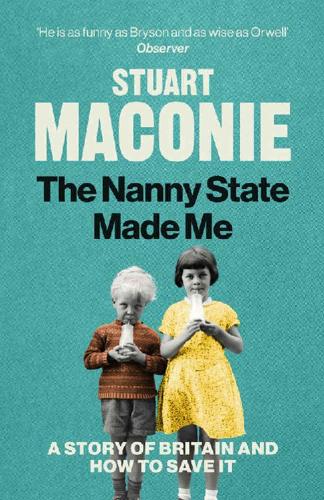
The Nanny State Made Me: A Story of Britain and How to Save It
by
Stuart Maconie
Published 5 Mar 2020
But these are strange times, and we have become strange ourselves. Confronted with the icy cold shower of truth, there are many these days who prefer the warm and comforting bath of propaganda and a shallow comforting wash of opinion and half-truth that backs up their own world view. We now live firmly in the era of post-truth, a world beyond facts, where there is no objective reality, just competing biases and entrenched positions. Truth is the first casualty of war, they say. It’s certainly been led from the modern media battlefield bloodied, tattered and in need of some Florence Nightingale of the digital age. Here’s a snapshot from the week that I write, but almost any week would suffice.
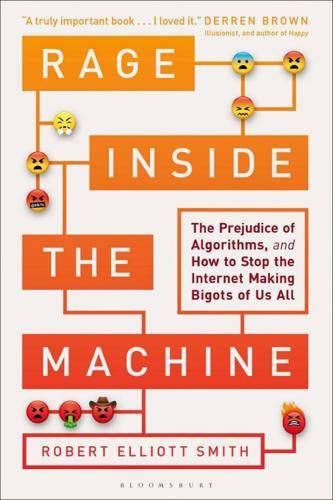
Rage Inside the Machine: The Prejudice of Algorithms, and How to Stop the Internet Making Bigots of Us All
by
Robert Elliott Smith
Published 26 Jun 2019
In light of all this, our task that summer term, he explained, was to examine the meanings of the word ‘nature’ in early American literature, exploring the tension between nature as the wellspring of human beauty and virtue (e.g. the ideas that descend from Emerson and Thoreau) and the idea of nature as the source of human sin and savagery (e.g. the ideas that descend from Mather to Hawthorne). This tension, he concluded, exemplified the entire American literary tradition. Dr Tensom was right: it is important to define your terms. In this post-truth era, it is becoming ever more apparent that words matter and have consequences for how we interact with the world, and even how we perceive it. Words and phrases are embedded in the human cultural narrative in myriad complex ways. What words we use for which things shapes our perception of those things, and perceptions change meaning, and meaning determines actions which, in turn, may change perception.
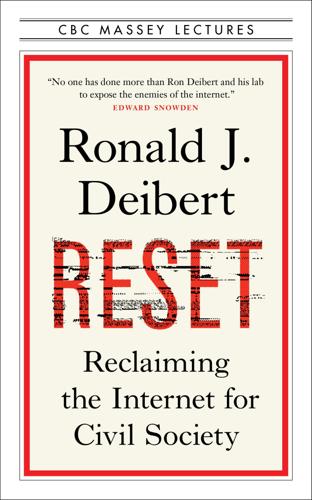
Reset
by
Ronald J. Deibert
Published 14 Aug 2020
Retrieved from https://thebulletin.org/doomsday-clock/current-time/ H.G. Wells described an imaginary “World Encyclopedia”: Wells, H. G. (1938). World Brain. Methuen. An imagined state of affairs where truth and democracy reigned supreme; this never actually existed: Farkas, J., & Schou, J. (2019). Post-truth, fake news and democracy: Mapping the politics of falsehood. Routledge. Chapter Three: A Great Leap Forward … For the Abuse of Power The UN’s special investigation into his execution: Callamard, A. (2019, June 19). Khashoggi killing: UN human rights expert says Saudi Arabia is responsible for “premeditated execution.”
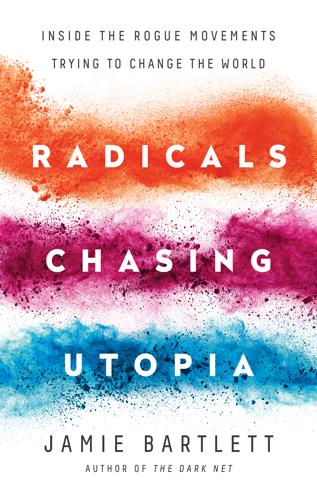
Radicals Chasing Utopia: Inside the Rogue Movements Trying to Change the World
by
Jamie Bartlett
Published 12 Jun 2017
Thus, this system inherits the regional peculiarity of Meetup. For the moment, there are sections on: ‘vote’ (when a vote is ongoing), ‘laws’ (EU, Parliament, Regions), and ‘Shield’ and ‘Fundraising’ are active. It’s too early to know if and how this might change the dynamics of the movement. 42. Jonathan Freedland, ‘Post-truth politicians such as Donald Trump and Boris Johnson are no laughing matter’, Guardian, 13 May 2016. 43. Art Swift, ‘Americans’ trust in mass media sinks to new low’, Gallup, 14 September 2016, http://www.gallup.com/poll/195542/americans-trust-mass-media-sinks-new-low.aspx. 44. According to Corriere della Sera, Pittarello is seen as ‘the custodian of Casaleggio’s agenda’, and one of the very few people who has the blog’s password.
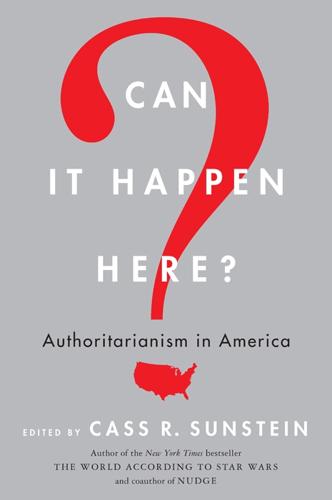
Can It Happen Here?: Authoritarianism in America
by
Cass R. Sunstein
Published 6 Mar 2018
But the extraordinary proliferation of media platforms today has produced a distorted caricature of media pluralism, fragmenting political space into mutually sealed-off ideological fortresses between which no serious communication is possible.21 In the 2016 presidential contest, moreover, the major American news outlets, profiting from public fascination with Trump’s buffoonery, functioned less as a check on power than as a conveyer and magnifier of slander, disinformation, conspiracy theories, and politically calculated lies, again weakening public confidence in an essential pillar of democracy. As a final expression of post-truth populism, the current inhabitant of the White House has apparently decided that transferring power to “the people” means waging war on the First Amendment, which, as he sees it, is unfairly protecting the people’s greatest enemy, the independent press.22 Seventh, reliable polls report that a large majority of European voters distrust their elected parliaments and governments.23 One reason is that, after the electorate votes, markets vote or banks vote or Brussels votes.
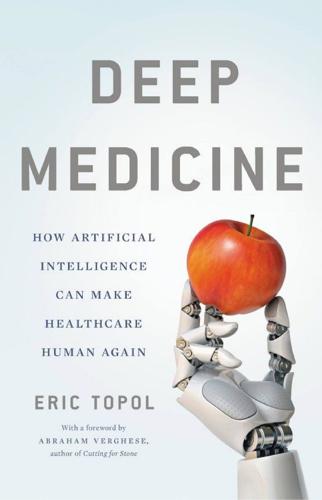
Deep Medicine: How Artificial Intelligence Can Make Healthcare Human Again
by
Eric Topol
Published 1 Jan 2019
Medscape One-on-One, 2018. https://www.medscape.com/viewarticle/898405. 2. Estruch et al., “Primary Prevention of Cardiovascular Disease.” 3. Ioannidis, J. P. A., and J. F. Trepanowski, “Disclosures in Nutrition Research: Why It Is Different.” JAMA, 2018. 319(6): pp. 547–548. 4. Penders, B., “Why Public Dismissal of Nutrition Science Makes Sense: Post-Truth, Public Accountability and Dietary Credibility.” British Food Journal, 2018. https://doi.org/10.1108/BFJ-10-2017-0558. 5. Dehghan, M., et al., “Associations of Fats and Carbohydrate Intake with Cardiovascular Disease and Mortality in 18 Countries from Five Continents (PURE): A Prospective Cohort Study.”
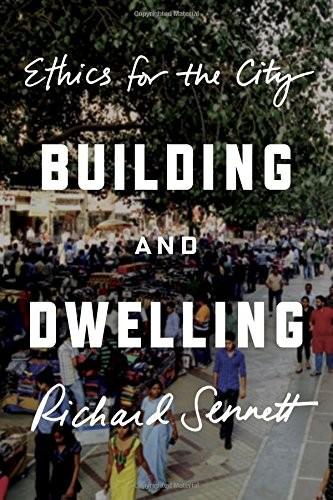
Building and Dwelling: Ethics for the City
by
Richard Sennett
Published 9 Apr 2018
To draw out this contrast, we need first to reach back into the Ice Age of technology, the 1830s. I. A NEW KIND OF INDIVIDUAL – TOCQUEVILLE ON DETACHMENT It might seem odd to take Alexis de Tocqueville, the nineteenth-century writer and statesman, as a guide to the perils of the smart city, though he was prophetic about such issues today as ‘post-truth’ mass media and populism. His powers to foresee the modern polity derived from a journey he made as a young man to America in 1831. The French Revolution of the 1790s had nearly guillotined his parents, who were minor provincial aristocrats. A brief revolutionary uprising in 1830 in France led him to fear the killer crowds would appear again.
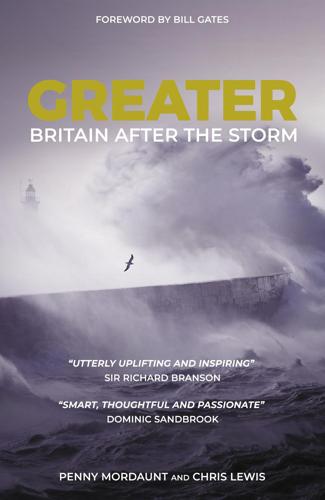
Greater: Britain After the Storm
by
Penny Mordaunt
and
Chris Lewis
Published 19 May 2021
When you’re rebuilding trust, that will happen at first. Keep track of what Britain is really good at and celebrate it There is a set of crown jewels of British characteristics. We must be aware of them and their importance not just for Britain but globally. Perhaps the most sought-after commodity in a post-industrial, post-truth world is trust. It is the foundation of all collective activity. Enhance this and everything is enhanced. Diminish it and everything is diminished. We don’t need bellicosity about our strengths. We just need to be clear about the facts. Some of these sectors could do much to revitalise other failing areas.
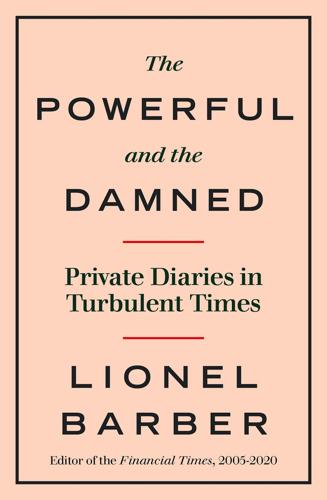
The Powerful and the Damned: Private Diaries in Turbulent Times
by
Lionel Barber
Published 5 Nov 2020
Nevertheless, I would maintain, many of the FT’s big calls were right, on markets, the euro and a series of high-risk, high-reward investigations which culminated in the exposure of Wirecard, Germany’s equivalent of the Enron scandal. Wirecard’s collapse, six months after I stepped down as editor, vindicated three years and more of original reporting which exposed abuse of power and deep-rooted fraud in a Dax 30 company. Perhaps even more significantly, it established the importance of facts in a supposedly post-truth age. During my editorship, I did not keep a daily diary, but I did keep extensive notes of interviews, conversations and encounters. This book is based on those notes and published material, often complemented by passages in italics which provide personal commentary and context, often with the benefit of hindsight.
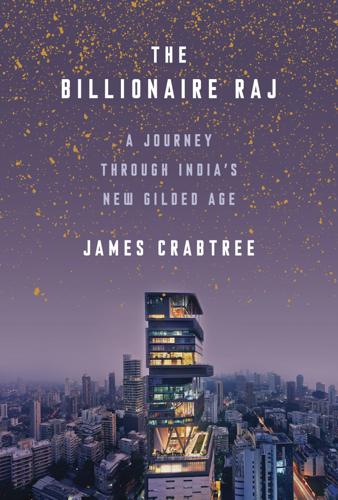
The Billionaire Raj: A Journey Through India's New Gilded Age
by
James Crabtree
Published 2 Jul 2018
In 2012, liberal academic Madhu Kishwar laid out this broader critique in an open letter, comparing Goswami’s show to a kangaroo court in which its host ignored “the necessary dividing line between journalist and crusader.”6 In Goswami’s style, critics saw an Indian variant of what became known later as “post-truth” politics, in which the nightly clash of guests deepened social divisions but added little to public understanding. I arranged a meeting with Goswami over lunch in late 2014, settling down the night before to watch a full edition of The Newshour in preparation. The topic was a court case in the ongoing IPL cricket scandal, a story that Goswami had pursued doggedly over the preceding two years.
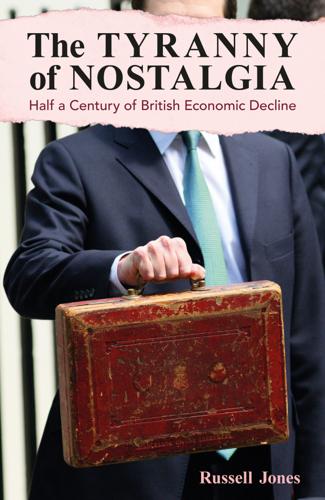
The Tyranny of Nostalgia: Half a Century of British Economic Decline
by
Russell Jones
Published 15 Jan 2023
With these various arrows in our quiver, we were employed as trusted advisors to key players in the investment community, and to various international corporations and industry bodies, while also acting as expert witnesses in a series of pathbreaking UK legal cases. In this guise we were witness to a further series of remarkable and traumatic events that stand to have enduring consequences. This was the era of Trump, populism and post-truth politics; the age of Brexit; and the period in which the fabric of UK society was stretched almost to breaking point. It also coincided with a global pandemic that, in the UK, brought along the deepest economic downturn in more than 300 years in its wake. It was an epoch in which central bank balance sheets and public sector deficits and debt swelled to unprecedented peacetime levels, and yet interest rates had never been lower – in some important instances plumbing depths lower even than those I had witnessed in Japan.
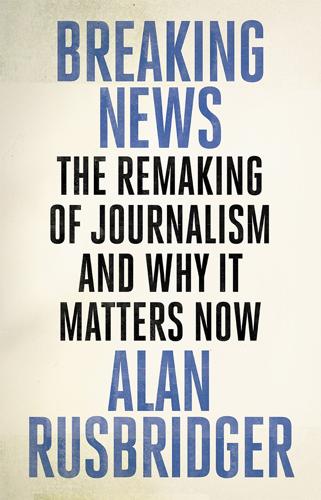
Breaking News: The Remaking of Journalism and Why It Matters Now
by
Alan Rusbridger
Published 14 Oct 2018
There were many reasons not to publish this document – and, indeed, it transpired that several news organisations were in possession of it and had not, to date, let their readers in on the fact of its existence, far less its contents. We fall back on the classical nostrums of our craft. Journalism is about separating truths from untruths – and aspiring to publish only truths. Why would we publish material if we had an imperfect idea if it was true or not? In a ‘post-truth’ world of fake news, isn’t it all the more vital that journalism sticks to what it does? If we publish only the truth, that will distinguish our brand from the rest of the seething digital ocean with its turbulent, roaring tides of stuff – true stuff, untrue stuff, malicious stuff, vapid stuff, explosive stuff.

WTF?: What's the Future and Why It's Up to Us
by
Tim O'Reilly
Published 9 Oct 2017
It is shocking just how different the news shown to “extremely liberal” and “extremely conservative” viewers turns out to be. I’d experienced a version of that myself in the stories that were shared with me by my conservative family members, and the progressive stories that I’d shared with them in return. We are living in different worlds. Or perhaps we are just living in a new “post-truth” world, where appeals to emotion carry more weight than facts. The democratization not just of media distribution but also of its creation played a major role. Colin Megill, founder of pol.is, a service focused on creating better public dialogue, told me that his mother, a doctor who worked her whole life to break the glass ceiling, was beset by doubt about Hillary Clinton and had been especially influenced by a video claiming that her aide Huma Abedin had been a member of the Muslim Brotherhood, a video that had autoplayed after she watched YouTube replays of late-night television.
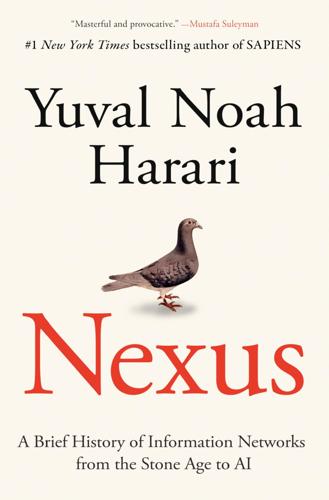
Nexus: A Brief History of Information Networks From the Stone Age to AI
by
Yuval Noah Harari
Published 9 Sep 2024
Norton, 2020); Habiburahman, First, They Erased Our Name: A Rohingya Speaks, with Sophie Ansel (London: Scribe, 2019); Amnesty International, The Social Atrocity: Meta and the Right to Remedy for the Rohingya (London: Amnesty International, 2022), www.amnesty.org/en/documents/asa16/5933/2022/en/; Christina Fink, “Dangerous Speech, Anti-Muslim Violence, and Facebook in Myanmar↰,” Journal of International Affairs 71, no. 1.5 (2018): 43–52; Naved Bakali, “Islamophobia in Myanmar: The Rohingya Genocide and the ‘War on Terror,’ ” Race and Class 62, no. 4 (2021): 1–19; Ali Siddiquee, “The Portrayal of the Rohingya Genocide and Refugee Crisis in the Age of Post-truth Politics,” Asian Journal of Comparative Politics 5, no. 2 (2019): 89–103; Neriah Yue, “The ‘Weaponization’ of Facebook in Myanmar: A Case for Corporate Criminal Liability,” Hastings Law Journal 71, no. 3 (2020): 813–44; Jennifer Whitten-Woodring et al., “Poison if You Don’t Know How to Use It: Facebook, Democracy, and Human Rights in Myanmar,” International Journal of Press/Politics 25, no. 3 (2020): 1–19. 8.
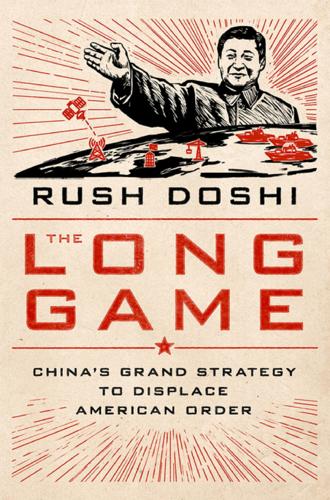
The Long Game: China's Grand Strategy to Displace American Order
by
Rush Doshi
Published 24 Jun 2021
As Jin Canrong argued, “in the field of ideas, the trend of extremist ideas has continued to expand,” with “populism and racism becoming more open and influential.”36 Zhu Feng similarly argued that “white nationalism in the United States and Europe is becoming increasingly active.”37 Technology amplified all these trends. An authoritative commentary on Xi’s 2017 National Security Work Forum cited Western reports to argue that “the most basic pillars of the Western world order are weakening. In the ‘post-truth’ era, ‘liberal democracies’ are vulnerable to misinformation.”38 The “information explosion” was causing “social tearing,” noted one Chinese Academy of Social Science (CASS) scholar, all amplified by algorithms, targeted advertising, and disinformation that “accelerate the spread of global populism/nationalism” and cause “serious polarization.”39 Jin Canrong argued that the culmination of these trends was illiberalism and dysfunction: “the polarization of the rich and the poor leads to widespread dissatisfaction in the lower and middle classes.
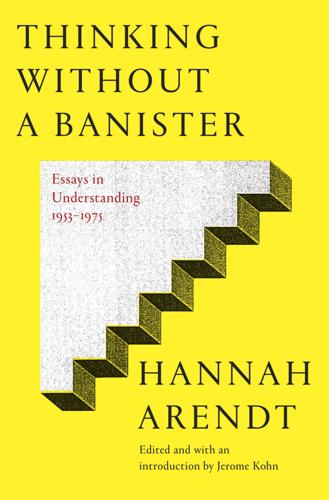
Thinking Without a Banister: Essays in Understanding, 1953-1975
by
Hannah Arendt
Published 6 Mar 2018
One matter she almost certainly would be inclined to address today concerns the seemingly relentless political lies at the highest levels of the executive branch—but not only there—of the U.S. government. This lying does not threaten the truth, as the grammatically inept and self-contradictory description of our times as “post-truth” implies, but rather undercuts our ability to believe in the reality of political goings-on as such. If the consequence of the loss of a sense of reality also spells the loss of political power, on the one hand, there is the more crucial matter of how citizens’ exercise of freedom generates power, on the other.
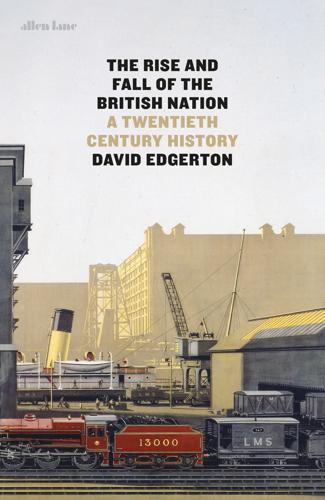
The Rise and Fall of the British Nation: A Twentieth-Century History
by
David Edgerton
Published 27 Jun 2018
The central references are contained in the following extract: I believe that, more sure of our values, we can become a Britain that is an increasingly successful leader of the global economy; a global Britain for whom membership of Europe is central; and then go on to help a reformed, more flexible, more outward-looking Europe play a bigger part in global society, not least improving relationships between Europe and the USA.49 Again, the implication was of British difference and superiority (‘helping’ Europe!); it was ‘global Britain’ with a special link to the USA. This was a moment of post-truth politics, as it would later be called. Blair and Brown in complex ways opened the way to UKIP and to non-fringe Euroscepticism, not least by encouraging fantasies of transformative revival and distinctiveness. New Labour’s futurism, and Brown’s ideas about Britishness, wiped out the Labour past, not least its national past.
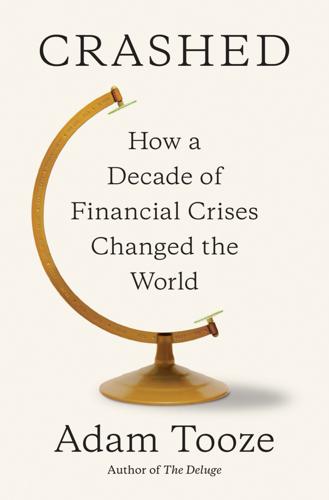
Crashed: How a Decade of Financial Crises Changed the World
by
Adam Tooze
Published 31 Jul 2018
Eichengreen, Hall of Mirrors: The Great Depression, the Great Recession, and the Uses and Misuses of History (Oxford: Oxford University Press, 2015). 50. T. Frank, Listen, Liberal: Or, Whatever Happened to the Party of the People? (New York: Macmillan, 2016). 51. Among many, two particularly thoughtful pieces are W. Davies, “The Age of Post-Truth Politics,” New York Times, August 24, 2016; and A. M. Rondón, “Donald Trump’s Fictional America,” Politico, April 2, 2017, https://www.politico.com/magazine/story/2017/04/donald-trumps-fictional-america-post-fact-venezuela-214973. 52. C. Forelle, “Luxembourg Lies on Secret Meeting,” Wall Street Journal, May 9, 2011.

Arabs: A 3,000 Year History of Peoples, Tribes and Empires
by
Tim Mackintosh-Smith
Published 2 Mar 2019
For it may also be true to say that much of the Arabic world has vaulted over print and landed straight in the world of information technology – or perhaps of misinformation technology, since, again, multiple versions of the ‘truth’ are simultaneously available, versions that rely once more on rhetoric and human or divine authority as much as on empirical fact. Many Arabs may thus have leapt straight from ‘pre-truth’ to ‘post-truth’ without going through the intervening stage. THE WICKEDEST OF RACES If those 300-odd years from the coming of the Ottomans seemed to retard scientific progress in the arabophone world, they seemed no better for Arab identity. Before the beginning of the Ottoman trough, Ibn Battutah (genetic Berber, cultural Arab) had referred to ‘Arabs’ in his rambling travel book (nearly a thousand pages in the full English translation) only about a score of times, despite the span of thirty-three years and around 120,000 kilometres of wandering, including all the Arabic-speaking lands.